The Church hates Science, right?
Every school child knows it must be true. And millions think the Galileo affair proves it. But, says Perth priest FR SEAN FERNANDEZ, it wasn’t like that at all. - VISTA 4


Every school child knows it must be true. And millions think the Galileo affair proves it. But, says Perth priest FR SEAN FERNANDEZ, it wasn’t like that at all. - VISTA 4






the Parish. the Nation. the World.
Grief counsellors say Church health bodies are effectively living in a state of denial
BY ROBERT HIINI Parish ReporterCATHOLIC health bodies are not taking abortion trauma seriously and their inaction is contributing to the denial of the after effects of abortion in society and the wider medical profession, says Abortion Grief Australia (AGA) in a new discussion paper.
Abortion Trauma: A serious Mental Health Issue (The Catholic Church’s Response - A Need to Reflect), was sent to every diocese in Australia last November but has only been made public recently.
In the document, the AGA calls for abortion trauma to be treated as a medical issue independent of the Catholic Church’s teaching on the ethics of abortion, stating that Catholic health institutions are well placed to provide leadership in the area.
Abortion, the paper claims, is regarded as “an essential tool to combat social ills,” and because abortion trauma is not being identified, the AGA says, its manifestations are being used to promote the need for abortion.
“By ignoring growing international research linking abortion to substance abuse, suicide, depression, relationship problems, psychiatric illness, domestic violence, and premature death,” the paper states, “health authorities have allowed current attitudes towards abortion to remain unchallenged. This has made it extraordinarily difficult for professionals to treat abortion trauma seriously.”
Many health professionals who identify abortion trauma experience “a lack of peer support and professional isolation,” AGA says, with one doctor cited as describing it as “professional suicide” to speak of abortion trauma.
The AGA paper calls on Catholic health, welfare and educational institutions to:
● Educate their professionals in the identification, healing and prevention of abortion trauma.
● Facilitate the establishment of multi-disciplinary professional peer support structures.
● Establish early intervention pro Please turn to page 3
“Be indefatigable in your purpose and with undaunted spirit resist iniquity and try to conquer evil with good, having before your eyes the reward of those who combat for Christ.”
-BishopMatthew Gibney 1874
A group of youth not afraid to go against the tide when it comes to religious belief will offer their peers in Catholic schools something different over the next 12 months.
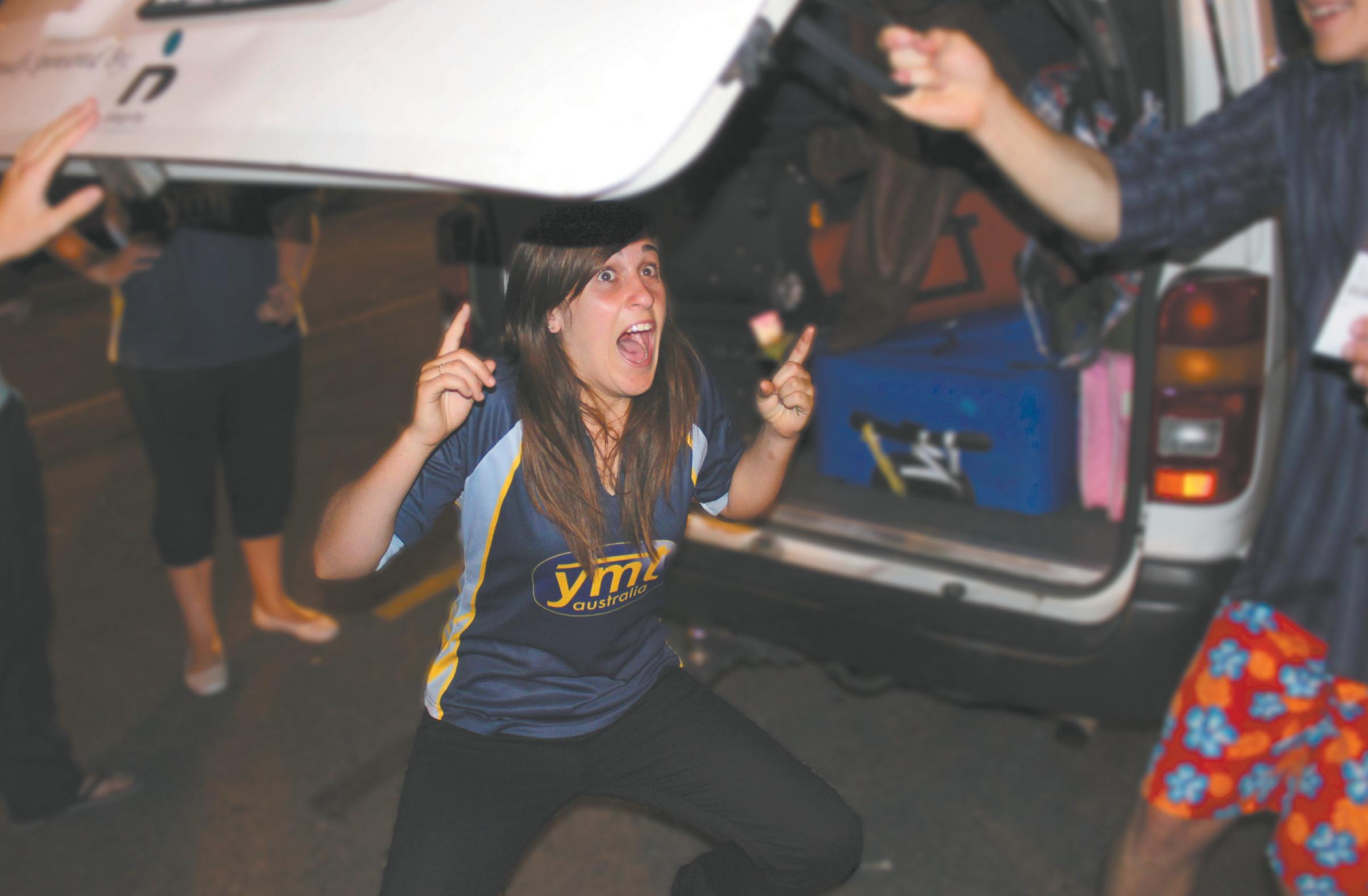 BY ANTHONY BARICH National Reporter
BY ANTHONY BARICH National Reporter
Five Youth Mission Team members from the Disciples of Jesus Covenant Community arrived in Perth last week to minister to over 40 Catholic schools in the 25th year of the Team’s national tours.
Perth’s Monica Cruise, 18, joins Jessica Simon, 18 and James Asimus, 17 (from Sydney), James Hay, 19 (Canberra) and Tom Miller, 18 (Melbourne) for a year of missionary work living relationshipfree lives of simplicity and obedience.
Similar teams will tour Catholic and public schools in Wollongong, Sydney and Melbourne.
As they tour Catholic schools from

Outrage
Perth to Bunbury to Kalgoorlie, the Perth-based team will be led by senior Disciples of Jesus member Martin Firth.
The teams will run reflection days for entire year groups of between 70-110 students in the high schools, plus four weekend retreats and will assist with 24-7, the Disciples of Jesus’ youth ministry for teens, every Friday night at their Osborne Park base.
The reflection days involve a series of talks, games, activities and dramas where the team members hear the students’ beliefs before informing them of their own beliefs.
While YMT members’ ages traditionally range between 17 (high school graduates) and 25, the age of youth volunteering for the mission is dropping.
The five touring Perth are the youngest
Tony Abbott’s advice to his daughters earned him the scorn of the media. Why? But he has his supporters too.
Report - Page 6
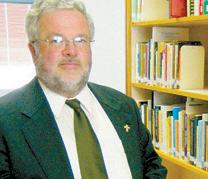
group touring Australia this year. This helps the ministry, team member James Hay said, as they can relate to the high school students better. He told The Record that their lives of chastity, simplicity and obedience – modelled on the vows taken by consecrated Religious – also help YMT members deal with the challenges of ministering to Catholic schools which contain many students deeply affected by secularism.
“There are elements of resistance in schools, as the culture we live in doesn’t exactly lean towards Catholicism,” Mr Hay said.
“Having a manager and working in a team ensures you’re protected. Just like the ordained people’s focus is on God, we are able to root ourselves more deeply in God, so we are used for God’s work Please turn to Page 3
Adding it up
Perth bioethicist Fr Joe Parkinson tells Curtin university lecture euthanasia spells disaster for society.
6
@
Western Australia’s award-winning Catholic newspaper since 1874 - Wednesday, 3 February 2010 Perth, Western Australia $2 www.therecord.com.au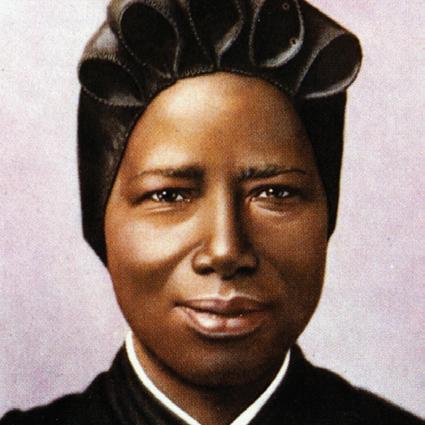
OVER 100 youth from parishes north and south of the Swan River descended on Como parish on 24 January for an explosive Sunday Sesh that revealed surprising insights into the concept of modesty.
The ‘Sunday Sesh’ is a Catholic formation and fellowship youth programme hosted in parishes across the Archdiocese, and was initiated by the Perth Archdiocesan Catholic Youth Ministry (CYM) office to link the Faith and the Holy Sacrifice of the Mass to a social event that enables youth to seize and live out the Catholic Faith and values.
Hosted and prepared by the collaboration of CYM workers and parish leaders, the 2010 January Sesh started the year with a revealing talk about modesty, including profound details of our Godgiven beauty.
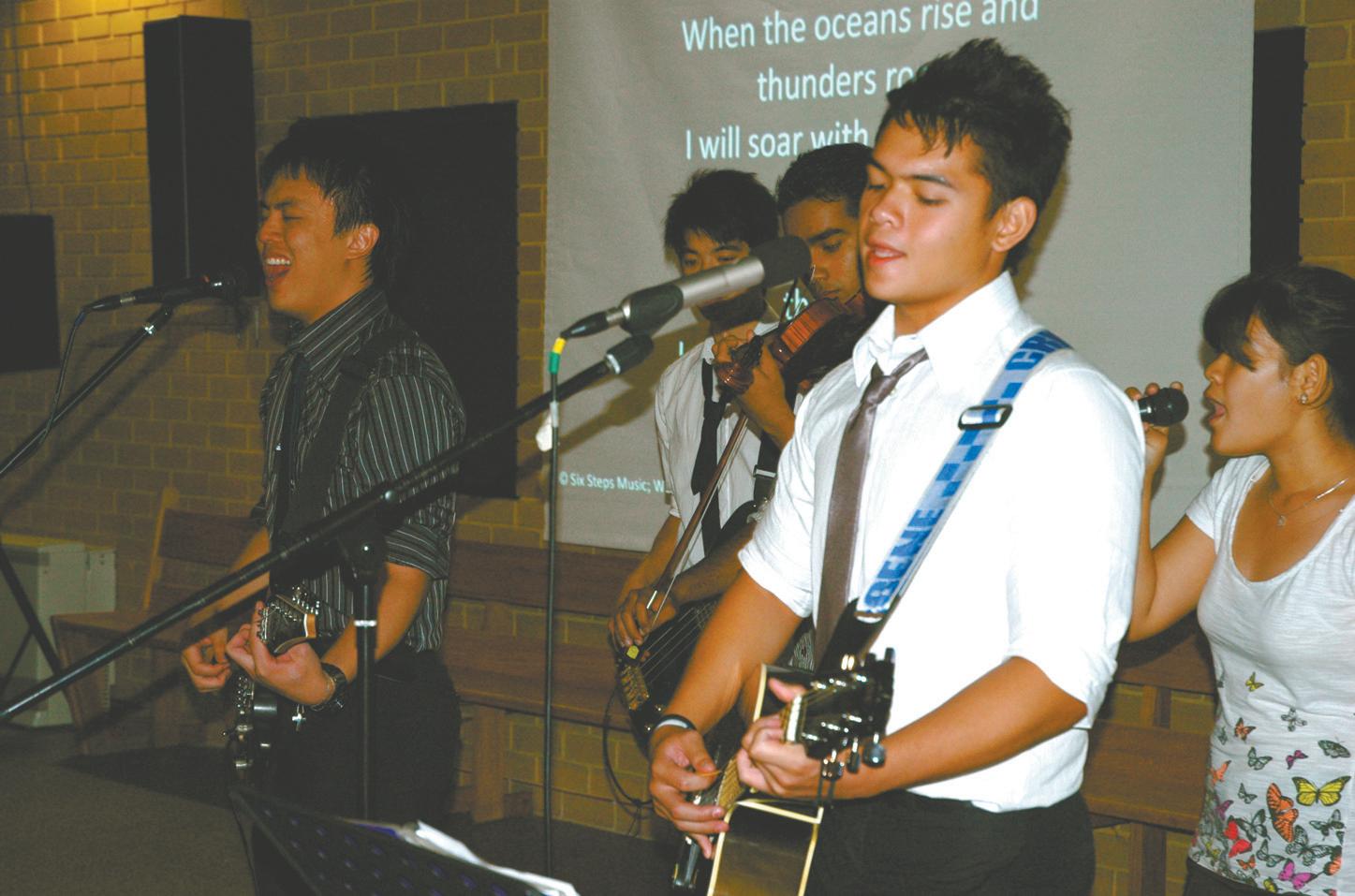
Video The Parish
Podcasts The Nation
Print The World
Try the CNS Mediaplayer on The Record’s website www.therecord.com.au
The southern parish leaders of Como, Myaree, Manning and Applecross united talents, job roles and their love of the Faith to promote modesty as a contributing factor for enhancing beauty and not an imposed behaviour to repress individuality, beauty or youthfulness.


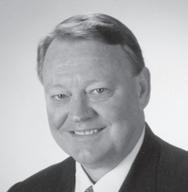
Editor
Peter Rosengren cathrec@iinet.net.au
Local News
Robert Hiini rthiini@gmail.com
Mark Reidy reidyrec@iinet.net.au
National News
Anthony Barich abarich@therecord.com.au
Advertising/Production
Justine Stevens production@therecord.com.au
Accounts
June Cowley recaccounts@iinet.net.au
Classifieds/Panoramas/Subscriptions
Bibiana Kwaramba administration@therecord.com.au
Record Bookshop
Caroline Radelic bookshop@therecord.com.au
Proofreaders
Christine Jaques Eugen Mattes Hugh Ryan
Contributors
Debbie Warrier
Karen and Derek Boylen John Heard
Anthony Paganoni CS Christopher West Catherine
Parish Bronia Karniewicz
Fr John Flader Guy Crouchback
The Record PO Box 75
Leederville WA 6902
587 Newcastle Street, West Perth Tel: (08) 9227 7080, Fax: (08) 9227 7087
Website: www.therecord.com.au
The Record is a weekly publication distributed throughout the parishes of the dioceses of Western Australia and by subscription.
The Record is printed by Rural Press Printing Mandurah and distributed via Australia Post and CTI Couriers.
The first Sesh for the year opened with a comedic drama about the relationship between temptation and the way we represent ourselves to one another: “Adam and Eve” was created by Gaetan Raspanti, writer and director for animated screen, who performed both God and Satan and received an uproar of laughter; Reuben De Melo (Myaree parish) was the suave Adam and Geetanjali Arora (Como parish) played the temptress Eve.
Tom Seeber, the core team leader from the diocesan organisation True Love Waits and Respect Life Office director Bronia Karniewiczc tag teamed their presentation to target issues that affect both male and female perspectives of modest behaviour.
The crowd, which consisted of teens, had some time for a self-analysis discussion and many questions for the speakers. Mr Seeber gave his testimony, from a life of mohawks and ripped shirts to a self awareness of his body as an image of God that transformed the way he dressed: “… how we choose to represent ourselves says a lot about how we care about others”.
The talk compacted issues from fashion, internet behaviour, the secular media and relationships, as contributing factors that alienate our true self-worth and
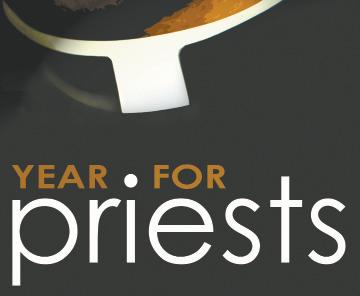 BY GLYNNIS GRAINGER
BY GLYNNIS GRAINGER
Fr Maurice Toop, 78, who has retired to a Redcliffe villa, has been 55 years a priest, but he’s also a dead ringer for the old man in the top-line animated 2009 film Up. He told The Record he was born in Nedlands and was educated at St Therese’s primary school for boys and girls by Loreto nuns, attached to the Nedlands parish church.
At the age of 13, he went to St Charles Seminary to finish schooling and then to the Collegio Brignole Sale, in Genova, Italy, at the age of 19.
He was with (later Archbishop) William Foley, and both were ordained priests in Nedlands, both being from that parish, on 12 September 1954.
As he learnt Italian in

beauty, and relationships that we have with one another. The night ended with a spiritual formation prayer, called a Litany of humility, which asks God to rid us from self pride and self importance.
The next Sunday Sesh is at St Aloysius Parish, Shenton Park on 21 February at 7.15pm. CYM’s annual Youth Leaders Commissioning Mass was to be held at the Cathedral of the Immaculate Conception on 4 February. CYM’s weekly Holy Hour of Adoration of the Blessed Sacrament resumes on 10 February at 6.30pm at the Chapel of St Therese of Lisieux in the Catholic Pastoral Centre, Mary Street, Highgate. For more info on the modesty presentation, contact True Love Waits on truelovewaitswa@yahoo.com or respectlife@perthcatholic.org.au. Contact CYM on 9422 7912 for info on events.
Genova, he was appointed to the Perth parish, then St Brigid’s West Perth, a predominantly Italian parish, with new arrivals from Italy, from 1954-59, as curate, or assistant priest. Then he went to Sacred Heart parish, Highgate as assistant priest, where Bishop John Rafferty was Parish Priest. His main work was with the newlyarriving Italians in the parish. Interraction with the Italian people in the first 10 years was a highlight of his career.
In 1965 Kalgoorlie parish, including Boulder, was his next posting. The nearby Little Sisters of the Poor looked after the elderly, who were harassed at times by the Aborigines.
“The priests used to stay overnight to protect the old people,” Fr Toop said, adding: “Everything was due to alcohol.
“In 1974 I went into it fulltime, when 70-80 Aboriginal people used to frequent the Little Sisters’ place - many of (the Aborigines) were really ill.
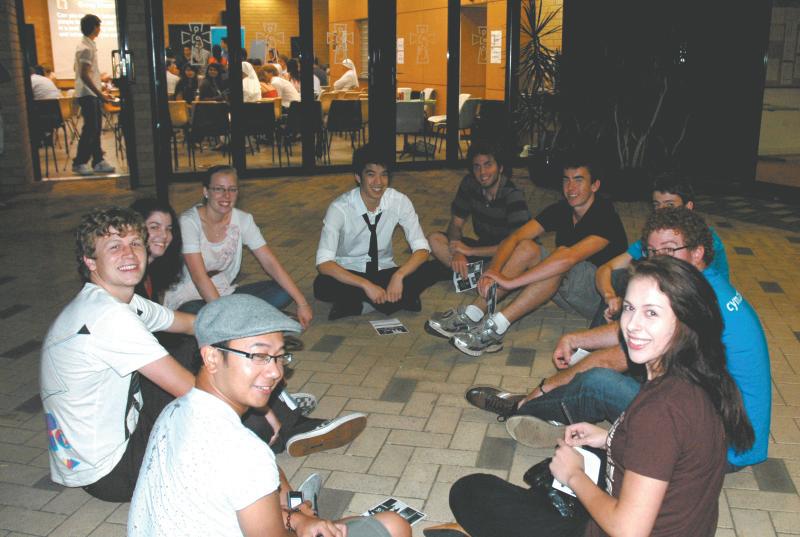
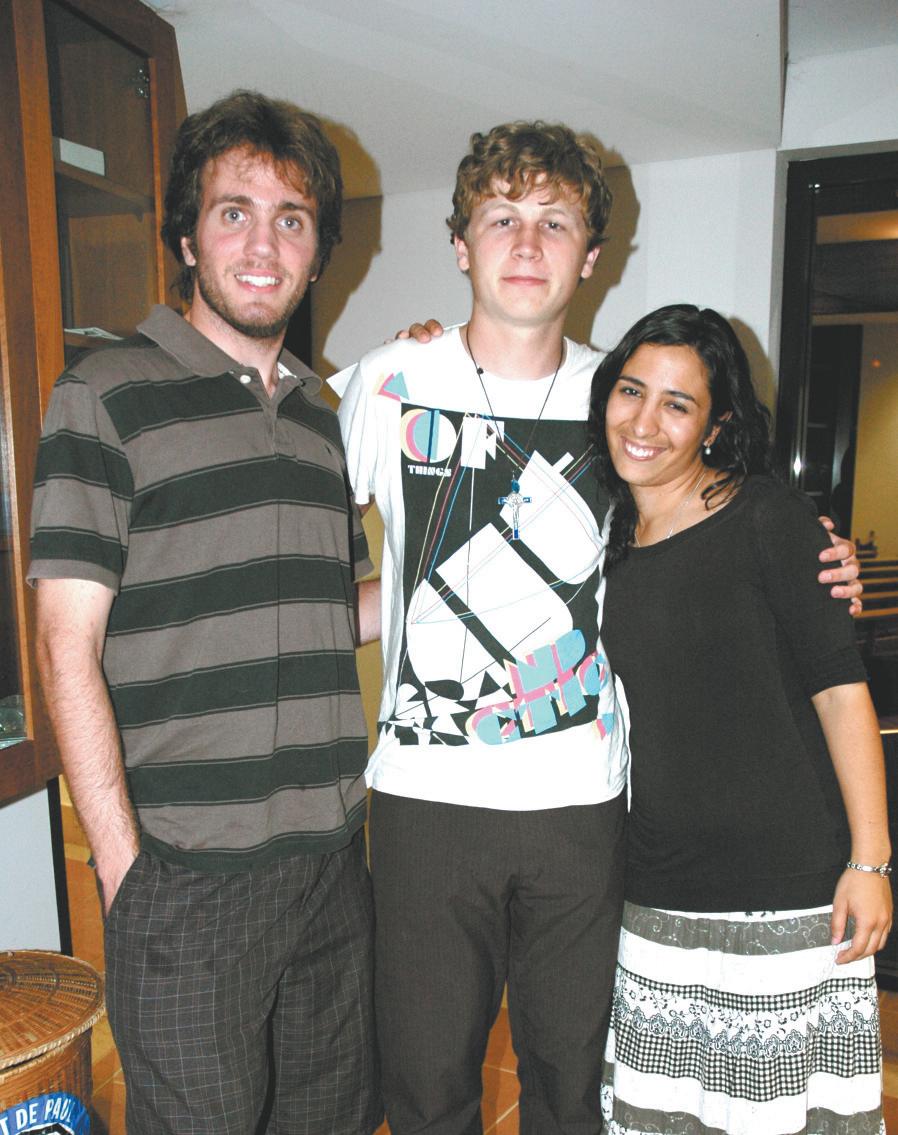
“I went to live with them (the Aborigines) at Grants Patch, 60km from Kalgoorlie, where we got a permit to cut wood, which we tried to sell in Kalgoorlie.”
Fr Toop said his time at Grants Patch was the highlight of his career, when he was young and full of energy. He says the Aborigines are “one of Australia’s great tragedies.”
“They can detect any form of ‘humbug’ or insincerity –they were so charming (but) they lived in fear and had a sense of prayer,” Fr Toop said. “They had a natural connection with Christ and the Resurrection. You could relax completely – they had wordless communication.”
He came down to Perth to St Kieran’s, Osborne Park, for five years as Parish Priest, where “we built a new church”; then on to Geraldton diocese in 1984 for four years; Northam for four to five years (1988-93); back to Highgate as Parish Priest for eight years, then 2001 to Maylands, with a “very lovely” church, as Parish Priest.
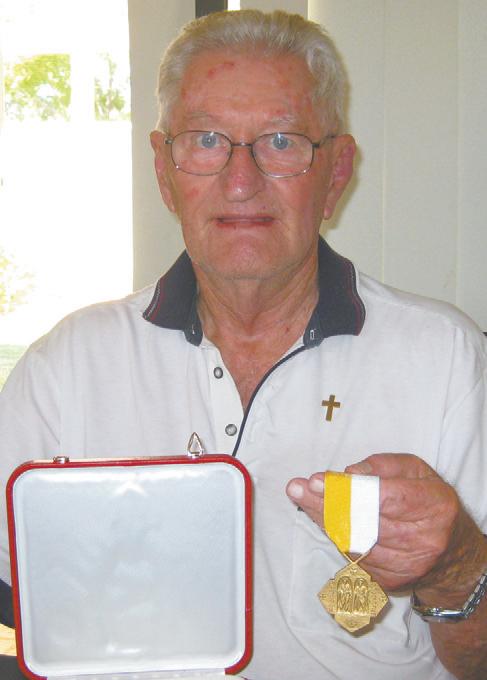
“I got a strange pneumonia for about 10 months at Maylands,” Fr Toop said.
“In May 2009, I retired and moved out to Redcliffe.”
Last year he was awarded the Papal medal Pro Ecclesia et Pontifice by Pope Benedict XVI (see picture above)
He has two married brothers, nephews and nieces, grand nephews and nieces and a great grand niece.
Next week: Is Fr Toop really a dead ringer for Up’s old man? Readers get to vote.
ST JOSEPH'S Parish in Subiaco is gearing up for what organisers are dubbing "the world's biggest Bible seminar broadcast" on 10 February.
Set My People on Fire, run in conjunction with Flame Ministries International, will be held on site at the Parish and streamed live via the internet.
The seminar is a youth initiative but is open to all ages, organisers told The Record, and will focus on providing insight to Scripture and to its practical application in modern life.
The seminar is the first large scale event to be held at St Joseph’s after recently undergoing extensive renovations and additions including state of the art office and conference rooms and a piazza in the grounds of its historic church.
A parish representative said that the site provided "an ideal environment" for the delegates, musicians and speakers to make the broadcast.
Greg LeCoultre, Youth Coordinator at St Joseph's, said that the seminar has the potential to re-energise parishes, communities and nations; a key realisation behind the move to stream the seminar on the internet.
“When planning the semi-
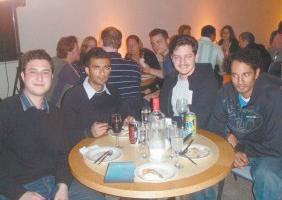
nar for the youth of St Joseph's, we realised that with our new facilities we could aim further afield, taking the Set My People on Fire seminar to youth across the globe."
In previous years, Flame Ministries International have conducted the seminar in Australia, the UK, USA, Portugal, Mexico, St Lucia, Pakistan, Uganda, Singapore, Malaysia and Indonesia.
This year, it will be held in the new Upper Room of St Joseph's offices with WA residents encouraged to attend in person while people living interstate or overseas can log onto the live webcast at www.stjosephssubiaco.org.au or www.flameministries.org.
For more information visit the above websites or contact Greg LeCoultre at glecoultre@ stjosephssubiaco.org.au or on 0413 052 705, 08 9381 0400.
Continued from page 1 and not our own.” The lifestyles also ensure that the call to mission does not just cover one part of their life, but encompasses all of it.
This year’s five missionaries are unique in that the two members who are women had parents who are second-generation YMT members. Miss Cruise’s mother Michele was on the first team 25 years ago and Miss Simon’s father Kelvin was the team leader.
Glendalough parish priest Fr Doug Harris was also in that team at the time as a teenager.
The YMT was started by Colin Sutton, who felt inspired to establish missions in schools.
Member of the Disciples of Jesus, a national organisation with a strong focus on build-
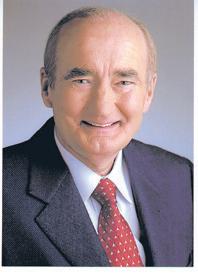

ing Catholic communities based on serious commitments to their faith, began living in households – men and women separately –while ministering to schools.
Volunteers gather each year in Wollongong for an orientation and selection process before being sent out to the dioceses with others their own age.
Is it true our Company philosophy is “We are a friendly and efficient company trading with integrity and determined to give our customers the very best of service?”
Is it true I regularly publish testimonial letters from satisfied customers praising us for our outstanding level of customer service?
Is it true that although I spend a lot on advertising, most of my sales are from a combination of personal recommendation, repeat business and reputation?
Is it true that for seven consecutive years I was the world’s top selling Hyundai dealer?
Is it true I have been doing business in Victoria Park for over 40 years?
Is it true I sell on average over 1600 vehicles every month, which is the highest in Australia from one location.
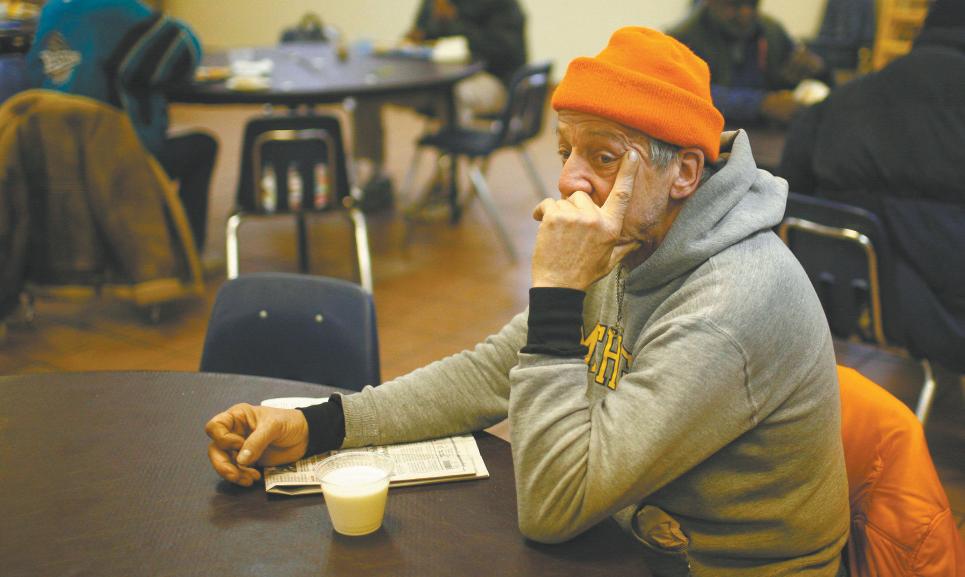
AFTER putting out an urgent appeal in November last year to raise $600,000, St Vincent de Paul have announced that the West Australian community responded generously, donating a grand total of $614,000.
The 2009 Christmas period was a very demanding time for the Society with a 59% increase in the amount of client calls to the Metropolitan Call Centre in November and December 2009 compared with the same months in 2008.
The figures were significantly higher when comparing the month of December alone with a 93% increase in client calls compared with last year.
Lucinda Ardagh, St Vincent de Paul Society Spokesperson said that the need for assistance in the lead up to Christmas is very apparent and the Society’s volunteers worked around the clock to deliver as much welfare as possible.
She said that over 1,000 food hampers were distributed from the Society’s warehouse in Belmont to families and individuals in need in the lead-up to Christmas with many hundreds more going directly to people’s homes from the Society’s ‘conferences’ within the community.
“The Society received a great deal of support from the business community, Perth schools and volunteers,” she said.
“The Christmas Appeal is a team effort and without the manpower, the material goods and the financial support we would not be able to help families get through the expensive festive season.”
The funds raised for the 2009 Christmas Appeal will assist the Society to respond to calls for welfare from the community between now and the start of the Winter Appeal in May.
“Thank you to all who donated and gave their time to the 2009 Christmas Appeal.
“Someone’s Christmas was complete and with the ‘hand up’ received through the provision of food, clothing, household goods and help with utility bills, the circle of disadvantage can be broken and change lives for the better,” Ms Ardagh said.
With close to 14,000 homeless people in WA, the need for funds is a constant, with the Society urging West Australians to continue to support their work.
To donate to the Society call 13 18 12 or log on to www.vinnies.org.au.
continued from page 1
● Establish early intervention programs for the traumatised.
● Establish structures to enable women and men to express and work through their trauma.
The paper calls on Catholic educators to:
● Treat the physical and psychological manifestations of abortion trauma as a health education issue, independently of the ethical issues surrounding abortion.
● Draw attention to the issue of women being pressured into unwanted abortions.
● As part of religious education, provide guidelines on how our young can respond to family and friends hurting as a result of an abortion experience.
Speaking to The Record, AGA’s founder and director Julie Cook said that Catholic health institutions were “handicapped by a reliance on information from mainstream professional bodies.”
“Catholic health and educational institutions need to start addressing the issue of abortion trauma.
“Their inaction is a tangible statement that is not missed on the community, policy makers and their professional non-Catholic
peers,” Ms Cook said. While agreeing that the subject is worthy of public discussion and that health care providers should be mindful of particular needs, Catholic Health Australia chief executive Martin Laverty disagreed with some of the claims made in AGA’s discussion paper.
“If a person was to present as requiring care as the result of any type of trauma, they are going to be embraced by Catholic healthcare professionals,” Mr Laverty said.
Women presenting to Catholic health institutions during childbirth may find trauma triggered from an earlier termination, he said; a situation in which the attention of care givers would be immediately provided.
Mr Laverty said that as most women are aware of the ethical position of the Catholic Church on terminations, Catholic hospitals were unlikely to be “the first point of call” to women suffering post-abortive trauma.
Mr Laverty criticised many of the claims in the paper as being without evidence.
“Reform of systems can only be undertaken when there is evidence to prove the case. Any change has got to be informed by some evidence.”
OUR Lady of Lourdes, Rockingham, said goodbye last weekend to its longest serving Assistant Priest in recent memory, Fr Vittorio Ricciardi.
In the parish’s weekly bulletin, parish priest Fr Michael Separovich said of his departing colleague and former Redemptoris Mater seminarian: “Our lives have been enriched and challenged by his zeal of preaching the Gospel, souls and spirits healed by his sincere compassion, humility and patience.”
Fr Separovich said that Fr Vittorio had faced several challenges since joining the parish under previous parish priest Fr Finbarr Walsh; in particular, adapting to a broad Australian English.
“I wonder how we as individuals would have coped and fared if the shoe was on the other foot? Father even learnt some Australian colloquialisms.”
The parish priest thinks that parishioners have learnt a lot from him in return.
“We have not only grown in profound knowledge of the Scriptures by his scholarship, but also by his sharing of the latest news in the world of IT. What new computer programme is on the market for the best value, not to mention the capacity of Italian sportscars and motor vehicles in general.
“Fr Vittorio is a man full of surprises and talents. His simple humour allowed us to laugh with him. His passion and the love of children and students in our schools were real.
“Movement on the soccer pitch was a regular occurrence with the young at heart.
“For the sick and the dying, he showed gentleness and empathy in their time of suffering.
“In return for others’ disloyalty, he repaid with forgiveness and generosity. His ‘crescendos’ when preaching will never be forgotten.
“Fr Vittorio we thank you for
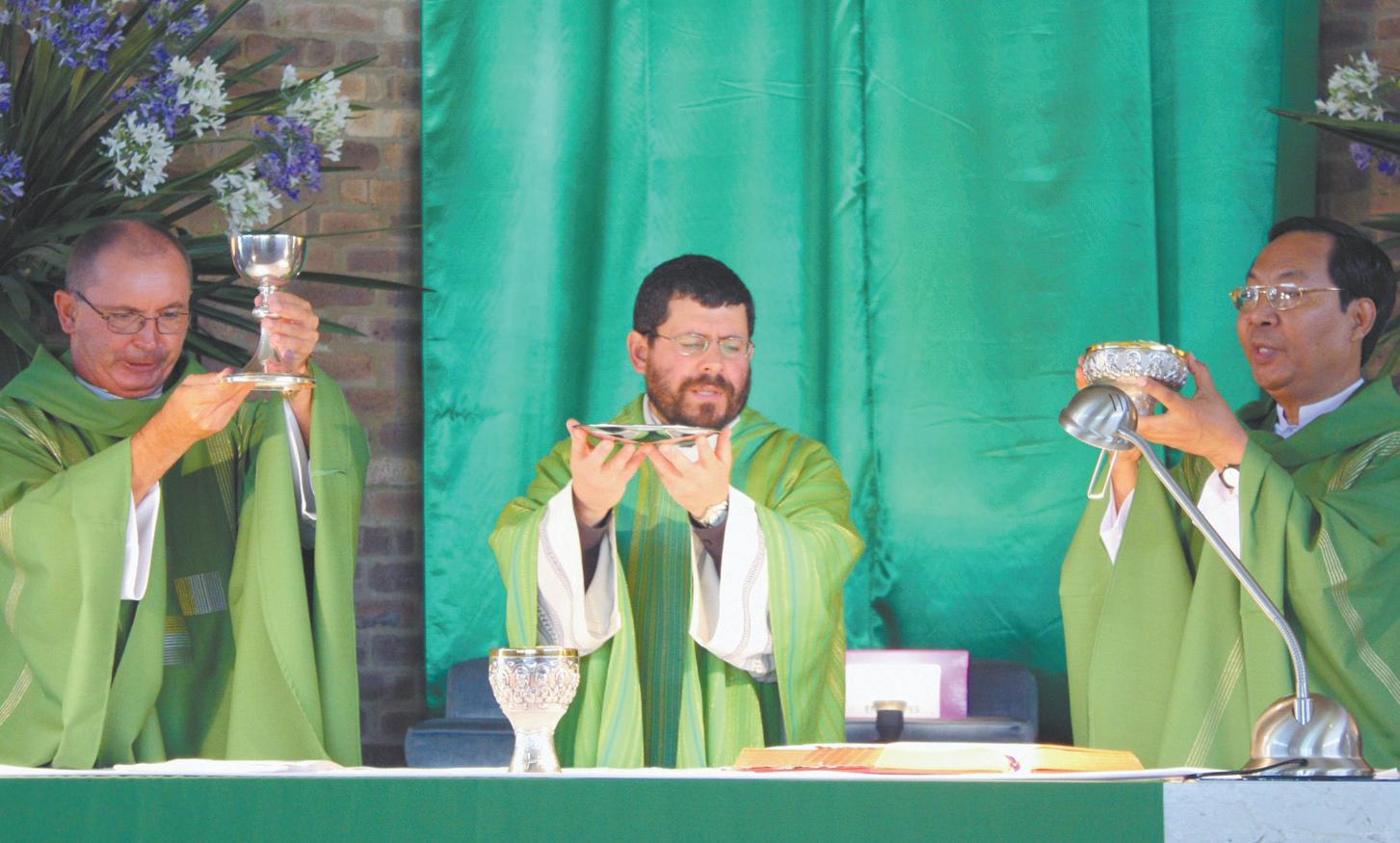
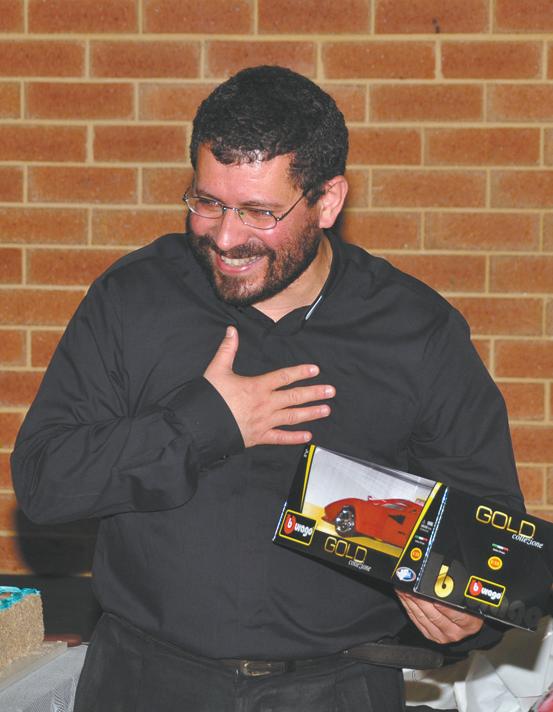
your humanity and for being a true priest.” Fr Vittorio’s next assignment will be in the Bunbury diocese where he will be an Assistant Priest while also being involved in missionary work with the Neocatechumenal Way.
“Any place that we go as priests, there is always the task to be a missionary,” Fr Vittorio said.
“What’s important always is friendship with Christ.”
Fr Joseph Kum Htoi, formerly in the Parish of Applecross, has been appointed the new Assistant.
PERTH evangelist Eddie Russell of Flame Ministries International has issued a warning about Christian meditation in the leadup to a Perth visit by Fr Laurence Freeman OSB, the head of the World Community for Christian Meditation.
In a facebook post entitled The truth about Fr Freeman's socalled "Christian" Meditation (an open letter to the Church)," Mr Russell provided a link to a page on his organisation's website listing a number of concerns about Christian Meditation and spiritual practices taken from other traditions. "These words and practices are introduced to [Catholics] by plausible people and they are never questioned," the page states. “The result is that many Catholics may be practising New Age occult religions without realising it."
Mr Russell says that he regards the use of a mantra and the inward looking nature of meditation to be "a subtle corruption of authentic Christian Mystical Theology which I believe is leading so many spiritually hungry Christians away from the tree of life."
Authentic Christian prayer, he says, is a movement out of oneself towards God. He asserts that passing "into the innermost core of our being" through the discipline of meditation can elicit unhelpful
"repressed material" and is dangerous in allegedly leaving people open to suggestion and possible demonic influence.
Responding to the page on Flame Ministries website, Tom Gannon, director of Campus Ministry at Notre Dame University which is hosting Fr Laurence Freeman on 16 February, said he respectfully disagrees. “Benedict XVI has written a lot about the future of the Church resting on three things that are, I believe, three sides to the same reality that I would call God, those being Truth, Love and Beauty. When you truly hear it, feel it, or see it, you don’t need to explain or defend it. It is obvious,” Mr Gannon said. “For people who have practised Christian meditation, the ‘emptying’ and invitation for Jesus to come is just that. As a friend of mine says, for it to be true you have to fall in love, you can’t be pushed and you don’t jump.
“One of the important realities in this puzzle is that we need to be open to God speaking to us, but also open to God speaking to others in different ways. If you judge the tree by the fruit, Christian Meditation produces a bountiful harvest.”
For info on Fr Laurence Freeman's visit to Notre Dame, call 9433 0580. The above-mentioned webpage can be found at www.flameministries.org/word.htm.
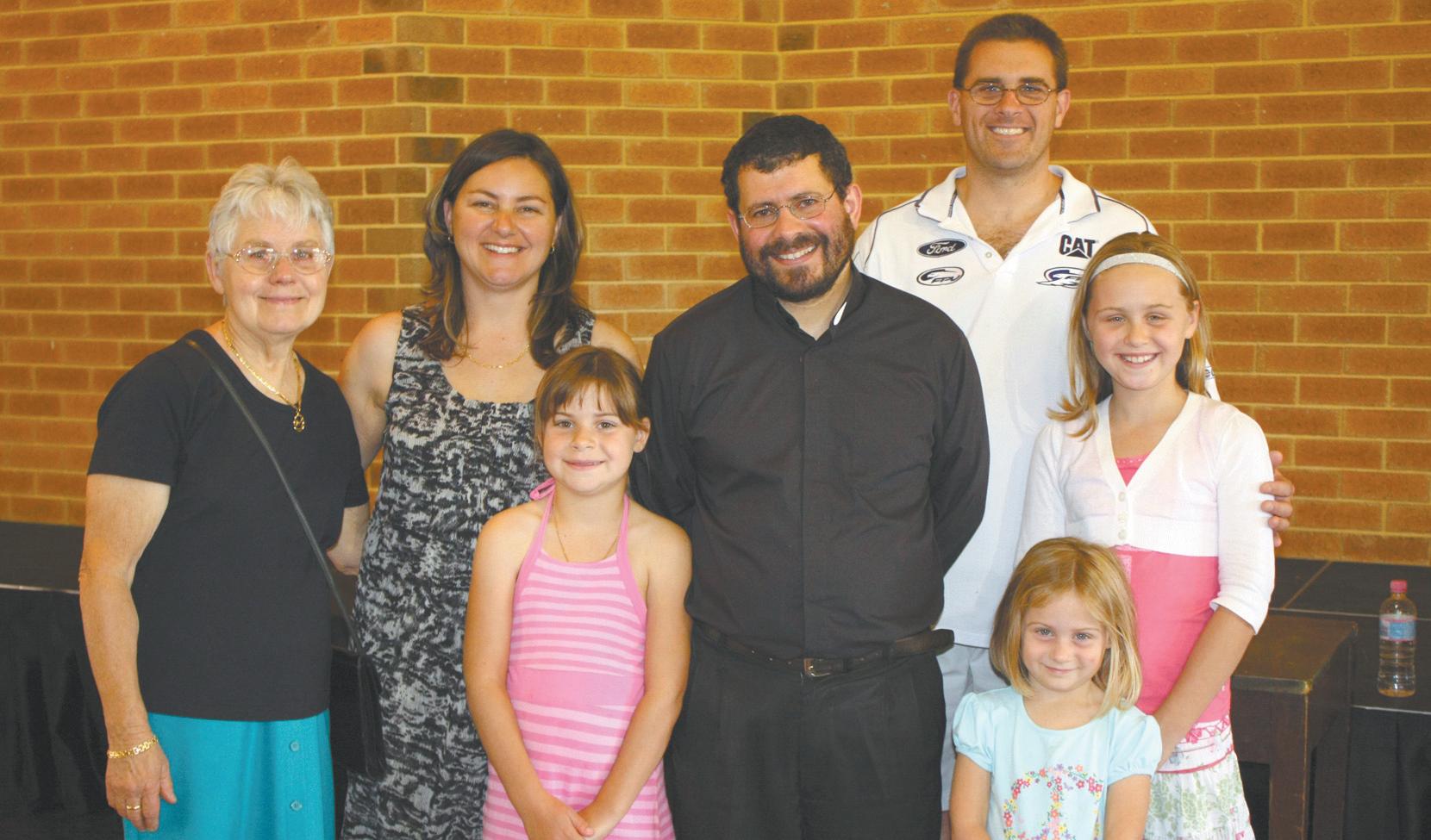
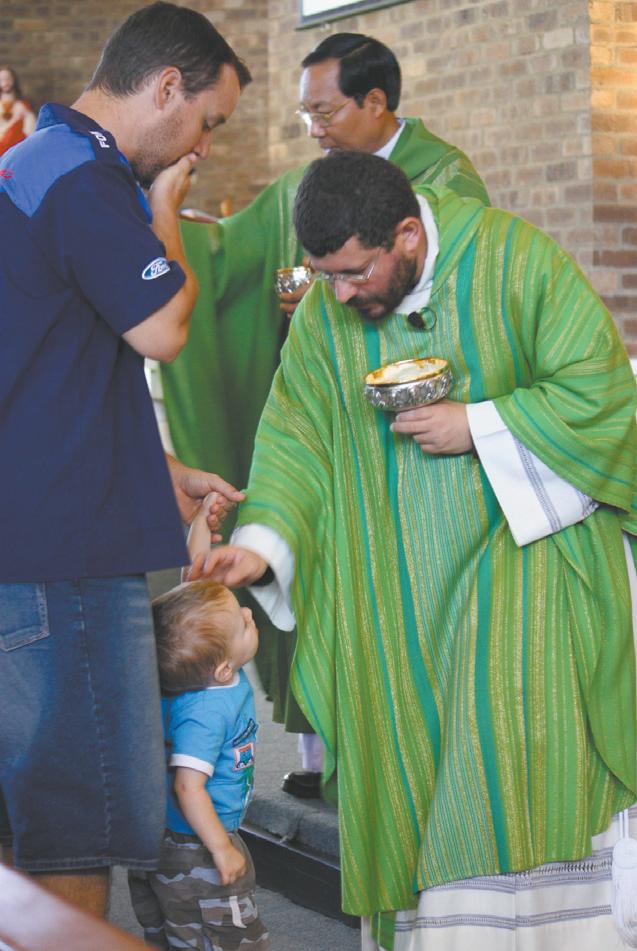
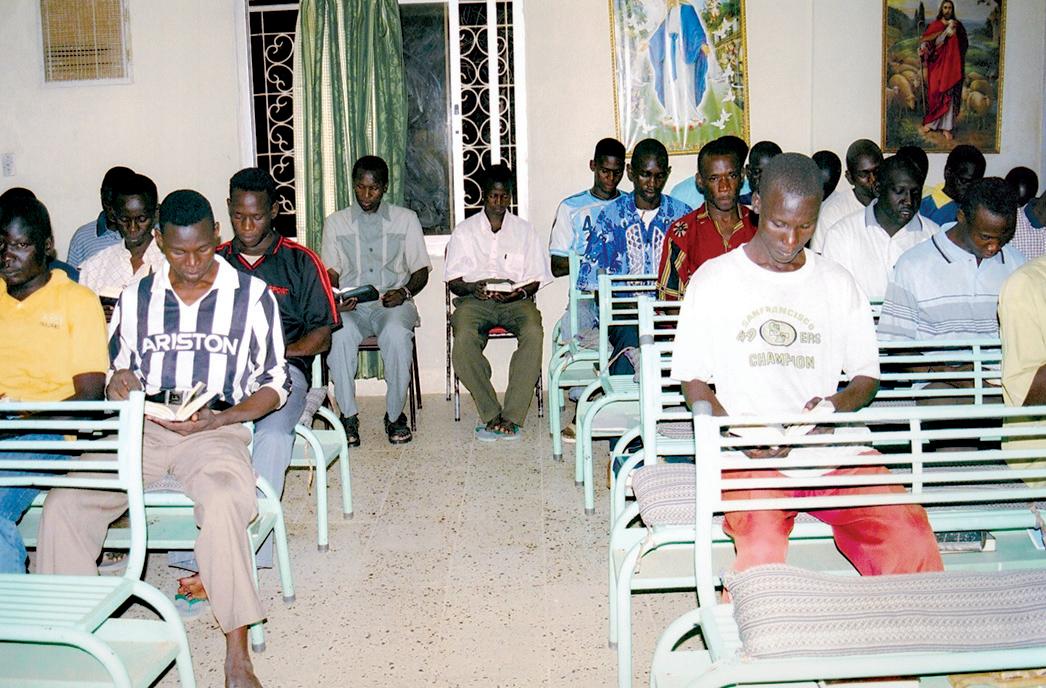


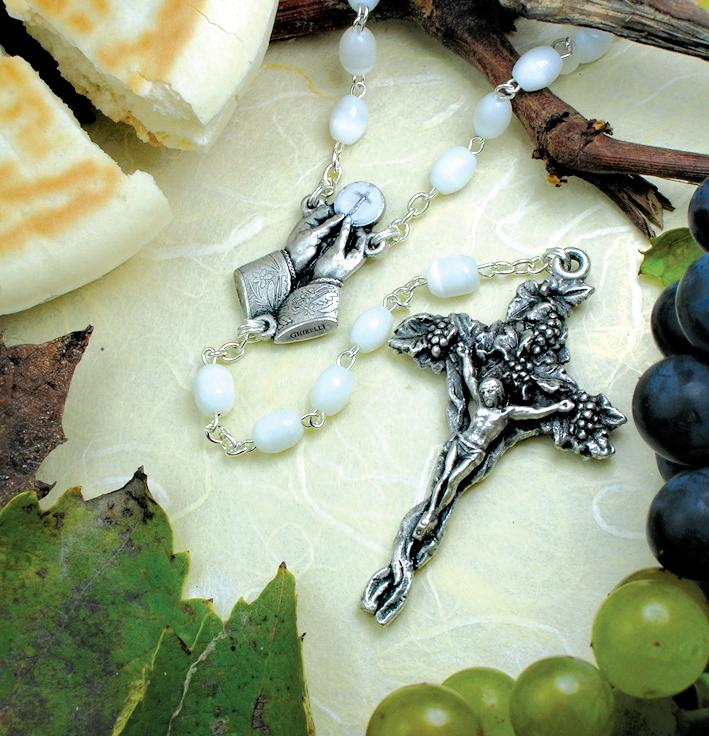

NEARLY eight years after Fertility Care was established in Perth, a new medical centre in New York is giving women and men the same hope of conceiving a child, as well as healing reproductive ailments.
Gianna - The Catholic Healthcare Centre for Women is the first dedicated NaPro Technology practice in New York and one of only a handful in the country to offer a combination of effective infertility treatment alternatives to morally objectionable assisted reproductive technologies such as in vitro fertilisation.
"Catholic women in many communities feel they have no access to health care that is consistent with their values," said the founding director Dr Anne Mielnik of a new women's medical centre in midtown Manhattan that will provide "authentically Catholic" primary care, obstetrics, natural family planning and infertility treatment.
The facility, sponsored by St. Vincent Catholic Medical Centres, opened on 8 December last year, the feast of the Immaculate Conception.
"There's no suffering comparable to what you see in an infertile couple," Mielnik said. "They're desperate to have a child and when they look for guidance, they end up in an IVF clinic. They're balancing their desperation for a child with doing what they know is wrong."
The Gianna centre uses the Creighton Model Fertility Care System, a natural method of family planning and gynaecological health monitoring, in conjunction with a comprehensive system of reproductive health management called natural procreative technology, or NaPro technology. Both methods were developed by Dr Thomas W Hilgers, founder of the Pope Paul VI Institute for the

Study of Human Reproduction in Omaha, Nebraska.
Dr Mielnik graduated from Jefferson Medical College in Philadelphia and completed her family medical training at Lancaster Pennsylvania General Hospital in 2009. She met her medical partner, Dr Kyle Beiter, an obstetrician and gynaecologist, while studying NaPro Technology in Omaha.
As a medical student, Mielnik said she dreamed of starting a programme that would provide health care and educational services to women to "counter the Planned Parenthood sex education curriculum."
She said she started the John Paul II Centre for Women in Marietta, New York, in September 2008 "in response to the pleas of Catholic women for access to reproductive health care and family planning options which affirm their dignity as women and conform to the Catholic Church's teachings regarding human sexuality and medical ethics."
The John Paul II centre is directed by Joan Nolan, a Creighton Model Fertility Care practitioner. Mielnik said the John Paul II centre's mission is to open Gianna centres for women throughout the United States.
Mielnik said she and the John Paul II centre initially planned to open a small medical practice in New York with the support of a pro-life benefactor.
Serendipitously, she was recruited by the chairman of the St Vincent's Medical Centre obstetrics department to establish her Gianna centre under St Vincent's banner.
She called St Vincent's "the last Catholic hospital in Manhattan, the last pro-life hospital," and said it had a waiting list of people interested in NaPro technology and had been trying to recruit a NaPro-trained physician for two years.
Mielnik said NaPro technology addresses infertility by diagnosing and correcting its causes instead of using synthetic hormones to suppress or bypass a woman's reproductive system. She said problems including anatomical and hormonal abnormalities, infections and ovulation disorders are addressed with surgical procedures and compounded hormones.
Surgeries can open blocked Fallopian tubes, remove endometriosis and treat polycystic ovarian disease, she said. By identifying a possibly subtle hormone deficiency and replacing the hormone with an identical compound, delivered at the appropriate time in a woman's menstrual cycle, Mielnik said NaPro technology can correct conditions that compromise fertility.
NaPro technology has a success rate comparable to in vitro fertilisation, as measured by the number of live births among women using it to help achieve pregnancy. It is
also significantly less expensive, rarely results in multiple pregnancies and does not result in frozen embryos. NaPro technology is also used to treat recurrent miscarriages, premenstrual syndrome, menstrual cramps, ovarian cysts, postpartum depression and premature births.
Mielnik said couples who visit the Gianna centre for infertility have an initial 90 minute consultation, followed by a two to four month monitored evaluation of the wife's charted menstrual and fertility cycle. Corrective surgery or hormonal therapy then may be implemented.
The Gianna centre also will work closely with the New York Archdiocese to offer an educational curriculum that promotes a view of women consistent with their dignity as daughters of God, said Mielnik.
She said the John Paul II centre supports Catholic physicians with a confidential Listserv for discussion of ethics and resources.
"There is tremendous power in the knowledge of Church teaching," she said.
A pro-life doctor is a "lone voice in most health care systems," she said, and the Listserv "is a place where Catholic physicians can support one another and share resources."
The centre is named for St Gianna Beretta Molla, an Italian physician and married mother of four who refused to abort her youngest child when a uterine tumour threatened her own life during the pregnancy. She died in 1962 shortly after the 10 pound baby was born. Mielnik said St Gianna is a model for true femininity. She said the saint lived a life of great sanctity, balancing her personal and professional roles.
"She gave her life for her child, but it wasn't a question of her life or her child's, but which actionorphaning her children or giving life - was the greater good," she said. "She chose to give life."
For more information on NaPro fertility services offered in Perth, contact Fertility Care on 9440 4530 or admin@fertilitycare.com.au.
AUSTRALIA is on the way to receiving more NaPro Technology fertility practitioners after a recent seminar held in Sydney from 9-17 January.
The seminar was the first of two in a 13 month training course with 12 students hailing from Brisbane, the Gold Coast, Sydney, Melbourne and an international candidate from Gibraltar.
The programme's teaching faculty includes Perth's Dr Amanda Lamont, founder of Fertility Care in Yokine, and two US-based fertility specialists including Diane Daly, who pioneered the technology with Dr Thomas Hilgers MD in 1976.
Dr Lamont told The Record that the eventual addition of new NaPro Technology practitioners in Australia would bolster the provision of services that provide a rate of pregnancy that is comparable to In Vitro Fertilisation (IVF) but at a much lower cost.
After several years working at a fertility clinic in Galway, Ireland, she returned to Perth to establish Fertility Care in 2002, which now has a staff of four doctors and four accredited NaPro Technology practitioners.
With 30 to 40 percent of their couples eventually conceiving, Dr Lamont said that their approach to reproductive health could take
longer than IVF but had the long term benefit of dealing directly with the underlying causes of infertility.
Many women tell her that they wish they had known about Fertility Care sooner with mainstream public hospitals committed to investigating causes of infertility only after a woman has suffered three consecutive miscarriages.
She estimated that in 30 percent of the couples she sees, subfertility is experienced by the male party with a roughly equal number of couples where the woman's fertility is suboptimal.
In the remainder of couples, both men and women require thorough diagnoses and treatment.
In spite of their success rates, awareness about the existence of Fertility Care's services and alternatives to IVF remain scant; something Dr Lamont puts down to the low number of accredited practitioners and their lack of advertising expenditure relative to large, profitable IVF clinics.
While it may cost several thousands of dollars for one cycle of IVF treatment, Fertility Care services are based on GP rates with most of their clients learning about Fertility Care via word of mouth.
Local Church support for the provision of NaPro services has been great, Dr Lamont said, with Archbishop Barry Hickey providing encouragement and advice and St John of God
providing the centre's original facilities. For more information see advertisement below
A scripture study group for young women in Leeming is set to kickoff an exploration of the Book of Revelation, beginning 5 February. Convened by Sr Ann Cullinane, the group will view former Evangelical pastor and Catholic Scripture scholar, Jeff Cavin’s 10 week programme examining themes that have a high degree of “relevance to the 21st Century Catholic.”
Fr Hugh Thomas will lead a Lenten prayer weekend on 27-28 February. Beginning at 8.30am on each day, the weekend will help participants to become “powerful intercessors” modelled after Mary, the Mother of God.
The Redemptorist Monastery will host a peace vigil on 6 March. Organisers have invited one and all to join them in lighting votive candles for peace and to pray for Australia and war-torn areas of the globe. The vigil will take place from 6 to 9.30pm..
Fr Tony Chiera will present a mid-March retreat at God’s Farm, 40km south of Bussleton. Taking the theme ‘Walking with the Saints’ the retreat will take place Friday 12 March to Sunday 14 March. The retreats organisers are advertising return trip bus bookings for anyone who requires it.
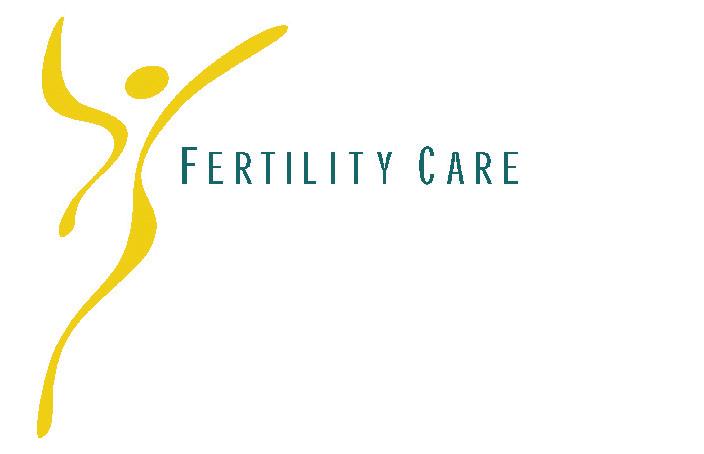
“A unique natural medical ethical approach to
fertility”
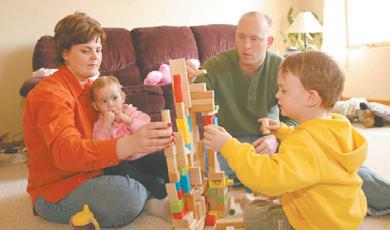
We can help you with:
Former students who began their schooling at St Ildephonsus College, New Norcia in 1946 (final year 1950) have been invited to a 60 year reunion. Organisers are still trying to track down several of their old school fellows (see Panorama). Teaching at the college - which operated under various names throughout its history - was administered by Marist brothers from 1913 to 1964 before being administered by Benedictines.
For more info on the above events, see Panorama pages14.
Abbott’s comments common sense, says women’s advocacy group
BY ANTHONY BARICH National ReporterINDEPENDENT think tank
Women’s Forum Australia (WFA) and a leading women’s author have welcomed Opposition Leader Tony Abbott’s revelation in a controversial personal interview with Australian Women’s Weekly that he wants fewer abortions and that he tells his daughters that virginity is a gift.
“I would like to see fewer abortions,” Mr Abbott said in the interview published on 27 January.
Author of Getting Real: Challenging the Sexualisation of Girls, writer, speaker and women’s advocate Melinda Tankard Reist also backed Mr Abbott’s comments, saying it would have been more controversial had he said he doesn’t care about his daughters’ relationships.
Mrs Tankard Reist, who cofounded WFA, added that “there doesn’t seem to be the same emphasis on boys’ virginity, only girls. There should be the same expectation on boys. There are different standards for the sexes”.
Noting that an estimated one in four pregnancies in Australia end in abortion, WFA chairperson Katrina George said Mr Abbott’s view about abortion is in line with most of the community, as research shows that between 64 and 73 per cent of Australians believe that the rate of abortion is too high.
“Tony Abbott is simply stating publicly what most Australians believe privately,” Ms George said, while also welcoming renewed public debate about abortion.
“Research shows that for many women abortion is not about choice.
“Financial pressures, uncaring or violent relationships, unsupportive work places, schools and universities drive many women to the abortion clinic.
Australian women need better information and support to freely make decisions about their pregnancies, she said.
She also expressed disappointment that the Federal Government recently abolished the National Pregnancy Support Helpline introduced under the previous Coalition Government by Mr Abbott when he was Health Minister.
While WFA threw its support behind the new family-centred helpline due to be launched in July, Ms George said there is “an urgent

need for access to independent and professionally trained pregnancy support counsellors who can give women real choices”.
Mr Abbott’s interview also drew fire from Deputy Prime Minister Julia Gillard as the former Health Minister also said he encourages his three teenage daughters that their virginity is a gift.
Senator Gillard said that women are “not interested in Tony Abbott imposing his views” on them. “These comments will confirm the worst fears of Australian women about Tony Abbott,” she said.
Prime Minister Kevin Rudd also told Fairfax Radio in Perth last week that personal matters like sex before marriage should be left to young people to sort out with their families and friends.
However, Liberal MP George Brandis defended on ABC Radio Mr Abbott’s right to discuss the
Women’s Forum Australia founder and author Melinda Tankard Reist will launch a new company this week called Collective Shout to harness the current research and momentum of parents’ concern about advertisers’ objectification and sexualisation of women and girls to sell products and services.
While a website will be launched next week, her current website, www.melindatankartreist.com, has research on the harmful effects of public displays of objectification on the development of females and even on the development and attitudes of males. She told The Record that Collective Shout will empower people to take action, as many people are
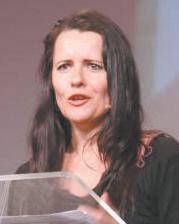
advice he gives to his own daughters, and also attacked Senator Gillard’s ability to understand the way parents think about virginity because she doesn’t have children.
“I think that most parents, in fact, all - any parent I can think of would agree with what Tony Abbott said and I think Julia Gillard who is - has chosen not to be a parent - and, you know, every body respects her right, in the vehemence of her reaction in fact shows that she just doesn’t understand the way parents think about their children when they reach a particular age,” Senator Brandis told ABC Radio.
“I do think her over-reaction to the, in my view, quite unexceptionable remarks Tony Abbott made as the father of daughters, is not something she would have said if she were herself the mother of teenage daughters.”
unsettled about the way society is going but don’t know how to act. “It will be an interactive, how-to, practical site to make complaints and alert others to offensive images they’ve seen in their own communities, plus a section on the site where visitors can graffiti virtual billboards of existing advertising images that objectify women with a virtual spraycan. Her own website has already generated remarkable global responses.
When she wrote on her blog about t-shirts for men encouraging rape and violence, with phrases like ‘It’s not rape if you yell surprise’, over 16,000 comments were made. Supre also sells t-shirts for girls aged 10-13 with ‘Pussy power’ on the front, which also elicited much response from the international community. She will visit Perth later this year at Parliament House to launch Getting Real, which is sold at The Record Bookshop.
CATHOLIC Health Australia has outlined for the Federal Government a plan to cut public hospital surgery waiting lists by nearly half by implementing a simple cost-effective national programme to connect patients with hospitals that have available beds.
The programme, Surgi-Link, is outlined in CHA’s Federal Budget Submission 2010/11: Funding the first phase of health reform.
Around 90,000 public hospital elective surgery patients a year wait longer than is clini-
cally appropriate to have their surgery, and the Prime Minister has acknowledged that reform must take place immediately - CHA has proposed a new federal programme, Surgi-Link, to use the spare capacity of the private hospital sector to provide publiclyfunded surgery to public patients who have been waiting longer than appropriate for their procedure. The programme would allow thousands of patients to access surgery that will dramatically improve their quality of life, CHA said.
An independent report has found Catholic not-for-profit hospitals could be forced to pay $192 million per annum if Treasury’s tax reform recommendations include the scrapping of tax concessions to charities.
The change would cause some hospitals to cut or close essential services, and may
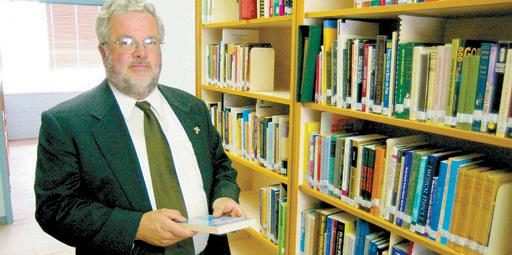 BY ANTHONY BARICH National Editor
BY ANTHONY BARICH National Editor
THE arguments put forward by those seeking to legalise euthanasia in WA are self-contradictory and not applicable in the real world, the director of the LJ Goody Bioethics Centre said during Curtin University’s annual ethics lecture on 18 November.
In his speech, recently acquired by The Record, Fr Joseph Parkinson said that legalising euthanasia could have “disastrous consequences not only for the patient but for our whole social fabric”.
He said he chose the topic
“Over the edge: individual autonomy and flat-earth ethics” because public debate on legalising euthanasia in WA has been “mediocre”, which he said is what happens “when we rely on media to drive the issue”.
As distinct from suicide (when a person deliberately causes himself or herself to die), he defined euthanasia as any act or omission by which one person deliberately causes another person to die at the other’s request.
He said that the argument of euthanasia advocates is based on individual autonomy, but it is clear from its causal structure that euthanasia is a social issue by nature rather than a purely personal issue.
The Western notion of autonomy is also based on a contradiction, he said: “We praise radically individualist thinking on one hand, yet rely on systems of social cooperation on the other.”
But he concluded that human beings are not so radically individually autonomous as to be able to choose any imaginable end to pursue, even if in so doing they avoid bringing harm to others – “not only because we happen to live in functional networks of social interrelationship, but by our very nature, we draw our sense of self from our specific social, historical and cultural contexts”.
increase the burden on public hospitals and raise the cost of private health insurance, CHA warned the Government.
CHA commissioned accounting firm KPMG to assess the impact on its 75 notfor-profit hospitals of removing payroll and fringe benefits tax exemptions from charities. The KPMG report found removing fringe benefit tax concessions would cost Catholic hospitals $72 million annually, and the removal of payroll tax concessions would cost $120 million per annum – a total cost of $192 million a year.
Three outstanding members of the Catholic
“Individual autonomy, then, cannot mean that we are free to pursue any end we wish from a virtually limitless spectrum of possible objects,’ he said.
He said euthanasia advocates’ three main arguments – “that most of the public want it; that as autonomous persons we should not be impeded from making this choice if we wish to; and that it is the role of Parliament to make this choice possible” – contradict the facts.
“If 80 per cent of our population really do support euthanasia, why do less then 50 per cent of doctors support it (according to the UK Multiple Sclerosis Society), and less then 10 per cent of cancer specialists?” Fr Parkinson said.
The right to choose our own ends, he said, and the underpinning view of “what it means to be human has served us so well that, in the Western world at least, it is accepted as a basic individual right which is limited only when necessary to meet the demands of living in community”.
This, he said, is “an essentially two-dimensional view of what it means to be human”.
There is a general assumption, he said, that so long as a choice is made autonomously, it ought to be respected – “that is, as long as the process of choosing is reasonable, we can ignore the object of that choice”.
He quoted peer-reviewed research published 15 years ago by Canadian clinician and academic Harvey Chochinovrecently in Perth for an international palliative care conference – which revealed that among terminally ill patients around 45 per cent express a desire to die at one time or another, but less than 10 per cent acknowledge a “serious and pervasive desire to die”.
The reason for this is sometimes physical pain and discomfort, but more often than not it involves existential pain and suffering: “hopelessness, burden to others, loss of a sense of dignity”.
Health Australia community have been recognised with awards in the Australia Day Honours. Southern Cross Care Tasmania Chairman Ray Groom has been made an Officer of the Order of Australia for service to the Parliament of Tasmania as Premier and through a range of portfolio responsibilities, and to the community through leadership roles within organisations supporting indigenous, aged and welfare groups.
Former Chief Executive Officer of Cabrini Health Roger Greenman has been named a Member of the Order of Australia for service to medical administration, the development of social outreach programmes and to church and charitable organisations. Sr Anthea Groves received the Medal of the Order of Australia for services to nursing, and to St Vincent’s Hospital, Darlinghurst. The Sisters of Charity nurse has spent more than 50 years caring for the sick in many areas of nursing throughout Australia and overseas.
ST JOHN of God Health Care and MercyCare WA have drafted new guidelines for patients planning future healthcare to cater for the WA Government’s Living Wills law set to come into effect on 15 February.
The guidelines were drawn up by SJOGHC and MercyCare Ethics Committees’ chairs Professor Con Michael and Mrs Maureen Colgan, respectively, Minter Ellison lawyer and former nurse Wendy Meggison, LJ Goody Bioethics Centre director Fr Joseph Parkinson and clinical nurse managers from the two
healthcare bodies. The guidelines closely follow the ‘Guide for People Considering Their Future Health Care’ jointly published by the Australian Catholic Bishops Conference and Catholic Health Australia several years ago.
They will apply to Mercy Hospital in Mt Lawley and SJOGHC’s four hospitals in WA and 10 hospitals in NSW, Victoria and Christchurch. The booklet, to be distributed to rooms of specialists, GPs and referring doctors around WA and given to patients with hospital admission forms, will be printed once all the concerned hospitals have approved it and a link has been provided by the WA Health Department.
The push for Living Wills legislation stems from Austin Hospital in Heidelberg, Victoria, which in 2002 introduced Respecting Patients’ Choices, a pilot programme supporting advanced care planning that has since been
extended to a number of other hospitals and communities around Australia, including Fremantle Hospital.
The guidelines are aimed at patients who may present an Advanced Health Directive (AHD), an Advanced Care Plan (ACP) or Enduring Power of Guardianship (EPG) upon admission into hospital.
Catholic healthcare, they say, is founded on the belief that life is a gift from God, and while patients’ personal preferences will be respected, patient care will always comply with Catholic ethical standards.
“This legal framework (the amended Consent to Medical Treatment Act) is supported by Catholic healthcare because it is about the promotion of autonomy and dignity. It is not about euthanasia,” the guideline states.
When patients may not be able to make a decision on future
THE Catholic Church in Australia is waking up to addressing transparency and clarity in the delineation of youth ministry leadership roles that has contributed to confusion among young people, an expert youth affairs consultant told The Record
Ahead of addressing the 8-12 February Foundations in Catholic Youth Leadership and Ministry conference run by the Archdiocese of Canberra-Goulburn’s CatholicLife evangelisation office, Dr Robert Long told The Record that Christian youth ministry, including Catholic, have suffered from a ‘role crisis’.
Dr Long, who headed the ACT Office of Youth, chaired the National Youth Affairs Research Scheme and was on the National Youth Taskforce of the Ministerial Council for Youth and Training, said school teachers and welfare workers often brazenly cross between their ‘corporate’ roles and as youth ministers, which involves a more personal role, causing ethical dilemmas for themselves and problems for the youth to whom they minister.
“The Church (Christian Churches) has not been clear about the delineation of roles and adults think they can cross over roles without being transparent about it. You need to be clear about the role you’re playing in a given environment. It’s difficult for a child to manage those delicate differences if the adult is not being transparent about it,” he said.
“There’s no reason why a priest can’t be a young person’s friend”, he said, but they need to be clear they’re not acting as a teacher when they are in a more personal youth ministry setting.
People who have not worked in youth ministry automatically often think they can do so because they are teachers, he said, which causes various forms of stress for young people trying to work out how a person who’s just chastised them on a weekday for, say, not doing their homework suddenly claims to be their friend in a youth ministry setting.
More serious are cases where a youth worker thinks it’s fine to touch or hug a young person in a certain way and think they’re entitled to cross that boundary as it’s allowed in a non-legislated environment, as opposed to a Centacare or school environment which has legal guidelines of behaviour.
The less corporate structure of youth ministry environments means problematic activity is not reported. Things like sexual abuse scandals are partly due to this lack of transparency and clarity in roles, he said.
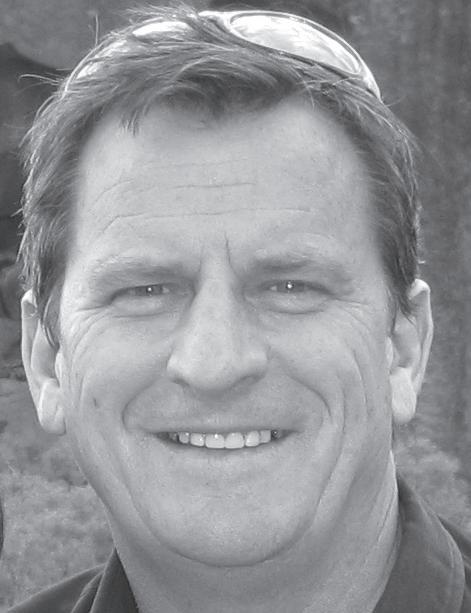
The ‘core business’ of school and youth ministry are also fundamentally different, he said, as in school the students are non-voluntary clients, as opposed to youth ministry.
“There’s a clear difference between working in an occupation where such things as reporting things are mandated in an Act of Parliament, and a non-legislated area where there’s a moral obligation which changes the way the person thinks about the client and the environment,” Dr Long said.
However, in the case of the Catholic Church, he believes the lack of ethical guidelines is due to complacency rather than naivety. However, things are clearly changing, as in 2007 he was called in as a consultant to review the Archdiocese of Canberra-Goulburn’s youth agency, and again next week to address a major leadership conference.
“The sheer fact that CatholicLife have reviewed their youth work shows they’ve got guts and are not complacent,” said Dr Long.
“Then to ask a Protestant academic to take part in this leadership process, the day after the Archbishop (Mark Coleridge) does a talk on Saints Peter and Paul, is hardly an act of complacency, but an act of courage.”
The conference, which also includes renowned US Dominican Sisters Mary Madeline, Mary Rachel and Cecilia Joseph talking on Giftedness and personal growth and Sydney’s Good Shepherd Seminary Rector Fr Anthony Percy talking on A Catholic theology of human sexuality, was Archbishop Coleridge’s idea.
healthcare, they are encouraged to appoint someone they trust and have consulted to make a decision for them in accordance with their preference.
The ACP is not legally binding, while the AHD is binding if it complies with all requirements of the new law. The AHD and EPG must be made in accordance with WA legislation.
A sample of the ACP, which is to be discussed with the doctor and the enduring guardian or responsible person and is designed to guide but not direct future care, will be downloadable from the LJ Goody Bioethics Centre website.
This also follows the Australian Catholic Bishops’ Guidelines.
The ACP, written by the aforementioned parties, and which the patient signs, says: “I wish to be given appropriate care to sustain my life, to cure disease or reduce deterioration in any physical or medical condition that I suffer.
THE Archdiocese of Sydney’s Catholic Adult Education Centre is bringing internationally-renowned Scripture scholar, author, speaker and social commentator Mark Shea to Australia.
The Catholic Adult Education Centre and the Mustard Seed Bookshop are hosting Shea in Lidcombe from 1-9 February. His writings are acclaimed by Fr Benedict Groeschel as “A joy to Catholics and a revelation to Protestants”.
Shea will also promote his latest work, Mary, Mother of the Son, which has been described by apologist Dr Scott Hahn as “The single most helpful book on Sacred Tradition written in our generation”.
In the three-volume Mary, Mother of the Son, Shea explores the Marian dimension of Catholic thought, life, prayer and practice and work and covers every
I want effective, non-burdensome treatment and care.
“I do not want my life to be ended or my death to be hastened by any act or omission that is intended to cause my death. I wish to be offered food and drink (and) to follow the teachings of (whatever) church/religion and request appropriate ministry throughout my illness. I (want) access to palliative care that will address my physical, emotional and spiritual needs while maintaining as much function as possible during the process.”
The guidelines also list treatment options and examples of life-sustaining measures which the patient can decide to use or refuse, including CPR, renal dialysis, tube feeding, mechanical ventilation, blood transfusions, surgical procedures and intravenous antibiotics.
Patients are encouraged to record what they want and do not want to be done to them.
important Marian topic. Shea, an editor for Catholic Exchange, a regular contributor to Inside Catholic and a speaker for Catholic Answers, is also the author of Making Senses Out of Scripture, By What Authority? and This is My Body
He has been published in magazines including First Things, National Catholic Register and New Oxford Review and maintains a popular and award winning blog Catholic and Enjoying It
Shea, who converted to the Catholic faith in 1987, is also cast as Innocent Smith in the American Chesterton Society’s film of GK Chesterton’s Manalive.The major launch of his book was at the Mustard Seed Bookshop on 2 February and his trip culminates in a two-day intensive course on Mary in the Scriptures at the Catholic Adult Education Centre on the 8-9 February.
He will also address the popular Theology on Tap at PJ Gallagher’s Irish pub in Parramatta on 1 February before speaking at the Maronite Guardians youth apologetics program on 3 February.
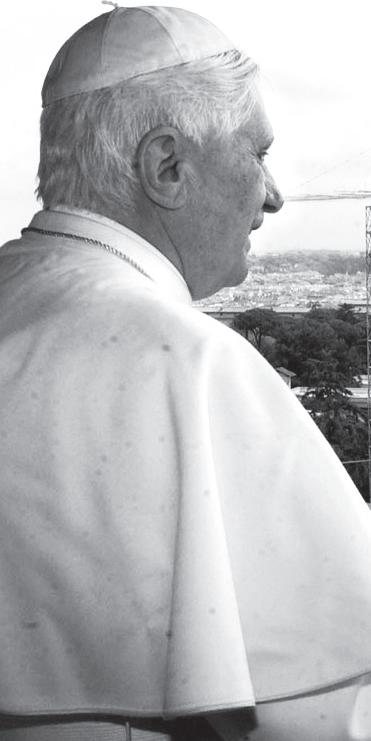

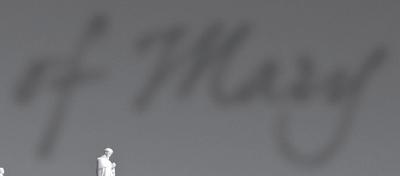

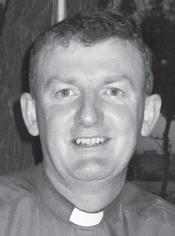
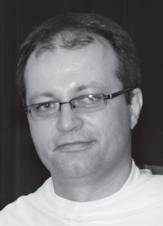
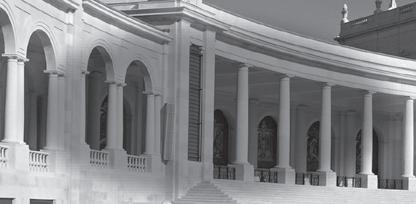
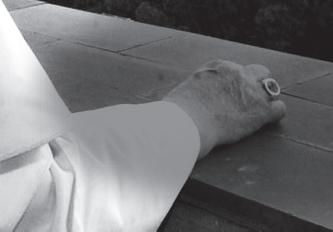
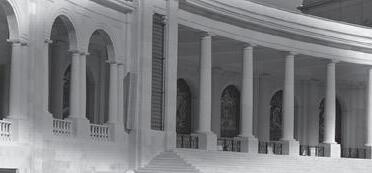



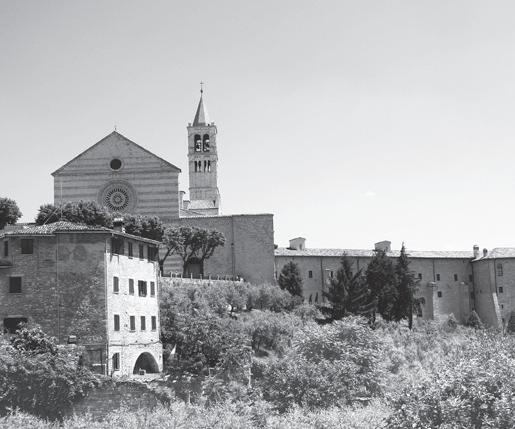
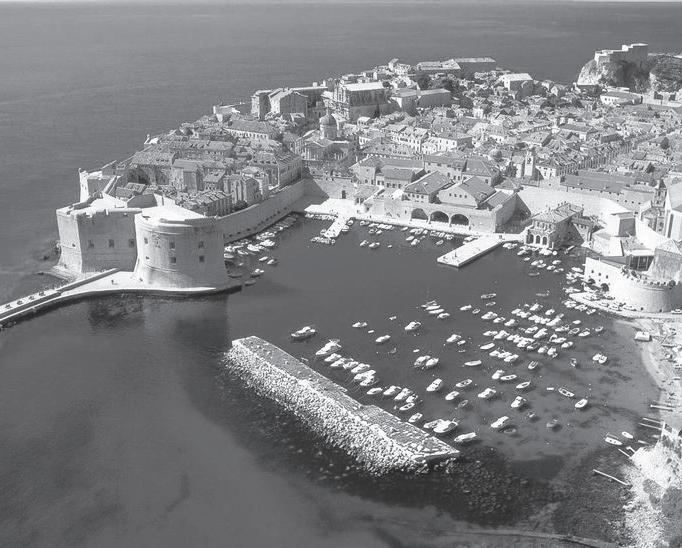
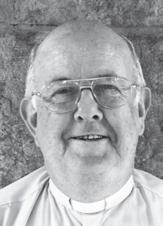
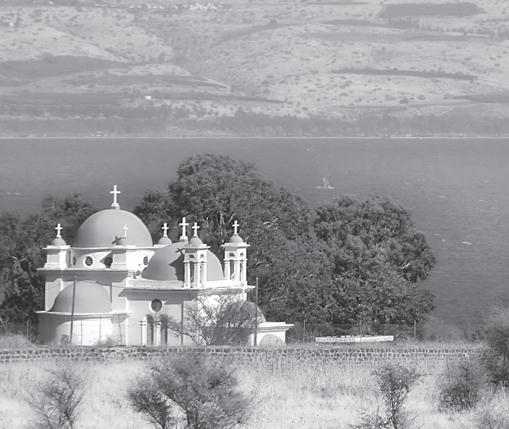

When Australia’s alternative Prime Minister, Tony Abbott, was asked by Women’s Weekly what advice he would give his three daughters about sex he probably had some idea the answer could prove to be controversial. That was possibly, in part, why he gave it. But there is little doubt he answered honestly.
The resultant furore and sarcasm from across the media and political establishment figures such as Deputy Prime Minister Julia Gillard was also hardly surprising. A close analysis of Australian society and culture would deliver the news that is not really remarkable to anyone: in ethics, business, morality, culture, art and politics, Australia has rejected the broadly Christian ethical and intellectual roots it was founded on, which happen to be roughly the same values undoubtedly important in the thinking of figures such as Mr Abbott and a small number of other politicians and thinkers across the political spectrum especially, but not exclusively, in relation to the youth of the nation.
What is really interesting as an exercise in editorialising on such current events is not to deconstruct the sarcasms of Ms Gillard and her numerous echoes in the media but to seek to analyse why the reaction occurred at all.
What is it about Australia that a father, who publicly states what any true father would advise his children in thinking and acting in this most important area of a young person’s life, can be treated in this way? What has made what passes for the intelligentsia of this nation so deeply and viscerally hostile to such loving parental advice? And what has made us heap ridicule upon the idea that promiscuity is not only deeply harmful for society but one of the surest and straightest paths to hurt, distrust, brokenness and long-term unhappiness for every individual concerned, but especially the young who will only come to fully experience the deep pain of regret when it’s too late?
Tel:
Such questions are not irrelevant to Christian families and marriages at all. Recently, The Record editorialised on how Catholic parents really can succeed where recent generations have often failed in one of the key works of their marriages – the enterprise of leading their children to an encounter with God. If parents can help reveal the face of God to their children one has great reason to hope that children will understand as they grow older why values such as those Tony Abbott discussed are not only deeply important but also positive, life giving and faithful to who they are as young men and women. Such a task is one of the central projects of any Christian marriage.
While it may not exactly be news, it was even clearer from the last week’s events and responses, however, that Christian families must contend with open attacks upon how they seek to live their lives from the media and the highest levels of political leadership in this nation. What was also interesting to see was how the mentality that manifested itself in the scorn, ridicule and even outrage directed at Mr Abbott also failed to comprehend the foundational nature of marriage for individuals and for wider society.
The blindness on this point, one cannot help feeling, is telling. One of the reasons so many young have left the Church is because their parents, with all the best intentions in the world, either didn’t or couldn’t accomplish this task. Although its emptiness has only become more apparent with the passing of the years, the onslaught of moral relativism against the faith and life they wanted to transmit to their children was too sudden, too quick and too apparently sophisticated.
Undoubtedly a major selling point was the the rejection of concepts such as virtue among young men and women and the embrace of promiscuity. Parents simply weren’t equipped with the tools they needed to neutralise the contemporary culture of meaninglessness. This is slowly changing, albeit at a glacial rate, as the realisation spreads throughout the Church that marriages and parents need ongoing Professional Development even more than liturgists.
This editorial began by asking how Australia could arrive at a point where a father advising his children not to be promiscuous can be subjected to such widespread ridicule, even outrage. But the ridiculing of Tony Abbott’s comments could not have happened unless Australia had first largely forgotten what marriage really is. His comments indicate that he, at least, knows what it is and why it’s important. This means he has a fairly good idea of why it’s so important to help young people find fulfilment and the truth about life, sex, gender, marriage and parenthood from their parents rather than in a genito-urinary clinic. Ms Gillard’s commentary, on the other hand, was that of the career technocrat, and indicated that she didn’t get it at all.
The only way Australia could have arrived at a point where many consider it politically suicidal for politicians to say what Mr Abbott said is if the nation had consistently engaged in a protracted destruction of marriage over several decades through laws facilitating easy divorce, the killing of our children when pregnancies are unwanted and a host of other measures which have helped build a culture, not of freedom but of living death for our youth.
The Church is the most important part of the solution, but for that to be accomplished Catholics must rediscover the authentic nature of the vocation of marriage, parenthood and everything that goes with these. Then they must start living it.
In other words, the key task facing Catholic marriages and parents today is to embrace their vocation in a courageous way. Only truly courageous Christian families will succeed.
However, Tony Abbott’s remarks may not have backfired as Ms Gillard seems to have gleefully assumed. The controversy has revealed a deep sense of unease throughout the electorate with the spectacle of the media attacking a father’s protective love for his daughters. Perhaps it is Ms Gillard’s words that will prove to backfire instead.
sion he so graphically described. I also note that he wrote a book titled The Jesuits. I wonder if that was before or after they expelled him.
Mrs Veronica Donovan BayswaterThank you for the excellent article “Dying to self and motherhood” you published in the last Vista.
Thank you also for coverage of the Haiti disaster. One charity which was not listed is Aid to the Church in Need. I know that donations to this charity are not tax deductible, but this is because they support Religious and build churches and seminaries, etc (and not just do disaster relief). They do have a special appeal on their website for the Haiti disaster.
Suryan Chandrasegaran Nerrena VIC
May I bring to your attention a date error on Page 5 of the weekend Record
Under the heading ‘Christian Meditation Guru to visit Perth’, the date for Fr Lawrence Freeman OSB’s talks is wrongly given as 14 February. The correct date is 16 February.
May I also express my dislike of the word “Guru” in the headline. In the context of meditation, it conveys an affiliation to Eastern traditions of meditation when the teaching of John Main OSB on meditation shows that the use of a prayer word or mantra was used in the earliest contemplative prayer of the Church.
It was John Cassian who brought this form of prayer into western monasticism as a mentor to St Benedict. We find that Catholics already have a wariness of christian meditation on some vague notion that meditation is solely an Eastern tradition. The thoughtless use of the word “Guru” can feed that misconception.
Gerard Overman Secretary, Christian Meditation Committee (WA)
Inotice that the bookshop is offering for sale a book titled Hostage to the Devil by Fr Malachi Martin, an Irish born former Jesuit Priest (1921-1999).
I recently read a biography of M Scott Peck written by Arthur Jones and titled, The Road He Travelled. In this biography, Jones wrote extensively about Scott Peck’s spirituality, baptism and his belief in the reality of evil. He conducted two exorcisms and became acquainted through his publishers (Simon and Schuster) with Fr Malachi Martin whom Jones described as a headline-grabbing, book-writing, Irish born priest, who had a reputation as a troublemaker, a liar, and cuckolder. The Dominican theologian, Fr Richard Woods, after interviewing him, concluded that Martin’s ‘five cases’ were fabrications of an inventive, but disturbed mind, lacking all psychological, historical and pastoral credibility. Woods found him a clever, charming, engaging Irish rogue who evaded every effort to document the instances of posses-
he Record recently reported that both our seminaries are full, which might lead to an underrating of the vocational problem. If both our seminaries are full it is because neither has a very high capacity.
One glance at the photos of our seminary students 60 years ago will show how much better the vocational situation was then, drawing on a mere fraction of the population that we have now which is at least nominally Catholic.
Today, the average Perth priest is not a young man and has too much work.
Unless we increase the rate of importing priests from overseas, we can expect this problem to worsen over the next few years as more and more priests retire. Of course, it would be wonderful to be self-sufficient in priests but at this stage that can be only a longterm goal. Meanwhile, we can all help with vocations by prayer, and also penance, in which, according to Church tradition, fasting should hold a special place. If an 84 year old woman could fast (Lk 2:37) then so can most of us. Preferably under a spiritual director, which is something each one of us should have or seek irrespective of whether we are capable of fasting. In the tradition of the Church, to be one’s own spiritual director is not a good situation for anybody. I am privileged to know a number of people, many of them young who, rather than just flit from priest to priest, have formally placed themselves under one person for direction, which of course does not exclude their consulting of others.
Fr David WattIn your recent article Men need post-abortion help too you mentioned “… Rachel’s Vineyard retreats for women who have suffered the loss of a child through abortion or miscarriage …”
I am pleased to be able to clarify that Rachel’s Vineyard Catholic Retreat offer a proven experiential, therapeutic programme for men as well as women, with many retreatants have found to be effective. The residential weekend retreats offer hope and healing of the spiritual and emotional wounds associated with post-abortion trauma.
Our volunteer team of mature, compassionate and skilled Catholic professionals and helpers ministers not only to mothers and fathers of the unborn but to the grandmothers and grandfathers, siblings and others for whom abortion has had a negative impact. Two Rachel’s Vineyard Retreats are planned for Perth this year. These will be held on the last weekend in May (28-30) and the last weekend in October (29-31). Thank you for your timely article.
Jenny Shier
Rachel’s Vineyard Catholic Retreats, Perth
The other day, Australia’s Federal Opposition Leader, Tony Abbott, told a women’s magazine that he doesn’t think women should “give away their
virginity too lightly”, ie before marriage.
Criticism followed. Deputy Prime Minister Julia Gillard, said: “These comments will confirm the worst fears of Australian women about Tony Abbott.” The question is basically about whether marriage – traditional marriage – is an indispensable foundation of society. Or is marriage just a matter of fashion – currently out of fashion with the media and trend-setters in today’s affluent societies?
Hundreds of thousands of young Australians suffer suicide attempts, drug addiction, dropping out of school and general misery.
Ask your family GP how, in his or her experience, do children from stable families compare with those from de facto relationships in this regard?
The traditional family gives children security in a world that can be otherwise frightening and destructive of young bodies, minds and souls.
Arnold Jago Mildura VICTony Abbott has had the effrontery to speak out in favour of virginity in this, our sex-saturated and sex-indoctrinated society, and many are outraged at his comments.
His comments supporting virginity are perfectly sound, of course, and are in line with the correct understanding of the gift of sexuality.
Sexuality is God’s gift to marriage and society, and virginity is a gift to the spouse, male or female.
Tony Abbott is right on this issue and I encourage committed Catholics, other Christians, and all right-thinking people, to give him their support.
Mrs Carol V Phillips Southern River WAIt seems that Julia Gillard and others have worked themselves into a lather over Opposition Leader Tony Abbott’s response when asked by a women’s magazine what advice he would give his own three daughters. Mr Abbot was simply responding to questions put to him, and in this case was speaking more as a parent than a politician. He simply stated that he would urge them not to easily give away their virginity, and urge them to adhere to the “rules” on sex before marriage. He said virginity was “the greatest gift” that could be given to someone and that women “shouldn’t give themselves away lightly”.
Charges of sexism are ridiculous and most parents would surely want their children not to be promiscuous.
Latest figures from the Health Department reveal an alarming increase in the number of Australian children and teenagers testing positive for Chlamydia and our teenage pregnancy rates are amongst the highest in the developed world (Australian Research Alliance for Children and Youth).
Mr Abbott has been criticised for not taking the problem seriously by not promoting more sex education and safe sex campaigns.
However, there is increasing evidence from studies that sex education tends to result in teens who are more sexually active, not less.
The fact that in the past 30 years teenagers have been bombarded with sex education courses in schools would seem to bear this out.
The premier sex education
advocate – Planned Parenthood International – has revealed in its own survey that “comprehensive sex education programmes significantly increase the percentage of teens becoming sexually active, while limited sex education, and especially those with no sex education classes, discourage kids from becoming sexually active.”
This has been affirmed just recently in the UK. A new study has found that in schools where pupils have been given free condoms, more sex education, and girls have been invited to have confidential health checks, schoolgirl pregnancies have risen by up to 34 per cent.
In schools where the government’s Teenage Pregnancy Unit (a guide for girls produced by the Family Planning Association) has been active, pregnancy rates have soared.
For example, in one target area, Cornwall, rates rose from 306 schoolgirl pregnancies in 2001 to 359 in 2002 – a 17 per cent increase. Torbay in Devon saw a 22 per cent rise from 92 to 113, Solihull in the Midlands 17 per cent (121 to 142), and York 34 per cent (93 to 125).
Clearly, the problem is not one of lack of information. The problem is the eradication of any framework of values in which to make decisions about sex. This is the real issue which the sex educators and other social engineers refuse to address.
One cannot help wondering what the reaction would have been, had Mr Abbott indicated that he would advise his daughters not to indulge in other unsafe behaviours such as smoking or drink driving ... would there have been such an uproar?
Margaret O’Hagan Applecross WA
Should we be surprised? Tony Abbott recently made it on ABC National News regarding a personal interview with the Woman’s Weekly in which he gave some sage advice to his daughters on how best to think for themselves in a world rapidly losing respect for all humanity, and any sort of moral order at all.
What a breath of commonsense and hope from a truly honorable member in our sea of jellyfish politics (not even transparent ones at that). That is real courage.
Now we have to consider that Tony is in a very precarious position - he is male, white, goodlooking and fit.
However, he is a married committed Catholic and belongs to that “other” party and might pose a threat to our ever smiling PM Rudd, who was photographed so often on TV that I wondered if maybe he had the spiritual gift of bi-location.
This scenario itself would be enough to drive the collective “attack dogs”, both political and media, into a frenzy which includes the despicable cartoons in the Melbourme Age. Of course, whoever said that truth or common human decency should get in the way of sensational claptrap?
Tony will be a mighty affront to the “militant sisterhood” (getting to the stage of old fogies now). They will hang on to twist every word that he utters so that they can pick up their bows and arrows, and let him have it. Hopefully, their two breasts are still intact. Oh dear!
Maureen Federico
Frankston South Vic
The Prime Minister has raised the serious consequences of our future population. It is arguably one of the biggest and most important issues of national identity and destiny.
The prediction is that by 2050 we will have a population of 35 million with too few workers to support the increasing number of elderly no longer able to be productive.
Mr Rudd said the ratio of working age people to those aged 65 and over currently is about 5 to 1, and will fall by 2050 to 2.7 people of working age for each retired.
The reason is that Australians are not producing their own children in sufficient numbers to prevent the alarming projection.
Unless we alter our values and behaviour it will certainly happen. It is important that there be a rational debate, but this will not happen because the media will not allow it and politicians do not want to face a fundamental cause which is that we condone the killing of 100,000 unborn children every year.
That is a reality, but to raise it will cause screams from the feminists, chanting that women have the right to kill their unborn child.
There is no more a philosophical or biological argument that a woman has the right to kill her unborn child than an argument that she has the right to kill her child after it is born. The unborn child is a human being with all the genes at conception that it will ever have. It is an individual person, different from its mother and father and has the right to be protected.
Because of the pressure of politically involved feminists and some libertarians, it is legal to kill unborn children (in one Australian State up to a day before it is born).
This law is a bad law. Its educative power changes our values and is the reason Australia will have the population catastrophe being predicted.
Brian A Peachey WoodlandsIsaw a report on television this week of the Rudd government’s proposal to yet again fiddle the taxation system to cope with the ‘ageing of the population’. Governments love taxing people so may I suggest a new taxation levy to be imposed upon abortion users and providers, because that is the root cause of the problem and surely fits the principle of user pays.
Those who want and use the service of abortion and those engaged in the provision of the service are the ones who supposedly benefit and profit from the ‘service’. Nobody else does. As a matter of fact, the high volume use of the ‘service’ imposes a long term disproportionate cost upon the rest of the community. Because the economic effects of the ‘service’ take decades to evolve in terms of a reduced number of wealth producers coinciding with an increased number of the ageing and costly cohort responsible for the decline of ‘producers’ surely it is only fair that they initially contribute a greater proportion toward defraying the resultant ongoing long term costs.
Another not unrelated factor to take into consideration is the eco-
nomic and often potential social cost of introducing and integrating migrants to make up for the loss of workers eliminated by abortion ‘services’.
I assume decades of use of the service at the rate of nearly 100,000 ‘procedures’ per year would cause a not insignificant shortage of wealth producers in total. It is also not inconceivable that within that cohort there were some highly talented individuals whose contribution to the nation would have been significantly greater than the average.
I imagine those availing themselves of and profiting from a service largely funded from the public purse would see the common sense in paying a little extra as compensation for the consequences of the disproportionate brain drain.
In this brave new world of user pays and fiscal responsibility, I would imagine this proposal would merit not just consideration but, on the priciples of fairness and equity, implementation.
Barry MorganAlbany
It is certainly not new to see people protesting up trees. When asked whether he would ever come down from the tree he was trying to save from destruction, the protestor, Richard Penecuik said not until he received a promise from the City of Gosnells that his tree would stay. In New South Wales, coming down from his pole and his extreme fasting, the protestor Peter Spencer said that he thought it was still all worthwhile to “press the point” about land degradation and support for farmers.
There is much to admire in people who take to extremes in peaceful ways to protest an injustice or to challenge society. No less did the ‘stylite’ or pillar saints such as Simeon (feast day 5 January) and his disciple Daniel (feast day 11 December) among others of the early Church excite the admiration of many, causing others to imitate them and certainly to live more faith filled and generous lives. Their form of ascetism was and still is a challenge to the self-centred and Godless lives of many in society. At the Christmas Vigil Mass, Pope Benedict said in his homily that many have become ‘tone deaf’ to God.
Here, by contrast, are men and women who dedicated their lives to listening to God not to become exclusive but to better serve the people who flocked to them to hear them preach, give counsel, cure the sick and even to just watch them pray. The people in their turn encouraged and supplied the needs of these ancient ‘protestors.’
It is well to reflect on the examples of the modern day tree protestors and though some would see them as a public nuisance we can see their desire here to achieve a good, perhaps secular but no less a sign that our society needs to listen sometimes to the message of peaceful extremists just as they did long ago in ancient society.
Daniel O’Connor DoubleviewHow fully I concur with the writer of ‘Do I belong anymore?’ (The Record 27 January). In addition to the saddening lack of reverence in the
Mass, there are two other gaping holes in the practice of Catholicism in our day.
First: the embarrassingly poor standard of the homilies, with essentially no mention whatsoever of the moral issues impacting on our younger generation from every side. Is it any wonder that there are no adolescents in Catholic churches today, other than the few that are still captive to their parents’ religious wishes?
Second: the complete failure to admit that there is a problem in the practice of Confession. In the country city where I reside, the Sacrament of Penance is offered on two Saturday mornings per calendar month. No doubt this reflects the low attendance rates. Yet who could conclude from the advertised Confession times that the priesthood had any real conviction about the seriousness of sin?
Name and address supplied
It is unfortunate that, in this
Year of the Priest, so many questionable superlatives have been used to describe this particular calling, serving at the same time to denigrate the dignity and calling of the ordinary baptised Catholic.
The latest of these extravagant appellations appeared in a recent edition of The Record (20 January advertorial): “...our priests who are Jesus’ representatives here on earth.”
Baptism makes us members of Christ’s Body and hence bestows on each of us the dignity and responsibility of being Jesus’ representative.
Holy Orders does nothing to augment or change this baptismal dignity.
It is certainly true that in the ministering of the sacraments, especially the Eucharist, for the priest “In persona Christi means a specific sacramental identification with the eternal high Priest” (John Paul ll), it must be mentioned in the same context that the assembled community is present as the Body of Christ.
To apply the term ‘concelebration’ to the community’s active participation would not be inappropriate. The community has this active role precisely because it is the body through which the Risen Christ acts.
One wonders if, in the future, we might have the “year of the Laity.”
Neil K Smith Bull CreekIwas heartened to read in The Tablet of 12 December 2009
that a petition has been initiated in the US to earnestly implore the Bishops of the English-speaking world to revisit the so called new translation of the Roman Missal before it is foisted onto the Church of the English-speaking world as a fait accompli
When I compare the new translation with the one in my old pre-Vatican II daily missal, there are striking similarities. The preVatican II version is almost a literal translation from the Latin, but the language is archaic and stilted, not the sort of language that people use today. The new translation too uses stilted and rarely used expressions. The pews in recent years have been emptying at an alarming rate. Surely foisting this archaic, and sometimes quaint new translation, will do nothing to stem
the tide, perhaps only increase it! When are the members of the hierarchy of our Church going to take the faithful laity seriously and into their confidence and act as one?
There is enormous expertise “in the pews” eager to join in the mission of the Church which is currently being ignored.
Part of the so called justification for the new translation, to quote Fr Paul Turner (ICEL facilitator) in The Record of 2 September 2009. is as follows: “the vocabulary will be broader and sentence structure a little more complex, but will not be beyond the reach of the average worshipper.” How patronising is this? Words such as “consubstantial”, “oblation”, ” suffused”, ”begotten” and “unvanquished” have not been used in common parlance for a considerable time. The response to “The Lord be with you” is to be “and with your spirit” in the new translation, but the current response of “and also with you” is much more meaningful and natural to English speakers.
The average worshipper needs a translation that is meaningful to him/her and is not in stilted English, so that he/she is able to be fully engaged in the ritual.
The argument that the new translation is truer to the Latin is not really relevant. While Latin has been the liturgical language of the Latin Rite for many hundreds of years, it was not the language of the very early Church, and therefore is surely not a justification for going back to a more literal translation of the Latin.
Another concern for the person in the pews is the method by which this new translation has been put together. Given the fact that many experts were consulted, it would seem reasonable that a wide sample of the parish clergy and the laity should be included in this process, especially people for whom English is the “mother tongue”.
Members of the laity of many nations include theologians and liturgists, who have the expertise to be included in the process of revision of the language of the rituals of the Roman Missal and should have been widely consulted. Why was not at least a wide sample of the “average worshipper”, to quote Fr Turner again, with the above qualifications, consulted?
The widespread acceptance of this translation by the Bishops’ Conferences in our Church is again an example of high handedness, providing for the “average worshipper” a translation that has little in common with the everyday parlance of spoken English.
Are we a “two tiered Church” with all the wisdom residing with the ordained hierarchy or are we all Church, as is my (and many others’) understanding of the Second Vatican Council? If we are all Church then why were the members of the ordinary parish clergy, and the laity, almost completely ignored in the process of this revision?
Surely, if our Church is to retain its relevance, it needs a liturgical language that is meaningful, easily understandable and relevant to the average English speaker. We need to encourage the members in the pews to enter wholeheartedly into a conscious and active participation of the celebration of Eucharist and feel at one with the language being used, not confronted by the awkwardness of words they are required to use as responses and prayer in the new translation. For the above reasons, I contend that the new translation of the Roman Missal fails on many counts.
Patrick Durack Wembley WA
Haiti
● Cancellation of $US1 billion debt
● Expansion of trade
● Strengthen Haiti role of government, institutions with international assistance targeting infrastructure, health care, education, psycho-social support, law enforcement, judiciary, economy, agriculture
● Extension of temporary protected status granted to Haitians living in the United States
● Sustained reconstruction and development assistance

US Bishops call for a longterm strategy in Haiti to reduce poverty
WASHINGTON (CNS) - The United States needs “a long-term coherent strategy for recovery, development and poverty reduction in Haiti,” said the chairman of the US Bishops’ Committee on International Justice and Peace in a 26 January letter to officials in the Obama administration.
Bishop Howard Hubbard of Albany, New York, said the strategy for rebuilding Haiti after the devastation of the 12 January earthquake should combine efforts of US government agencies with groups that have expertise and experience with Haiti.
He sent the letter to Secretary of State Hillary Clinton, Treasury Secretary Timothy Geithner, Homeland Security Secretary Janet Napolitano and Ambassador Ron Kirk, US trade representative.
Key elements in rebuilding Haiti, he said, include: debt relief and an expansion of trade; an extension of temporary protected status that has been granted to Haitians living in the United States; and sustained reconstruction and development assistance.
“How our nation responds in the near and long term is a test of who we are as a neighbour,” the Bishop said.
He thanked President Barack Obama for his quick response to the disaster by send-
ing relief and the assistance of government agencies and also for listening to an appeal made by the Bishops and many others that the US grant Haitians in the US temporary protected status.
But Bishop Hubbard said it was “highly unlikely” that the 18-month duration of the special status “will afford sufficient time for Haiti to be rebuilt in ways that make it safe for Haitians to return to their country and find employment.”
He also noted that the Church has responded to the crisis through the work of Catholic Relief Services, its overseas relief and development agency, and special collections by parishes in most US dioceses the weekend after the earthquake and subsequent collections in other dioceses.
But the Bishop noted that much more needs to be done.
He quoted a Haitian Bishop who said: “At the moment it’s all about the emergency, but one day the questions will be about reconstruction.”
“When the international community and Haitians move beyond the most urgent aspects of the emergency, we urge a substantial and sustained commitment by the US government to provide long-term funding for reconstruction and poverty reduction,” Bishop Hubbard wrote.
He said the Bishops approved the US government’s decision “to provide full debt relief and offer grants instead of loans for Haiti’s recovery” and stressed that US lead-
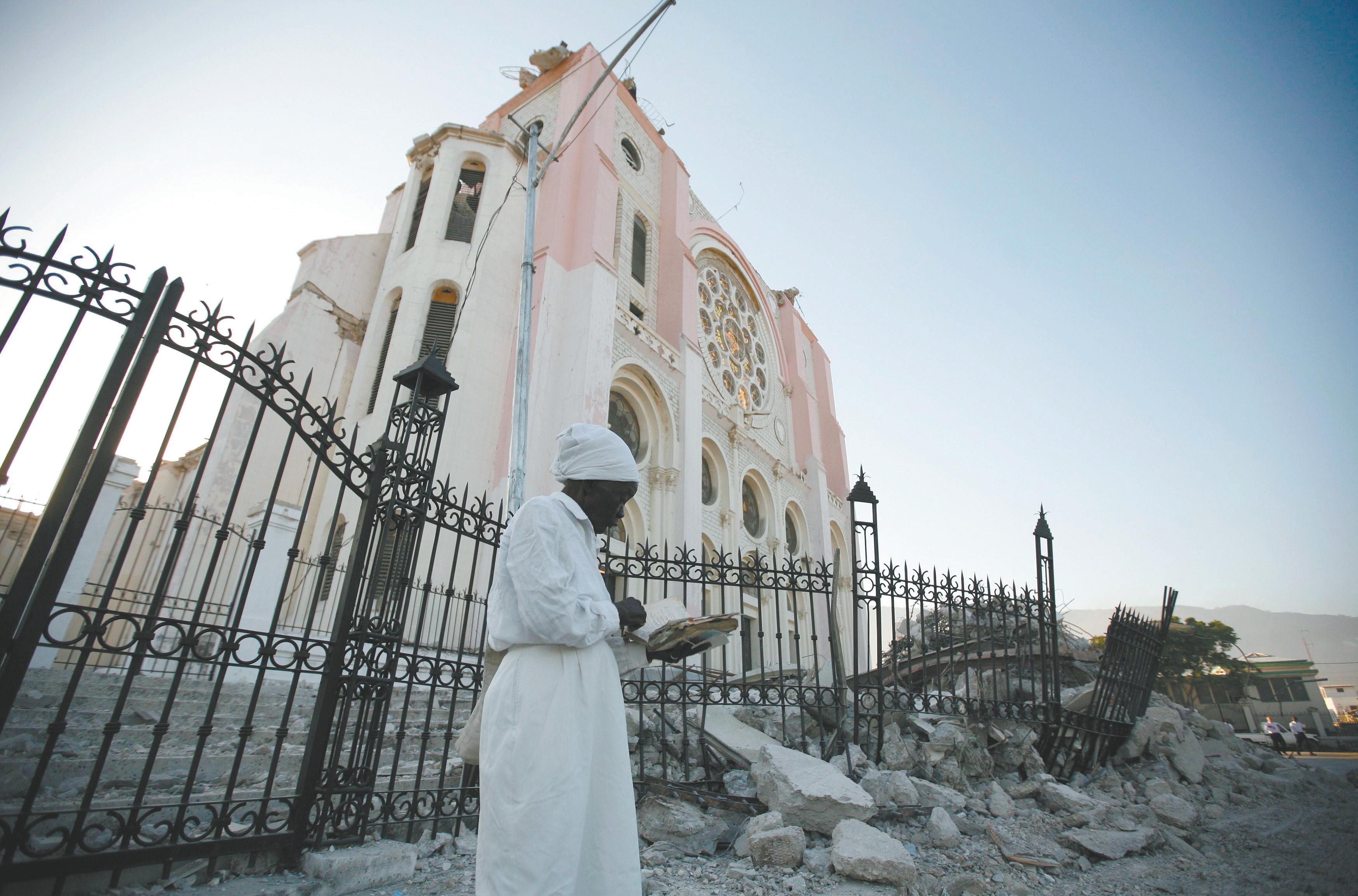
As the leading provider of aid to Haiti, the US has a special responsibility to the Caribbean country. Caritas, the Catholic Church’s global aid arm, and the US Bishops want the United States to stick around and plan for the long haul.
BY BARBARA J FRASER Catholic News ServiceLIMA, Peru - Nearly two weeks after the Haitian earthquake, Catholic aid agencies must gear up to provide longer-term food, housing and health care assistance to people who lost their homes and possessions.
ers should “encourage other governments as well as multilateral institutions to do the same.”
Bishop Hubbard said the cancellation of Haiti’s debt, which amounts to some US$1 billion, “would give Haiti financial relief and enable it to redirect its limited resources to reconstruction and investments in development” and urged US leaders to “take the lead to bring about the debt relief so urgently needed by the Haitian people.”
The Bishop stressed that relief efforts also should support and strengthen the role of the Haitian government and institutions that will require “dependable flows of international assistance that target all sectors of Haiti’s needs, including infrastructure, health care, education, psycho-social support, law enforcement, judiciary, and economic and agricultural development.”
He said it would also be important to expand trade preferences in Haiti, noting that Haitian factories are still limited in what they can produce and export under the US preference programme.
Allowing the country to expand the number of goods that can be produced and exported, he said, would produce jobs and encourage exporters to rebuild more quickly.
“While implementing a broader preferential treatment for Haitian goods may take some time, it will be an important aspect of the longer-term and sustainable development of Haiti,” he added.
But even the massive amount of aid pouring into the country is dwarfed by the overwhelming needs of people who lost their homes, families, jobs and possessions in the 12 January quake, said Hector Hanashiro, Caritas emergency coordinator for Latin America and the Caribbean.
“There is still a great lack of assistance,” Hanashiro told Catholic News Service in an email interview. “There are not enough donations for the three million people who have been affected and more than 200,000 injured survivors of the earthquake.”
Caritas’ position on the need for long-term reconstruction assistance was backed by the US Bishops (see story to left).
On 24 January, a government spokesman said 150,000 bodies had been buried, and some officials said the death toll could be as high as 200,000.
About two million people were affected in Port-au-Prince and one million more in other cities, including Jacmel, Gressier, Carrefour and Petit-Goave, Hanashiro said.
Some 500,000 people who lost their homes are living in makeshift camps around the Haitian capital, he said.
“There are specific high-risk groups that need assistance, including pregnant women, people with chronic illnesses, children who have been orphaned, and people who were injured and who, because of trauma and complications, have had to have limbs amputated,” Hanashiro said.
In a country where basic services were scant and about 75 per cent of the population lived in poverty even before the quake, the most pressing needs are food, health care, water, sanitation services and housing.
“The destruction in Port-au-Prince has caused the displacement of people to other provinces and to the Dominican Republic,” Hanashiro said.
“People who have lost their homes and jobs are migrating, so there are thousands of displaced families in other provinces because of the lack of assistance.”
Many families are still searching for their loved ones, a quest that is even more difficult because some of the injured were evacuated to hospitals in the Dominican Republic, he said.
In addition to the Dominican Republic, many other injured were evacuated to emergency US health care facilities.
Looking beyond the immediate needs, Hanashiro added, “because of the breakdown of the Haitian economy, it is crucial to create temporary jobs immediately and sustainable employment in the long term.”
Caritas, the Catholic Church’s aid network that includes Catholic Relief Services in the United States, has designed a response plan that includes immediate food, shelter, health care, water and sanitation, and psychological and social assistance for about 40,000 families, or 200,000 people, Hanashiro said.
The Vatican has asked CRS, which already had a large presence in Haiti, to take the lead in the Caritas effort.
“The strategy we are using is to coordinate with base communities and parishes, as well as the diocesan Caritas offices in Port-au-Prince, Jacmel and other dioceses, to identify the priority zones and groups, in order to channel the urgent assistance immediately. So far, we have been able to distribute aid to 26,500 families,” he said.
Caritas also provided rescue equipment and medical teams.
“The Caritas office is providing lodging and support for about 60 specialists from Mexico, South Africa and Jamaica, who have brought equipment, medicines and materials for rescue work and specialised care in field hospitals,” Hanashiro said.
International assistance has been hampered by lack of coordination among aid agencies, but Hanashiro said the greatest problem was simply the magnitude of the disaster.
“While many countries and organisations are offering aid and cooperation, it is not enough,” he said. “Food assistance does not meet the demand in the neighbourhoods and camps. There is high demand for medical care, but a limited number of specialists and medicines, and minimal facilities for operations.
“There is a need for more water and for removal of rubble and waste, and roofing and shelter are in short supply.”
Many of the ongoing CRS programs in Haiti focus on the country's most vulnerable groups, including orphans and people living with HIV.
1954
315
$28 million
First year of CRS work in Haiti
CRS staff in Haiti on a regular basis
Invested into Haiti’s programs in the most recent fiscal year
$30-$40 million
$100 million
34
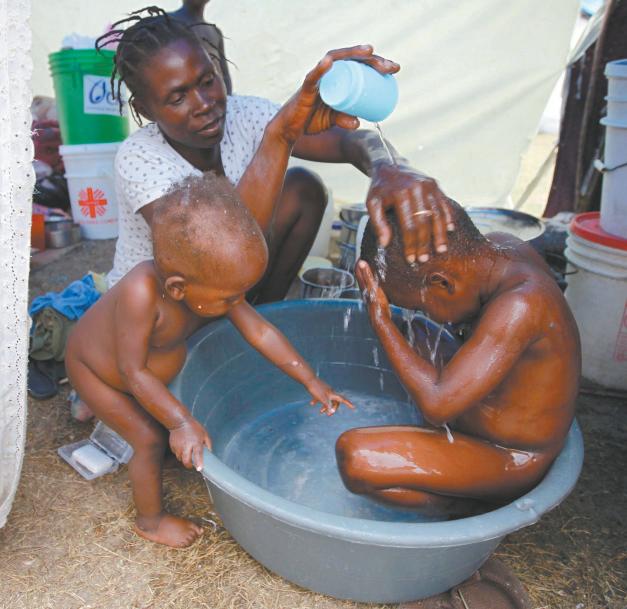
● Replacing and repairing the infrastructure of the Church in Haiti will take years, according to Archbishop Jose Gomez of San Antonio, head of the US Bishops’ Subcommittee for the Church in Latin America.
Citing significant losses in both personnel and buildings, Archbishop Gomez said, “The beleaguered Church in Haiti will remain a primary focus of our work in the months and years to come” within the committee.
Special collections for Haitian earthquake relief were taken up in most US dioceses the two weekends after the 12 January quake that claimed an estimated 200,000 lives.
In a 22 January letter to his fellow US Bishops, Archbishop Gomez listed some of the damage done to the Church in the impoverished Caribbean nation, including total destruction of the cathedrals in Port-au-Prince and Jacmel as well as the destruction of “at least five” other major churches, many smaller church buildings, two major seminaries, many convents and schools, and a Catholic radio station. Moreover, the Archbishop said, “the reported tragic loss of so many priests, sisters, seminarians and laity is irreplaceable.”
The Bishops’ annual Collection for the Church in Latin America was taken up the weekend of 23-24 January in many dioceses but other dioceses will hold the collection over the next few weekends in most US dioceses.
“It goes without saying that after the immediate humanitarian response begins to take hold, equipping the local Church in Haiti will be a significant and long-term project,” said Archbishop Gomez.
Getting the radio station back on the air will be a first priority, he added.
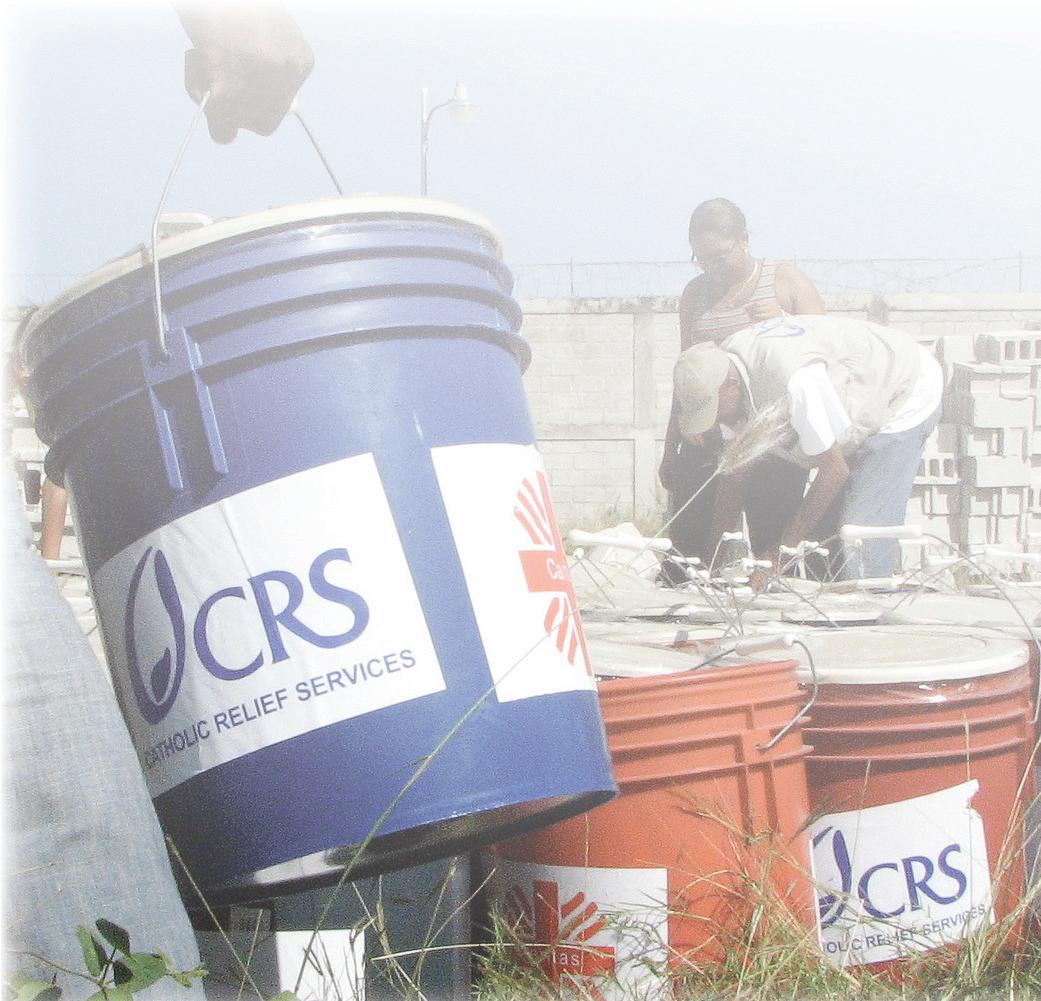
To be spent by Dec. 31, 2010
Estimated to be spent by CRS for earthquake disaster
Additional temporary staff sent to Haiti
There are 12 additional workers in the Domican Republic.
Source: Catholic Relief Services ©2010 CNS
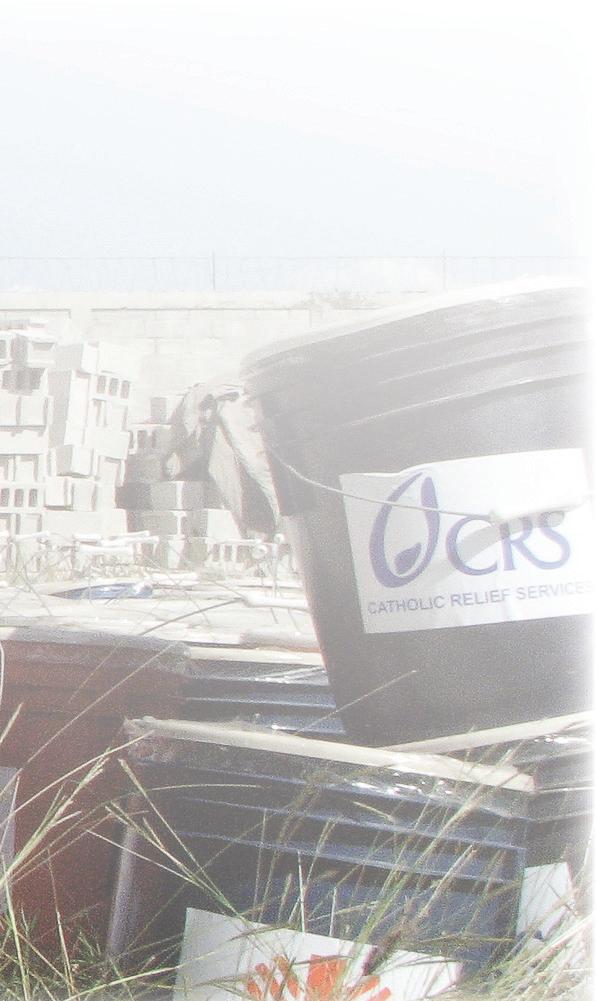
Above: Many of the ongoing programs run by CRS in Haiti focus on the country’s most vulnerable groups, including orphans and people living with HIV. Below: The people of Haiti, a nation formed by slaves of a French colony, have endured political disorder and corruption, economic hardship and devastating natural disasters since the country’s founding.
Christopher Columbus arrives at the island inhabited by the Arawakan people Dec. 5. He names it La Isla Española (The Spanish Island), later anglicized as Hispaniola.
Spain cedes western third of Hispaniola to France. African slaves are brought to work on sugar-cane and coffee plantations.
Slave population revolts and gains control of northern part of the French colony.
Local forces defeat an army sent by Napoleon Bonaparte, establish independence from France and rename the area Haiti.
Haiti occupies Santo Domingo, the eastern, Spanish-speaking part of Hispaniola.
Santo Domingo breaks away from Haiti, becomes the Dominican Republic.
Haiti experiences 22 changes in government and numerous periods of intense political and economic disorder.
U.S. military intervenes.
Following a 19-year occupation, U.S. military forces are withdrawn and Haiti regains sovereign rule.
Francois Duvalier becomes president and rules until his death in 1971. His son, Jean Claude, preserves the dictatorial regime.
A popular uprising leads to Jean Claude’s exile in February 1986. The country is ruled by a series of provisional governments.
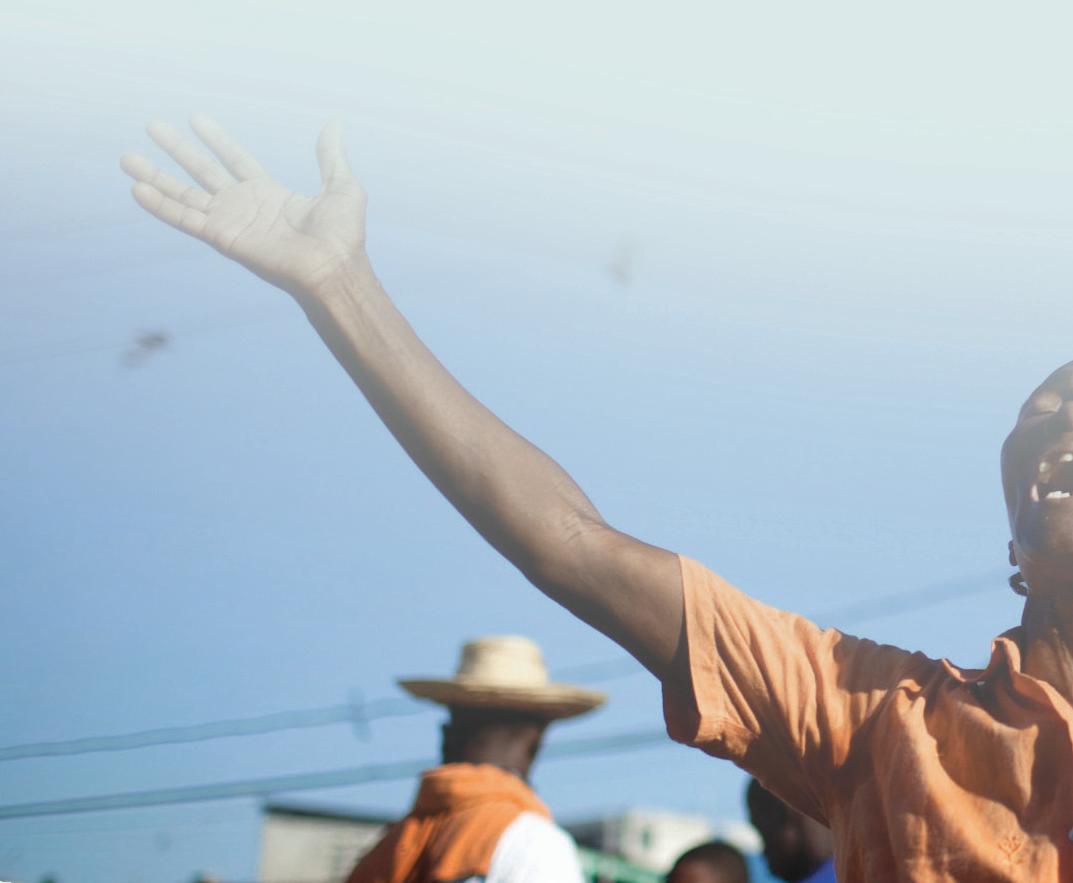
Jean-Bertrand Aristide, a Salesian Catholic priest, captures 67 percent of the vote in a presidential election. Aristide is overthrown in September 1991 in a violent military cou
A 21,000-member international force touches down in Haiti Sept. 19 to oversee the end of military rule and the restoration of the constitutional government. Aristide and other elected officials in exile return to power.
Rene Preval, a prominent Aristide ally, takes 88 percent of the vote, and is sworn in for a five-year-term, in the first transition between two democratically elected presidents.
Aristide is elected again, however the opposition charges electoral fraud.
On Feb. 28 a rebel group led by a former police chief advances toward the capital. The following day, Aristide submits his resignation as president and flies to Africa. The chief justice of Haiti’s Supreme Court, Boniface Alexandre, is named interim president.
Preval is elected president.
Violence erupts over high cost of food and fuel. A series of hurricanes and storms ravage the country.
A catastrophic earthquake strikes Jan. 12, leaving tens of thousands dead and an estimated 1 million people homeless.
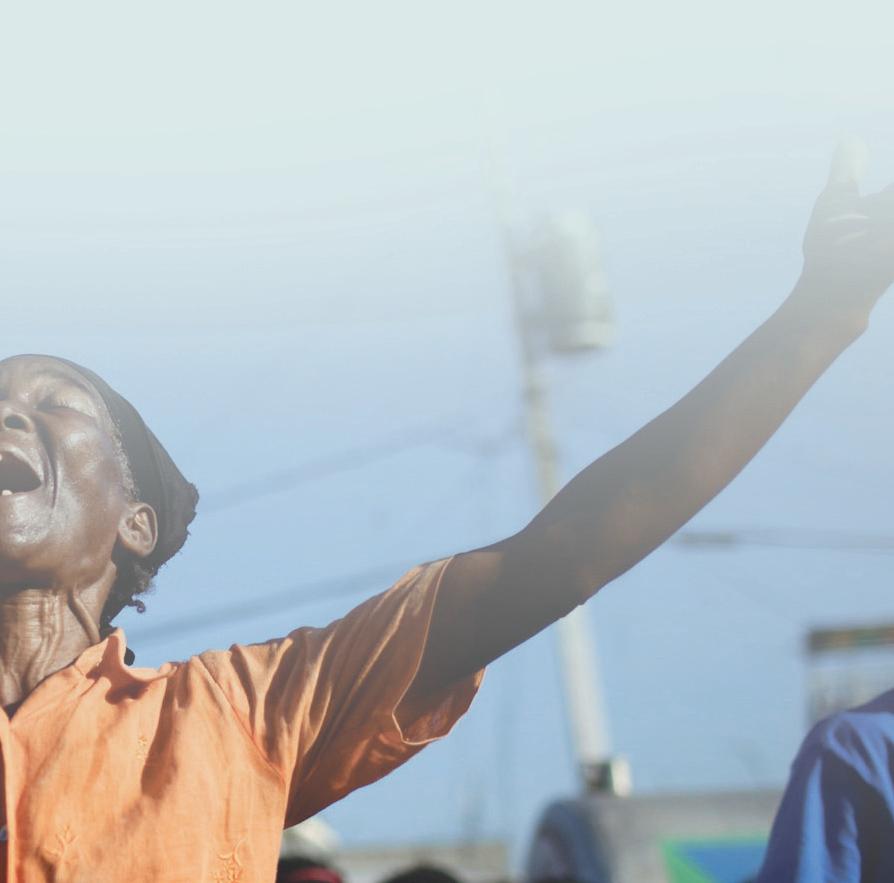
Last week Pope Benedict XVI made his first official visit to Rome’s main synagogue and met with the leaders of Italy’s Jewish community. His speech was interrupted by applause and cheers several times and the smiles and embraces from Catholic and Jew alike were enough to convert any cynic to a faith in human dignity and understanding. This was a great, grand success. Unless, of course, you read the mainstream press and were told that many Jewish observers were offended by the Pope’s comments on how much was done by the Church to help Jewish people during the Holocaust and by his support for the beatification of Pius XII, who is now named as venerable by the Church.
There were, naturally, some disagreements and concerns but to highlight these would be like explaining soccer by analysing the colour of grass.
The overall result, the context, the epicentre of the visit was triumph, love, understanding and mutual regard. Put simply, Jew and Catholic are closer now than at any other time in history, in spite of what some would have us believe.
What certain journalists wanted to see were Jewish leaders becoming angry over the alleged actions of Pope Pius XII and the current Pope’s regard for the man.
Indeed, articles highlighted the words of some Roman Jewish leaders on "the silence" of Pius XII while downplaying the warm welcome the pontiff received and the balanced assessment of other Jewish leaders.
What these journalists didn’t understand is that many people are now seeing through the myth of papal indifference during the Nazi hell and are coming to appreciate just how much was actually done by the Roman Catholic Church at all and every level and often at colossal cost and sacrifice.
It’s an issue that I have studied for a long time out of familial and emotional necessity. I am a Catholic whose father was Jewish. Not only Jewish but from a Polish family. The role of Pope Pius and the Church during the Second World War is to me at the epicentre of identity, loyalty and truth. There are Jewish leaders who claim that Pope Pius said little and did less as Europe’s Jews were rounded up and slaughtered.
There are non-Jewish activists – often liberal Catholics fighting modern battles vicariously through the tragedy of the Holocaust – who want to discredit papal history and thus the contemporary papacy by arguing that the Pope abandoned his moral authority and that his successors have to delegate power because of this. Was Pius silent, was the Church complicit in its indifference, is Catholic orthodoxy opposed to social justice? The latter, by the way, is the genuine issue at play here. The new orthodoxy of the Church is terrifying to the older generation of liberals and they will use history as a battering ram if they can.
The truth is somewhat different. Before he became Pope Pius, Cardinal Pacelli drafted the papal encyclical condemning Nazi racism and had it read from every pulpit. The Vatican used its assets to ransom Jews from the Nazis, ran an elaborate escape route and hid Jewish families in Castel Gondolfo. All this is confirmed by Jewish experts such as the B’rith’s Joseph Lichten. The World Jewish Congress donated a great deal of money to the Vatican in gratitude, and in 1945, Rabbi Herzog of Jerusalem thanked Pope Pius, “for his lifesaving efforts on behalf of the Jews during the occupation of Italy.” When the Pope died in 1958, Golda Meir, then Israeli Foreign Minister, delivered a eulogy at the United Nations praising the man for his work on behalf of her people.
For 20 years it was considered a self-evident truth that the Church was a member of the victim class during the Second World War and Pope Pius was mentioned with Churchill and Roosevelt as part of a triumvirate of good. It was as late as the 1960s that the cultural architecture began to be restructured around this issue and it’s deeply significant that the attacks on the Pope were largely initiated by the German playwright Rolf Hochhuth - who claimed in his play The Deputy that the Vatican had ignored the plight of the Jews. What is seldom mentioned is that Hochhuth was a renowned anti-Catholic who would later champion Holocaust-denier David Irving.
While it is true is that the Pope did not issue an outright attack on the Nazis, this was because the leaders of the Catholic Church in Holland had make a public statement condemning Nazi anti-Semitism and protesting the deporta-
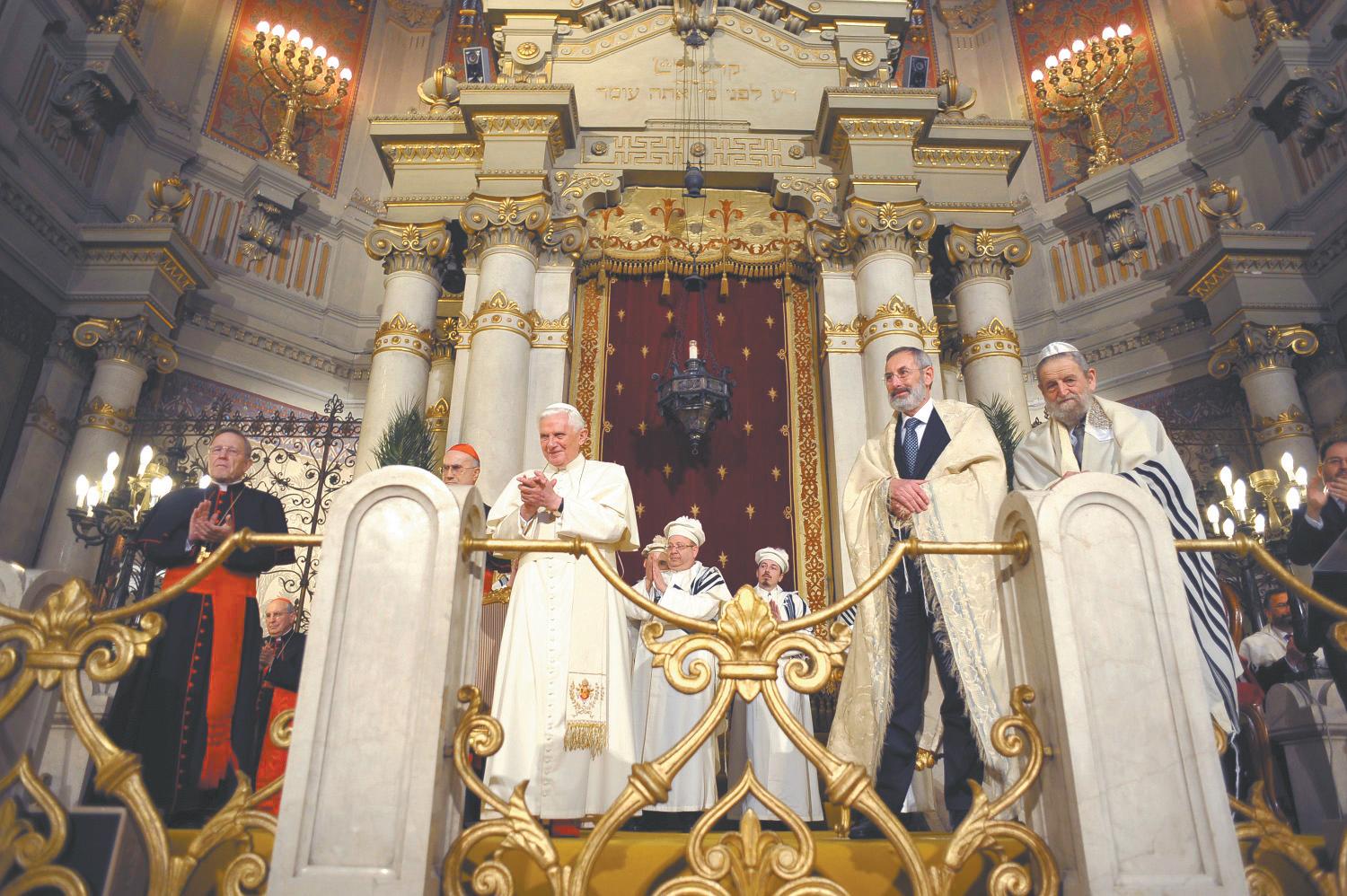
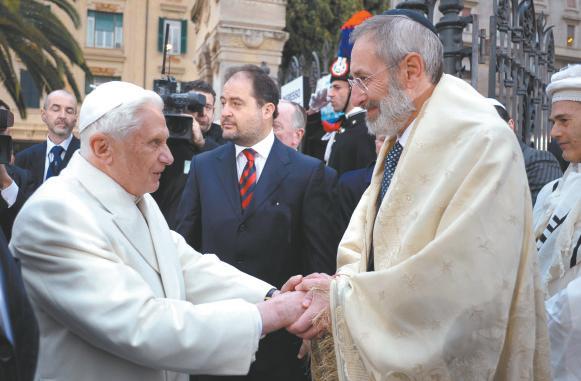
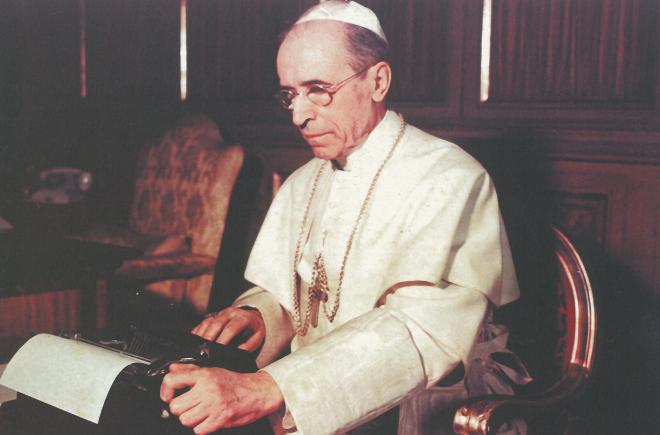
tion of the Jewish people and, in response, the German occupiers had arrested and murdered every Dutch Jewish convert to Catholicism they could find. The group included Edith Stein, who was dragged from her convent to the slaughterhouse of Auschwitz to be gassed in August 1942. She would later be declared a saint by the Church.
Hundreds of thousands of Catholic religious and lay people risked their lives and sometimes gave them to help the Jewish victims of the Nazi pagans. To a very large extent their sacrifices have gone uncelebrated, even ignored.
Shamefully, much of the criticism of the Church comes from within and from critics who use the issue to vicariously attack orthodoxy and Popes John Paul and Benedict.
This was precisely the case with John Cornwell’s risible book Hitler’s Pope. In a scholarly response Rabbi David Dalin’s The Myth of Hitler’s Pope stated that people are trying to, "exploit the tragedy of the Jewish people during the Holocaust to foster their own political agenda of forcing changes on the Catholic Church today.”
But the last word should go to another Jewish man. In 1945 the Chief Rabbi of Rome, Israel Zolli, publicly embraced Roman Catholicism. This extraordinary conversion was partly due to Zolli’s admiration for the Pope’s sheltering and saving of Italian Jews. The battle for Pope Pius’s reputation will continue and there will still be disagreements between
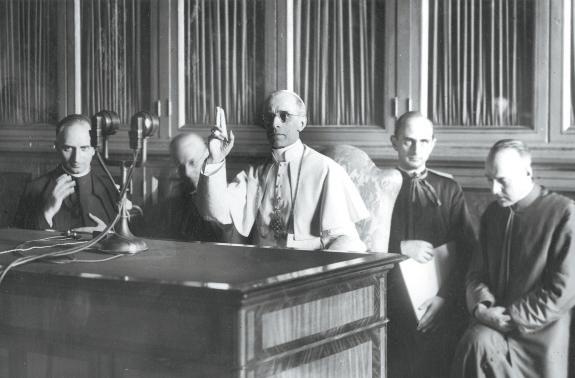
Jewish and Catholic people of goodwill. But the overwhelming message is one of hope and progress, in spite of what the enemies of all genuine religious and a group of angry, disappointed modernist Catholics would prefer to be the case.
Rather than lose faith in God, devastated Haitians place future in His hands
Haitians in tent camp give thanks, place future in God’s hands
PORT-AU-PRINCE, Haiti
(CNS) - With words of praise to God in a melodic song that carried over the din of thousands of
people, Dolce Rochelle let it be known to anyone who cared that no matter the challenge, she was doing just fine. One of an estimated 50,000 people living in makeshift shelters of sheets, blankets and plastic tarps on what was once a golf course at the Petionville Club, Rochelle passes her days singing
and selling goods for a friend out of her tent.
“I like to praise God,” she said, a smile gracing her face.
Rochelle, her husband and daughter lost everything - their home in the Delmas neighbourhood, their few possessions, their way of life - on 12 January during a magnitude 7 earthquake.
“I’ve got hope because in what happened, my family and I didn’t die,” she said.
In a world where the future remains uncertain, Rochelle and many others camped out at the Petionville Club expressed a great deal of hope that God will help them survive.
The US Bishops’ Catholic
Relief Services has worked with the United Nations and the US military to turn the informal gathering of people into a formal camp. A two-week supply of food was delivered recently, and 40,000 shelter kits were scheduled to be delivered the week of 1 February, said Lane Harthill, CRS spokesman in Port-au-Prince.

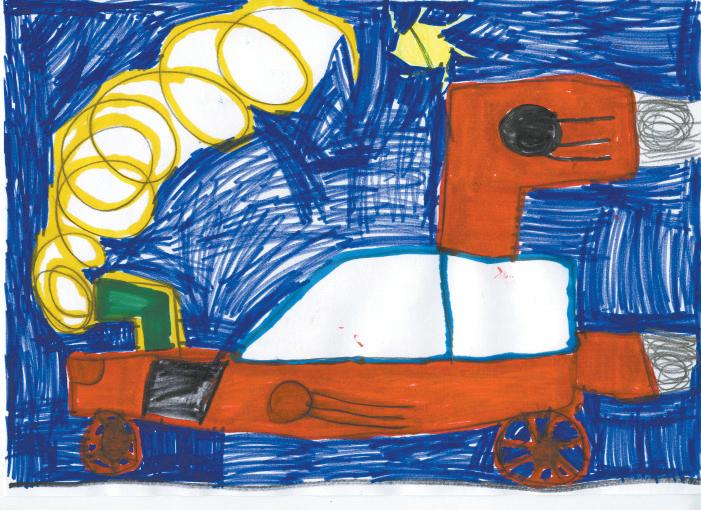
SAINT ROMUALD
Founder and Abbot (906-1027)
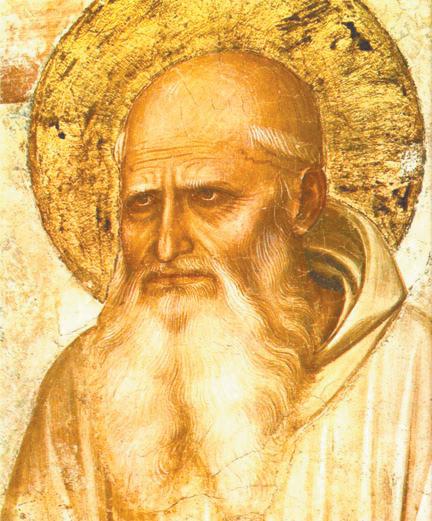
In the 10th century Sergius, a nobleman of Ravenna, quarrelled with a relative over an estate and, in a duel to which his son Romuald was witness, slew him. The young man of 20 years was horrified at his father’s crime, and entered a Benedictine monastery at Classe to do a 40 days’ penance for him. This penance led to his entry into religion as a Benedictine monk.
After seven years at Classe, Romuald went to live as a hermit near Venice, under the guidance of a holy man who had him recite the Psalter from memory every day. The two religious were joined by Peter Urseolus, Duke of Venice, who desired to do penance also, and together they led a most austere life in the midst of assaults from the evil spirits.
For five years the fervent founder was tormented by furious attacks by the demon. He repulsed him, saying, “O enemy! Driven out of heaven, you come to the desert? Depart, ugly serpent, already you have what is due you,” and the shamed adversary would leave him.
Among his first disciples were Ss Adalbert and Boniface, apostles of Russia, and Ss John and Benedict of Poland, martyrs for the faith. He was an intimate friend of the Emperor Saint Henry, and was reverenced and consulted by many great men of his time. He once passed seven years in solitude and total silence. He died, as he had foretold 20 years in advance, alone in his monastery of Val Castro, on 19 June 1027, in an advanced and abundantly fruitful old age. We honour him on 7 February.

BIBLE ACCENT:
Luke, who wrote one of the four Gospels, is thought to have been a travelling companion of Paul’s, even when Paul was left alone by some of his other fellow missionaries.
In his letter to the Colossians, Paul refers to Luke as the “beloved physician.” Because of the similarity of writing style, most scholars believe that Luke also was the author of the Acts of the Apostles, especially because of the knowledge of the ministry of Paul that is evident in that book.
Luke opens his Gospel with an introduction where he says he wrote his narrative based on reports of eyewitnesses and by consulting many historical records. Where the Gospel recounts the life of Jesus, the Book of Acts records important events of the beginning of the Church. .
Q&A
1 What prophet foretold the ministry of John the Baptist?
2 What did the voice from heaven say to Jesus?
FIFTEEN years had passed since the beginning of the reign of Tiberius Caesar. Pontius Pilate was governor of Judea, Herod was tetrarch of Galilee, and Annas and Caiaphas were the high priests. And the word of God came to John, the son of Zechariah, while he was in the desert.
John travelled across all of the Jordan calling for everyone to repent and to be baptised. By so doing John was fulfilling the words of Isaiah that had been foretold many years before, when he wrote, “A voice of one crying out in the desert: ‘Prepare the way of the Lord, make straight his paths’.”
John was not always polite when he proclaimed his message. “You brood of vipers!” he said. “Who warned you to flee from the coming wrath? Produce good fruits as evidence of your repentance. Even now the axe lies at the root of the trees. Therefore every tree that does not produce good fruit will be cut down and thrown into the fire.”
When the people heard John’s words, they were afraid, so they asked him, “What then should we do?”
John answered, “Whoever has two cloaks should share with the person who has none. And whoever has food should do likewise.”
When some tax collectors came to be baptised by John, they also asked, “Teacher, what should we do?”
And John said to them, “Stop collecting more than what is prescribed.”
To the soldiers, John said, “Do not practise extortion, do not falsely accuse anyone, and be satisfied with your wages.”
Because of the things John said and did, rumours started to spread that he was the Messiah. When John learned of this he said, “I am baptising you with water, but one mightier than I is coming. I am not worthy to loosen the thongs of his sandals. He will baptise you with the Holy Spirit and fire.”
After this, John did not always preach a message of repentance. He also preached about the good news that the Messiah was coming soon.
And one day, when John was baptising people, Jesus came to be baptised as well. When this happened, heaven opened up, the Holy Spirit in the form of a dove descended on Jesus and a voice from the sky proclaimed, “You are my beloved Son; with you I am well pleased.”
VATICAN CITY (CNS) - The Congregation for Divine Worship and the Sacraments is pulling together the final version of the English translation of the complete Roman Missal, the book of prayers used at Mass.
The Vox Clara Committee, an international group of Bishops established to advise the congregation about the translation of the Roman Missal into English, met in Rome from 26-29 January.
A statement released at the end of the meeting said members “reviewed various reports on the steps being taken for editing, coordination of manuscripts and reviews for internal consistency of the English-language translation” of the Roman Missal.
Marist Fr Anthony Ward, an official of the congregation for worship, said that because Bishops’ conferences approved the Roman Missal in sections over a period of years, a final review and minor edits were needed to ensure consistency. For instance, he said, the same Latin prayer may be used in two different Masses and may have been translated slightly differently during the Bishops’ approval process.
The Vox Clara statement said committee members reviewed the last two sections of the Roman Missal translation to be approved by Bishops’ conferences in Englishspeaking countries: The proper of saints, a collection of specific prayers related to each saint in the universal liturgical calendar; and the common of saints, general prayers for celebrating saints listed in the “Roman Martyrology,” but not in the universal calendar.
Spanish Cardinal Antonio Canizares Llovera, prefect of the congregation, met with the committee and “expressed his hope that the coming confirmation of the Roman Missal would prove to be of great pastoral advantage to the Church in the Englishspeaking world,” the Vox Clara statement said.
Most English-speaking Bishops’ conferences are preparing materials to introduce and explain the new translation with the hope people will begin using it in parishes at the beginning of Advent 2011.
Fr Ward said the congregation would finish its work long before that, although he could not give a precise date for when the Vatican will approve the entire Roman Missal in English.
Individual Bishops’ conferences would then make arrangements for printing, binding and distributing the missal and setting a date for its introduction.
“Expressing their enthusiasm for the extraordinary pastoral opportunity provided by the publication of a translation characterised by high literary quality, theological precision and pastoral utility, the members emphasised the importance of providing pastors and people with the greatest possible support in the effective pastoral reception of this new translation,” the Vox Clara statement said.
ROME (Zenit.org) - Noting the large number of people in “irregular marriage situations,” Benedict XVI has cautioned the members of the Church’s highest marriage tribunal to consider marriages valid until proven the contrary.
In his annual address to the Tribunal of the Roman Rota on 29 January, the Pope told the court representatives who deal primarily with appeals in nullity cases that truth “cannot be contrary to charity”.
There must be no yielding to a “false charity,” the Pontiff urged, since this would not protect the true good of the spouses.
“Some believe that pastoral charity might justify any step toward declaring null the marital bond, to meet persons who are in an irregular marital situation,” he acknowledged. However, this makes truth tend to be “seen from an instrumental point of view, which adapts it now and then to the different needs that present themselves.”
“The problem is posed when the very essence of marriage is more or less obscured,” he added, explaining that “the existential, personalist and relational consideration of conjugal union can never be done in defiance of indissolubility, an essential property” of Christian marriage.
Otherwise, the pontiff observed, “one runs the grave risk of remaining without an objective point of reference for pronouncements on annulment, transforming every conjugal difficulty into a symptom of non-realisation of a union whose essential nucleus of justice - the indissoluble bond - is negated in fact.”
In this connection, the Holy Father exhorted the magistrates, who handle cases of annulment, to the “virtue of fortitude,” which “becomes more relevant when injustice seems to be the easiest way to follow, in as much as it implies granting the desires and expectations of the parties, or also [conforming] to the conditioning of the social environment.”
In particular, he exhorted the members of the tribunal “not only that they focus all their attention on respect for the truth of the proofs,” but also that they
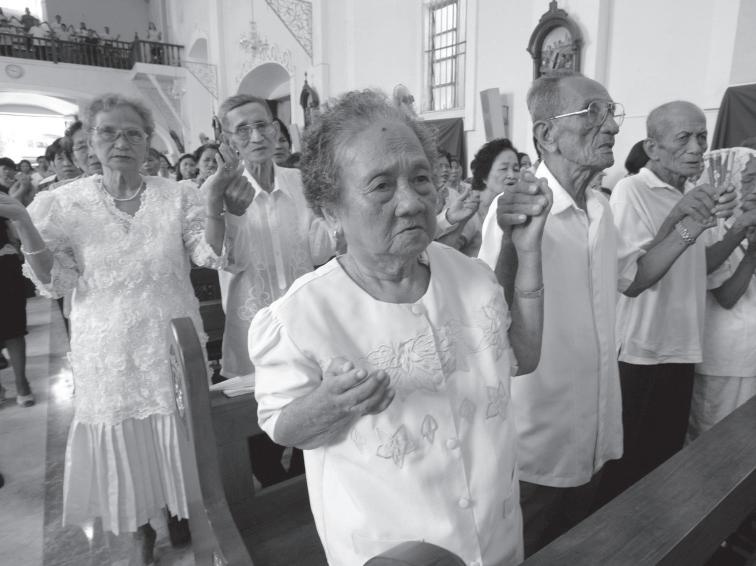
“avoid with care taking on, as juridical advisers, the backing of causes that, according to their conscience, are not objectively sustainable.”
The pontiff explained to the magistrates and officials of the tribunal, that the “essential nucleus” of their work is the “administration of justice.” And the value of justice, he said, needs to be rediscovered, “also within the Church.”
“Canon law, at times, is underestimated,” the Pope contended, “as if it were a mere technical instrument at the service of any subjective interest, though not founded on truth.”
But “this law should always be considered in its essential relation to justice, with the awareness that in the Church juridical activity has as its end the salvation of souls.”
This justice based on truth does not go against charity, he explained, but rather: “Charity without justice is not charity, but only a falsification, because charity itself requires that objectivity typical of justice, which must not be confused with inhuman coldness.
“Whoever loves others with charity is above all just to them. Not only is justice not foreign to charity, not only is it not an alternative or parallel way to charity: Justice is ‘inseparable from charity,’ intrinsic to it.
“Without truth, charity ends up in sentimentalism. Love becomes an empty shell, to be filled arbitrarily. It is the fatal risk of love
in a culture without truth. It falls prey to the emotions and contingent opinions of the individuals, an abused and distorted word, to the point of signifying the contrary.”
On the other hand, Benedict XVI reflected, “the look and measure of charity will help not to forget that one is always before persons marked by problems and sufferings.”
He argued that “it is important to work actively every time that one perceives a hope of success, to encourage the spouses to eventually confirm the marriage and re-establish conjugal coexistence.”
“It is necessary to avoid the pseudo-pastoral requirements that situate questions on a merely horizontal plane, in which what matters is to satisfy the subjective claims to lead at all cost to the declaration of annulment, in order to be able to surmount, among other things, the obstacles to the reception of the sacraments of penance and the Eucharist,” the Pontiff continued.
On the contrary, “the lofty good of readmission to Eucharistic communion after sacramental Reconciliation, calls instead to consider the genuine good of the persons, inseparable from the truth of their canonical situation.
“It would be a fictitious good, and a serious lack of justice and love, to smooth the way to the reception of the sacraments, with the danger of making them live in objective contrast to the truth of their own personal condition.”
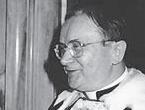
VATICAN CITY (Zenit. org) - Annulments are not short-cuts to solve failed marriages, the Dean of the Church’s central appellate court for nullity cases said.
When Pope Benedict XVI met with the Tribunal of the Roman Rota on 29 January, Bishop Antoni Stankiewicz said that the Catholic Church must face the challenge of a “widespread tendency that relativises truth,” especially “in declarations of marriage annulment.”
In his intervention, published in L’Osservatore Romano, the Polish prelate said that among the cases the tribunal receives, those that affect the declaration of annulment of sacramental marriage “absorb to a large extent” its work.
Citing Pope Benedict’s June 2009 encyclical Caritas in Veritate (“Charity in truth”), Bishop Stankiewicz warned against “the widespread tendency that relativises the truth and spreads a relativist vision of the human person and his nature.”
This relativism also creeps into annulment cases, the Bishop cautioned, “which in this way are deviated, becoming an easy way for the solution of failed marriages, thus emptying the meaning of the declaration of annulment, as well as the very meaning of the indissoluble character” of the sacrament.
Bishop Stankiewicz stressed that the declarations of annulment of marriage made by ecclesiastical tribunals in the dioceses “cannot be opposed to the principle of indissolubility”.
Leaked dialogue text looks at East-West differences over role of the Pope as successor of Peter
VATICAN CITY (CNS) - A draft document being studied by an international CatholicOrthodox commission has highlighted historical common ground on the thorny issue of the role of the Pope. The text noted that in the first 1,000 years of Christianity, although believers in the East and West had different understandings of the role of the Bishop of Rome, that diversity did not
destroy the unity of the Church. “Distinct divergences of understanding and interpretation did not prevent East and West from remaining in communion,” it said.
Their unity was based on shared theological principles that were viewed as more important, such as continuity in the faith handed on from the apostles, the interdependence of primacy and conciliarity, and an understanding of authority as a service of love, it said.
The Pontifical Council for Promoting Christian Unity said on 26 January that it was disappointed the text was published on an Italian blog site on 25 January.
It said members of the international Catholic-Orthodox dialogue commission had agreed the
text would not be published until it had been fully and completely examined by the commission.
“As yet, there is no agreed document and, hence, the text published has no authority or official status,” the pontifical council said. It said the draft was basically “a list of themes to be studied and examined in greater depth, and has been only minimally discussed by the said commission.”
Dated 3 October 2008, the draft is part of the Catholic-Orthodox commission’s ongoing discussion about the role of the Pope and the understanding of primacy in the Church - one of the key differences dividing the Catholic and Orthodox churches.
At their meeting in Cyprus in October, the commission began
a discussion about the role of the Bishop of Rome in the undivided Christian community of the first millennium.
The draft document said that in the West, the emphasis was placed on the link between the Bishop of Rome and St Peter, who was martyred in Rome, and on St Peter’s special place among all the apostles.
“In the East, this evolution in the interpretation of the ministry of the Bishop of Rome did not occur,” the draft said.
“Such an interpretation was never explicitly rejected in the East in the first millennium, but the East tended rather to understand each Bishop as the successor of all the apostles, including Peter.”
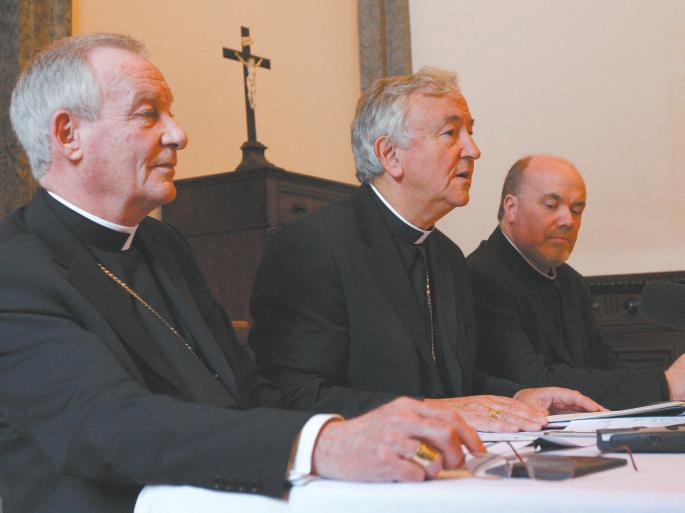
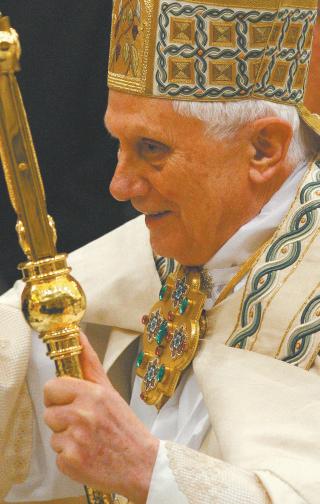
Catholic teaching and the truths of the Gospel have a right to be heard in public debate, especially in a country where so many people claim to be Christian, Pope Benedict XVI told the Bishops of England and Wales.
However, the Church must recognise dissent within its own ranks and not accept it as being part of a balanced discussion, he said on 1 February in an address to Bishops who were making their ad limina visits.
The meeting with the Bishops, who were at the Vatican to report on the status of their dioceses, took place as Pope Benedict prepares to visit Great Britain in September.
Referring to the Equality Bill under debate in Britain’s Parliament, the Pope said some legislation designed to guarantee equal opportunity for all people actually would impose “unjust limitations on the freedom of religious communities to act in accordance with their beliefs.”
Catholic Bishops have said the bill means churches could be sued by anyone who was turned away as a candidate for the priesthood on grounds of gender or sexual lifestyle.
A recent vote in Britain’s House of Lords, however, supported an amendment, voting 216-178, to protect the existing rights of churches to insist that clergy and high-profile lay employees live in a manner consistent with Christian moral teaching.
The House of Lords rejected government proposals that the Catholic Bishops said could have forced the Church to accept women, sexually active gays and transsexuals into the priesthood.
Two attempts by the government to reverse the vote later were defeated during the 25 January debate.
The government has not yet said if it intends to challenge the amendment when the bill returns to the House of Commons later
this year. The successful amendment deleted a paragraph that said an exemption would apply solely to those people who spent most of their working time in leading worship and teaching doctrine. Pope Benedict urged the Bishops to continue defending Church teaching in the public realm, adding that they have a right “to participate in national debate through respectful dialogue with other elements in society.”
By being vocal participants in public discussion, the Bishops are maintaining Britain’s longstanding tradition of freedom of expression and are giving voice to the similar beliefs held by many people who are unable to express them, he said.
“When so many of the population claim to be Christian, how could anyone dispute the Gospel’s right to be heard?” the Pope asked.
“Fidelity to the Gospel in no way restricts the freedom of others - on the contrary, it serves their freedom by offering them the truth,” he said.
To bring a coherent, convincing message to the people, the Church must ensure the Catholic community speaks with one voice, he added.
In a culture that encourages the expression of a wide variety of opinions, the Pope said, “it is important to recognise dissent for what it is, and not to mistake it for a mature contribution to a balanced and wide-ranging debate.”
The Bishops must prepare the laity to convey Church teaching accurately and comprehensively, he said. Pope Benedict also asked the Bishops “to be generous in implementing the provisions” of his recent apostolic constitution, which established a special structure for Anglicans who want to be in full communion with the Roman Catholic Church while preserving aspects of their Anglican spiritual and liturgical heritage.
He asked the Bishops to assist such groups in their desire for full communion, saying that if they were warmly and openly welcomed, they “would be a blessing for the entire Church”.
The Pope also said his upcoming visit to Great Britain would be an opportunity to witness firsthand the “many signs of living faith and devotion” among Catholics and to help them
strengthen and confirm their faith.
Archbishop Vincent Nichols of Westminster, president of the Catholic Bishops’ Conference of England and Wales, told the Pope that his visit would offer encouragement not only to Catholics, “but to all our fellow citizens.”
“We are confident that your presence and teaching, with its consistent and reasoned appeal to all people, will be warmly received,” he said.
The Archbishop also said the beatification of Cardinal John Henry Newman “is, we trust, the eagerly anticipated climax of your proposed visit.”
The Vatican has not officially announced the dates or cities the Pope will visit in Great Britain in September, but the Pope is expected to preside over the beatification of the influential 19th century theologian and former Anglican.
In his address to the British Bishops, the Pope said Cardinal Newman was an outstanding example of someone who was faithful to truth even at high personal cost.
“Great writers and communicators of his stature and integrity are needed in the Church today, and it is my hope that devotion to him will inspire many to follow in his footsteps,” the Pope said.
In an interview with the Vatican newspaper L’Osservatore Romano on 31 January, Archbishop Nichols said the Pope’s “brief, but effective” trip to Britain would concentrate on the role of faith in a secular, democratic society.
He said the British government and Queen Elizabeth II, the supreme governor of the Anglican Church of England, were “extremely in favour of this visit” and that Church leaders were working closely with government ministers and officials to flesh out the details of the papal itinerary.
Concerning the apostolic constitution, the Archbishop told the Vatican newspaper that it was still not clear how many Anglican communities around the world were going to take advantage of the new provision. But, he said some members of the Church of England planned to make their response to the Vatican provision public on 22 February, the feast of the Chair of St Peter, which symbolises the authority and unique ministry of the Pope.
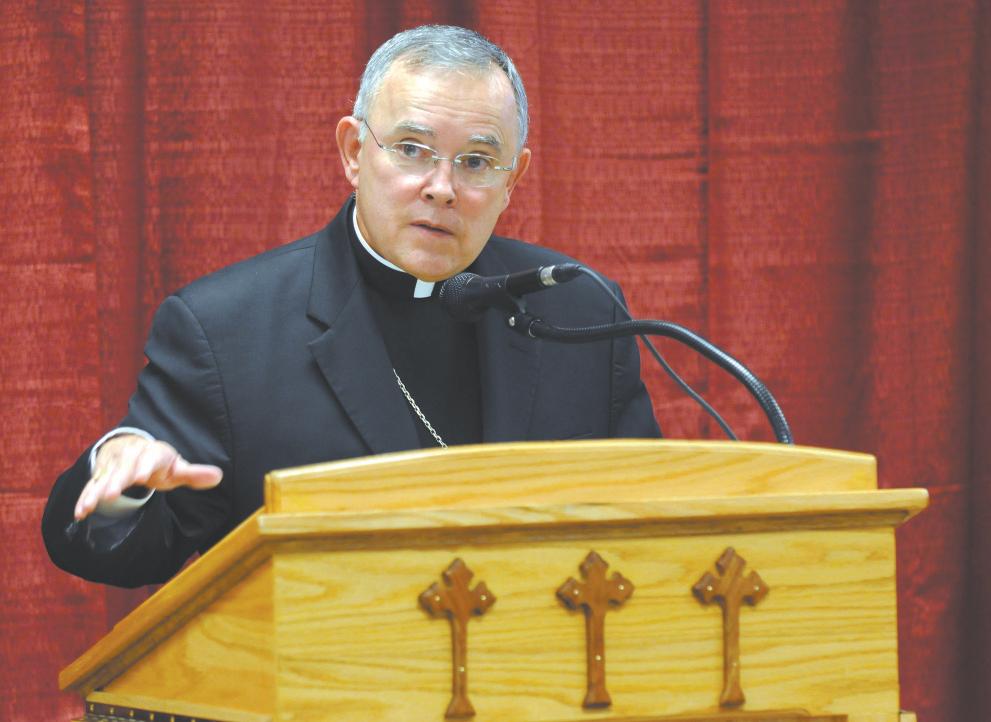
ROME, Italy (CNA) – Evil exists; Satan is real and Catholics need to wake up and commit themselves to enter into combat with the Enemy or continue to live in the confusion that haunts society, Archbishop Charles Chaput of Denver told the Emmanuel Community of Rome.
At Emmanuel’s conference on Priests and Laity in the Mission, he named internet porn, divorce and the legislative redefinition of marriage as Satan working effectively in the world, adding that, “I thought that after 20 years more of my life things would change and things would be a lot better but I don’t think they are”.
“I think we live in disappointing times, in times of confusion, and in some ways that is the result of our failure to understand that we have an enemy in the Devil, but also we have enemies in the world around us,” he said. He referred to an American Protestant pastor’s talk he once heard titled We preach as though we don’t have enemies, and reflected that this sentiment “is true in the United States”.
“I think it’s important to understand that we are in a battle, we really do live in a time of spiritual combat and I think we’ve lost that sense of the Church,” Archbishop Chaput stated.
“In America, we don’t want to be different from our Protestant brothers and sisters, or the secular forces around us; and I think that’s the great danger of our time: we don’t love God enough and we don’t enter into combat with the Enemy enough and we need to recommit ourselves to doing that,” the Archbishop said.
He said internet pornography is pervasive, subtle, attractive and “totally destructive of people’s lives
and there’s very little talk about fighting it”, and is a form of Satan working in the world.
“If you talk about fighting pornography in the media you’re somehow seen as anti-American, anti-freedom of speech ... things that are so obviously destructive to society,” he said.
He also named divorce and the changing definition of marriage as places where Satan is holding sway.
“All of the statistical studies show us that a stable relationship between a man and a wife for the sake of children is what produces good, healthy human beings and you can’t say that today without being branded as somehow on the opposite side of freedom and truth,” he explained.
“So those kinds of basic human values - the value of chastity and the value of family life - are popularly seen as ‘old fashioned’ because of the lies, because of the deceptions of the Evil One.
“Even Catholics are afraid of standing up for the truth because we’re afraid of being branded ‘oldfashioned.’”
He said that while there had been much good done fighting this battle, “we’re not winning many of those cultural battles in terms of the formal direction of society”.
“But,” he added, “every time an individual is converted the battle has been won in a huge kind of way, because we’re not saved as a group. We’re saved as individuals and what pleases the enemy of God, Satan, is that individuals are not being faithful to their identity as children of God.
“So I think every time there’s a conversion, every time one of us turns from our sins there is a victory in the battle,” he said.
“There are lots of victories, so I don’t think we measure our success in terms of swaying whole segments of society, but it’s convincing individuals to give themselves faithfully to the call of God in their lives.”
Satan is real, yet we’re preaching as if we have no enemies in brief...
In its new report Stand and Deliver, the International Planned Parenthood Federation (IPPF) is demanding that governments, religious institutions and society at large provide “comprehensive sexuality education” for children as young as ten years old. An IPPF report claims: “These rights are enshrined in various internationally agreed human rights conventions and treaties, but –unfortunately – they are still not universally respected.”
 Lillian Wallace Fitzsimons
Lillian Wallace Fitzsimons
Iwas born during the First World War in 1917. My father was in England or France at the time. My mother was a Protestant. She knew every bit of the Bible and would tell us about Jesus. She was wonderful and set me on the right track.
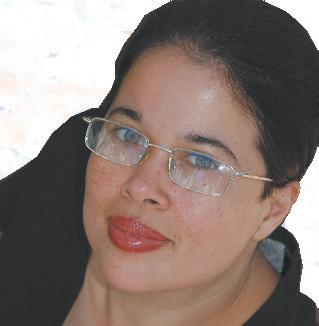
My mother was a saint. I would say she is sitting at the right hand of the Father already.
with Debbie WarrierI wake up at 5am everyday and say my prayers. I pray for my children, grandchildren and great-grandchildren. I love prayer. It keeps the spirit alive. Going to Mass is my greatest love. Even when I don’t feel well I still try to attend. Recently I felt ill and had to ask a locum doctor to visit me at home in the evening. I was referred for a blood test and my son took me to hospital the next day. I couldn’t eat or drink beforehand. I still managed to make it to the 9am Mass at All Saints Church, in Greenwood where I am a parishioner.
I prefer to use my own words when I pray. It is more meaningful to me to speak to the Lord that way. I thank the Lord; ask Him for little favours for my family and to keep me safe during the day. If I can walk down to Church I say, “Thanks, Lord.” You have to be in touch with Him all the time.
My brother is a priest. All my siblings don’t go to Mass except for him. All my children don’t go either. I go to Mass during the week as often as I can. It is very important for me mentally, physically and spiritually. The most meaningful time for me is when the priest lifts up the host. When he raises the chalice, I put all my worries into it.
I feel relieved after that. I am leaving everything in His hands.
Mass during the 1920s and 1930s was beautiful. I remember the bells, incense and wonderful singing. It was really special. The Benediction was a special time for my family too. On Easter and all other important occasions there were beautiful processions. Everyone walked to Church. There was holiness in the atmosphere.
Times, though, were very hard. In the early 30s there was the Depression. My mother had nine children. Direct giving would be collected by a parishioner and she gave six pence per week. Six pence was a lot of money. That was half a shilling. For a shilling (equivalent to 10 cents in today’s Australian currency) you could get three big loaves of bread and three pounds of sausages. Yet my mother still gave and was never depressed or angry about it. Today I find people want more material possessions like big houses and the values are different.
I have loved every moment of my life.
It’s been a hard journey but I cope with the help of the Lord. My late husband had a very bad heart and of course those days there was nothing that could be done about it.
Whenever things got tense my friend and I would say, “Holy Mary, lend your aid.” That would make us laugh. You had to make the best of things. When I come to think of it, my faith comes first because that is what I depend on. If you have a story to tell please contact Debbie via dwarrier75@gmail.com

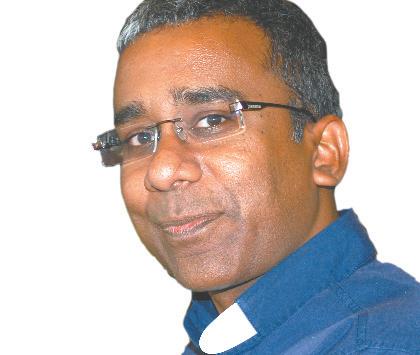 By Fr Sean Fernandez
By Fr Sean Fernandez
The trial of Galileo is usually put forward as an exemplar illustrating the hostility of the Church to the sciences. On one side there is the noble, clear-sighted scientist, and on the other side you have the reactionary, dogmatic Church. I beg to disagree with this picture. There has not been a long history of conflict between the sciences and the Church. The Galileo case is more the exception than the rule.
At the outset I should say what did not happen to Galileo: he was not tortured or executed. The punishment the Holy Office of the Inquisition imposed on him was that of house arrest in the Villa Medici - a Roman palazzo belonging to the family of his patron and employer. Shortly afterward he was allowed to repair to the residence of a friend, the Archbishop of Sienna, before eventually being confined to his own home.
I am not making light of the punishment. House arrest was not inconsequential and the injury to his reputation did pain Galileo. The greatest grief for him may have been the Inquisition’s requiring him to abjure his own theories and not disseminate them further.
The issues surrounding Galileo’s hypotheses and trial are complex and I cannot go into great detail here. If you wish to read up on these events, I would recommend a book by William Shea and Mariano Artigas, Galileo in Rome
Did the sun and planets revolve around the earth - as Ptolemy and Aristotle taught and the Scriptures presumed - or did the earth revolve around the sun - as conceived by Copernicus?
Galileo developed a heliocentric model along Copernican lines.
I would like to address a few issues with regard to the Galileo affair. First, the clash was not one between pure science and pure faith; nor did it pit the lonely hero, Galileo against the might of the institutional Church.
Galileo had his supporters in the Church hierarchy and many of those who disagreed with his ideas admired the man and his formidable intellect.
He was very intelligent, but he was not tactful and he offended many powerful people. For example, he mocked Pope Urban VIII in his book The Dialogues; it is never wise to beard powerful princes and in the case of the Pope it was also unkind for he had shown Galileo favour.
Other theologians and natural philosophers such as Cardinal Bellarmine, had sought to counsel Galileo, urging patience; he was seeking to overturn the thinking of centuries and to succeed he was going to need cast-iron proof, proof he did not at that time have. He was advised to suggest that his heliocentric system was simply a useful calculational tool. However, he wanted to say that it
was more than that; it was a true description of the solar system. This was too radical and led to his condemnation for heresy.
Galileo continued to be much admired after his condemnation. Indeed the execration of his book, The Dialogues, made it all the more highly sought after.
Despite the result of the trial, the Church was not so wedded to the Aristotelian-Ptolemaic model of the solar system that it would ignore accumulating evidence. It did not take long for the condemnations to be quietly dropped, though Galileo was not to survive long enough to see his model adopted.
Galileo was not the only keen observer of the skies, though he may have been the greatest of his age. Before Galileo burst onto the scene, in 1582, Pope Gregory XIII had promulgated a new calendar based on astronomical observation which is the very calendar we use today. A key figure in the calendar reform was Christoph Clavius SJ; Clavius was a mathematician at the Roman College - later the Gregorian University (to give my alma mater a plug).
The Observatory of the Roman College was to witness much groundbreaking work including Fr Angelo Secchi’s pioneering work on stellar spectroscopy. To this day the Vatican operates an observatory, one of the oldest in the world. The Church has had an interest in the other sciences as well; in 2003 the Vatican celebrated the 400th anniversary of the prestigious Pontifical Academy of Sciences.
There are many examples of a positive relationship between the Christian faith and science: there are more than 35 lunar craters named after priest-scientists (most of them Jesuits). The list of churchmen who have craters named after them reads like an honour roll: One finds Fr Jacques de Billy SJ - the mathematician who produced several solar and lunar tables; Fr Francesco Maurolico - a Benedictine who was a close observer of the heavens and first sighted a supernova in Cassiopeia in 1572; and Fr Gregor Mendel - an Augustinian whose work on heredity helped lay the groundwork for genetic research.
I have written of priests, but there were many more Christian laymen who contributed in manifold ways to scientific discovery. These saw no conflict between science and faith. Many would have shared Galileo’s belief that “Sacred Scripture and nature both derive from the Divine Word, the former as dictated by the Holy Spirit and the latter as the faithful executrix of God’s commands.”
We must not forget the lessons which Galileo’s trial teaches.
The Second Vatican Council taught that “by the very circumstance of their having been created, all things are endowed with their own stability, truth, goodness, proper laws and order. Man must respect these as he isolates them by the appropriate methods of the individual sciences or arts.
“Therefore, if methodical investigation within every branch of learning is carried out in a genuinely scientific manner and in accord with moral norms, it never truly conflicts with faith, for
earthly matters and the concerns of faith derive from the same God” (Gaudium et Spes 36)
When Darwin posited his evolutionary hypotheses, Church teachers - I am speaking of the Catholic Church - were not greatly perturbed. The centuries have made us more serene about such things.
Those who reject evolutionary theories based on a fundamentalist reading of Genesis would do well to read the story of Galileo.
Two final points: I think that there is strong evidence to back the claim that modern science was born of the transformation wrought by the Judaeo-Christian vision. One can trace this transformation back to the creation stories.
These are extremely sophisticated ‘myths’ and stand in sharp contrast with other myths of the Ancient Near East. In the Babylonian Enuma Elish, for example, the world is born of blood and violence; it has a precarious existence, prey to the whims of the gods.
This is in contrast to the serene vision of the first book of Genesis where the one God creates and orders by his word. This view, taken up into the Christian vision and radicalised, would inspire the search for knowledge, the systematic ordering of human knowledge and the development of the scientific disciplines, for it spoke of a reasonable world which the human person with his God-given intelligence could seek to understand and order.
Note that I am not claiming a monopoly on research on behalf of Christendom, there were contributions made to the sciences from many other cultures. However, the sciences found their systematic form in the Christian milieu.
So how did the opinion that the Church is hostile to science become a commonplace?
Professor Martin Rudwick in his tome on the history of geology, Bursting the Limits of Time: The Reconstruction of Geohistory in the Age of Revolution, discusses this very issue. He argues, cogently in my opinion, that the perception of perpetual conflict between faith and science is a projection into the past by contemporary historians of their experience of the fundamentalist brand of Christianity which is currently influential in the United States.
In his book he shows that up to the 19th century universities were not primarily places of research, but of teaching. Amateurs did the research, and these same men (and they were men) advanced scientific research.
One finds many clerical and lay Christians amongst these amateurs including Fr Julian Tenison Woods.
History teaches that the idea of conflict between the Christian faith and science is an invention of the last century and of atheists with their own agendum.
We need to know our history. The history of the Ccshurch over two millenia is not always edifying, but it also shows that it was the Gospel - the treasure held in earthenware vessels - which changed the world into one which made it possible for the sciences to arise.
Galileo in Rome is available from The Record Bookshop for $39.95. Contact 9227 7080 fore more information.
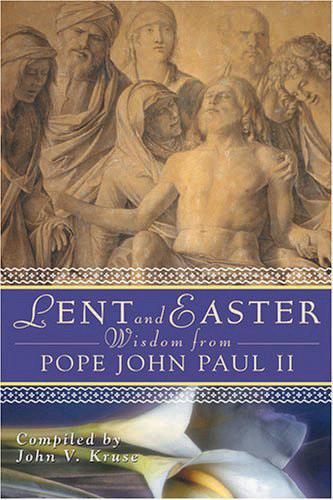

In Lent and Easter Wisdom From Pope John Paul II, the late Holy Father’s thought-provoking words lead readers through a journey of conversion throughout the Lenten season and Easter week. Each daily reflection - from Ash Wednesday through the Second Sunday of Easter - begins with thoughts from Pope John Paul II, supported by Scripture, a prayer, and a suggested activity for spiritual growth.
$19.95+ P/H
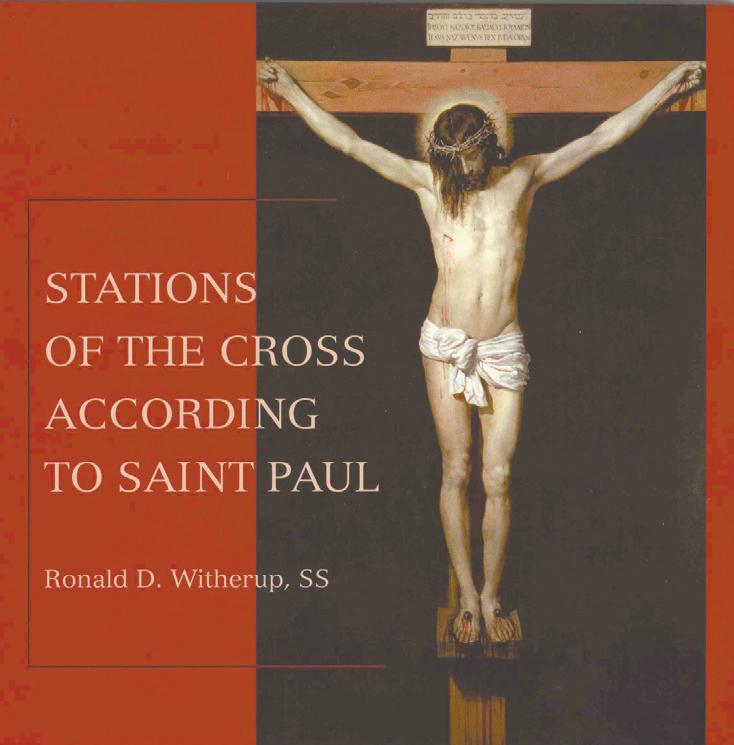

Mother’s and my way of the Cross
This story of caregiver and receiver is an honest look at what many of us face, in one form or another, in our own lives. Lawler’s experience would go a long way in helping us do our best whatever the circumstance, particularly in relation to the aged. Mother’s and My Way of the Cross is a wonderful gift for anyone who is caring for or has given care to an aged relative. Chapter titles include living with decisions, being afraid, making mistakes, and picking up the pieces.
$15.95 + P/H
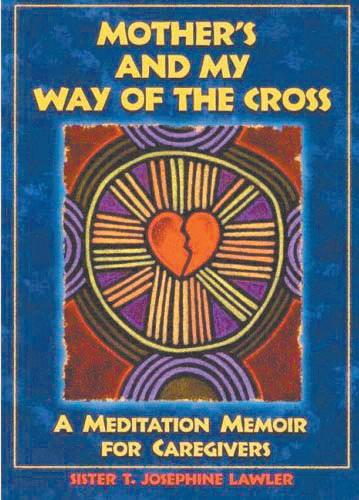

Daybreaks: Daily Reflections for Lent and Easter Week
Fr Kavanagh takes the reader on a Lenten journey that opens a door to understanding the mystery of Christ’s redemptive mission. These reflections take only a few moments, but allow time for the words to sink in, for the message to unfold.
$2.50 + P/H
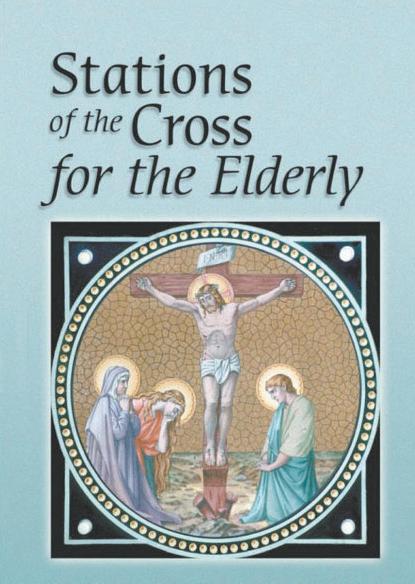

Stations of the Cross for the Elderly
This booklet brings the infinite power of prayer to bear on the loneliness and suffering of our ageing loved ones. This beautiful meditation unites readers with Jesus, engaging them in an intimitate discussion of the indignities, pain and heartache Our Lord endured as He bore His cross, recognising the similar crosses the elderly so often have to endure.
$13.95+ P/H
$17.95 + P/H
St Paul: A Bible study guide
Immerse yourself in the person of the Apostle Paul, heroic in his martyr’s death, but so recognisably human in his conversion story and subsequent letters to the faithful. Gain fresh insights into your own personal growth potential through the Scripture of St Paul:
* What does Paul’s conversion have to teach me about how power is perfected through my weaknesses?
* In what ways might I imitate his care and concern for the world?
$19.95 + P/H
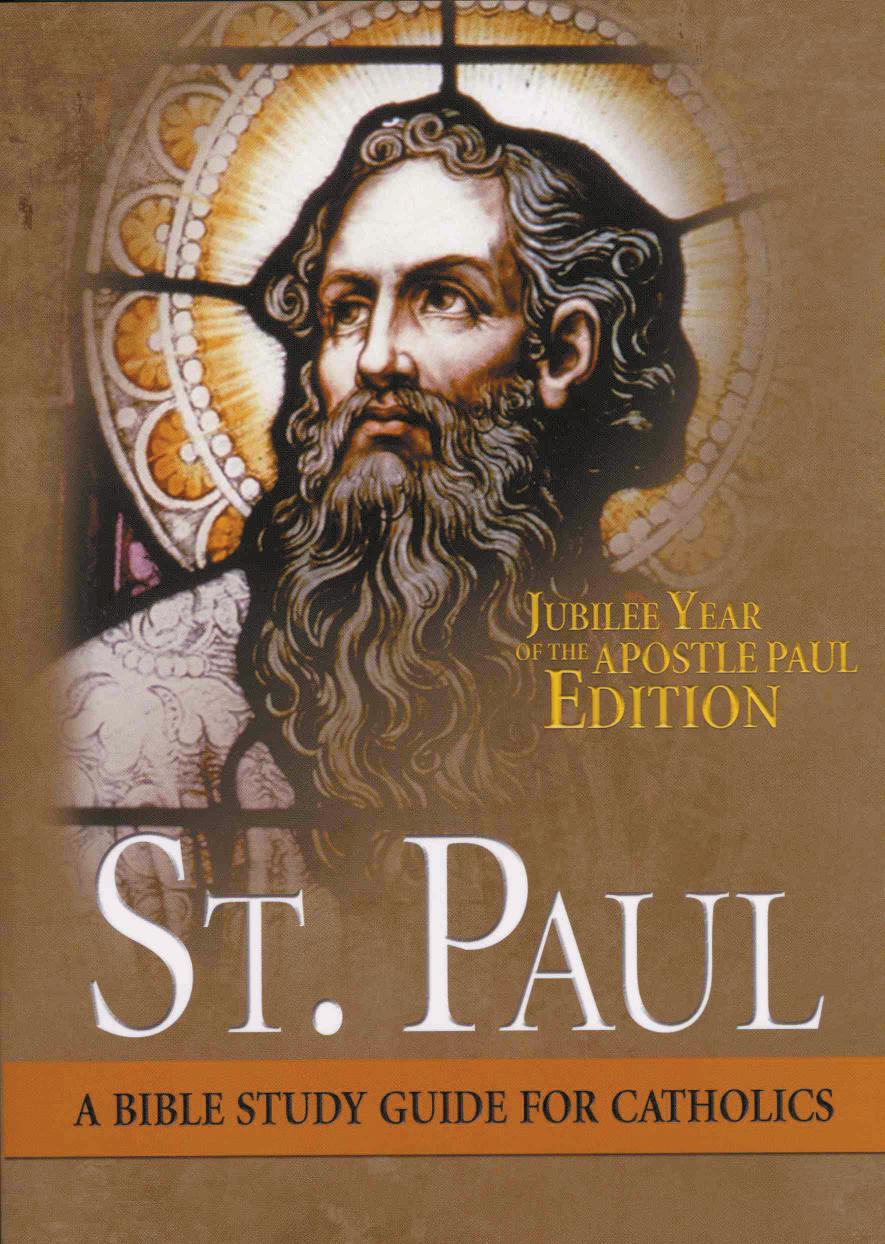





St Paul on the Power of the Cross
Mitch Pacwa authored a wonderful resource for anyone who wishes to study the theme of the Cross in the Letters of St Paul. The book includes the salient Biblical passages as well as a commentary which reflects modern Biblical scholarship for a greater insight into the chosen Biblical passages. Good questions and Bible searches enable the reader to get to the core of Paul’s teachings on the Cross of Christ. I recommend this book for individual Bible study and even more so for small group sharing.
$19.95+ P/H


By Kass P Dotterweich Journey through the Stations of the Cross, with each presenting a reflection on Jesus and a prayer devoted to married couples.
RRP $1.95
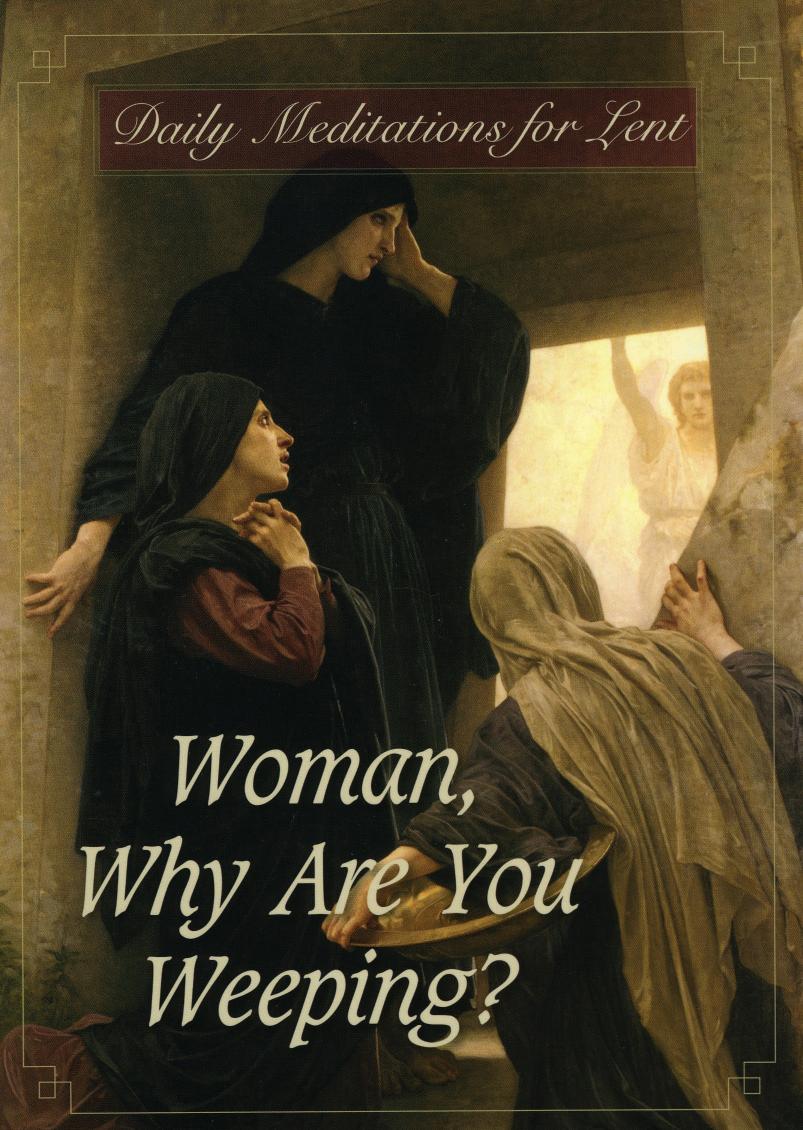

With a scripture passage and prayer for each day, this book probes the heart of Christ’s love for us and our love for Him during the Lenten season. Each meditation focuses upon a name or title ascribed to Jesus in the Bible, considering its significance to our experience of Lent.
$21.95+ P/H

A roundup of events in the Archdiocese
Panorama entries must be in by 12pm Monday.
Contributions may be emailed to administration@therecord.com.au, faxed to 9227 7087, or mailed to PO Box 75, Leederville WA 6902.
Submissions over 55 words will be edited. Inclusion is limited to 4 weeks. Events charging over $10 will be put into classifieds and charged accordingly. The Record reserves the right to decline or modify any advertisement.
FRIDAY, 5 FEBRUARY
Pro-Life Witness
9.30am at St Brigid’s Catholic Church, Midland. Mass followed by Rosary procession and prayer vigil at abortion clinic led by the Franciscan Friars of the Immaculate. Enq: Helen 9402 0349.
Healing Mass
7pm at St Peter’s Church, 93 Wood Street, Inglewood. Praise and Worship followed by Reconciliation and Eucharistic Healing Mass; thereafter, fellowship. Enq: Priscilla 0433 457 352.
Adventures in Matthew
10am to 12 noon at St Simon Peter Catholic Church, Prendiville Avenue, Ocean Reef. Come and enjoy this lively study into how Jesus inaugurated the kingdom of heaven on earth, building on the foundation laid in the Old Testament. There are 24 easy to follow Sessions of the Great Adventure Series. Enq: Angela 9300 4692, Dominic 04 4705 3347, 08 6253 8041 celestialorchids@gmail.com
FRIDAY, 5 FEBRUARY TO SUNDAY, 7 FEBRUARY
Feast of Our Lady of Lourdes Novena and Mass in Three Parishes
7pm, 5 February; 6pm, 6 February and 5.30pm, 7 February at All Saints Parish, 7 Liwara Place, Greenwood. There will be Mass, Novena devotions, procession and Benediction. The elderly will be blessed at the 7 February celebrations. Bring a plate.
SATURDAY, 6 FEBRUARY
Day With Mary
9am to 5pm at Holy Family Church, 45 Thelma Street, Como. Day of prayer and instruction based on the Fatima Message. 9am Video, 10.10am Holy Mass, Reconciliation, Procession of the Blessed Sacrament, Eucharistic Adoration, Sermons on Eucharist and Our Lady, Rosaries and Stations of the Cross. BYO lunch. Enq: Franciscan Sisters of the Immaculate 9250 8286.
Witness for Life
8.30am at St Augustine’s, Catholic Church, Gladstone Road, Rivervale. Mass followed by Rosary procession and prayer vigil at abortion clinic led by Columban Missionary priest Fr Paul Carey. Enq: Helen 9402 0349.
SUNDAY, 7 FEBRUARY
Divine Mercy
1.30pm at St Francis Xavier Church, 25 Windsor Street, Perth. Come for an afternoon with Jesus and Mary, main Celebrant Fr Johnson Malayil CRS, on the Homily of St Jerome Emiliani. Enq: 9457 771.
Taize Worship
7pm at St Ninian and St Chad Traditional Anglican Church, 11 Susan Street, Maylands. Enq: 0417 180 145.
MONDAY, 8 FEBRUARY TO
THURSDAY, 11 FEBRUARY
Feast of Our Lady of Lourdes Novena and Mass in Three Parishes
6pm, 8 February at Our Lady of Mercy Catholic Church, Girrawheen Avenue, Girrawheen. Mass Novena devotions, procession and Benediction. 9 February at 7pm Novena devotions, procession and Benediction. 10 February at 7pm Novena devotions, procession, Benediction and blessing of the sick. 11 February at 7pm, Feast of Our Lady of Lourdes, Mass, Candlelight procession and Benediction. Burning of petitions. Bring a plate. Enq: Jim 0411 615 239 or 9342 6049.
TUESDAY, 9 FEBRUARY
Revelation - The Kingdom yet to come 7.30pm at 8 San Miguel Drive, Leeming. This is a ten week course presented by Jeff Cavins on DVD. The themes selected have the most relevance to the 21st century Catholic. They are Revelation as a Book of Liturgy, Revelation as a Handbook of Discipleship, Revelation as the final Exodus of the people of God. For young women from 18 to 35 years. Enq: Sr Ann on 0409 602 927.
WEDNESDAY, 10 FEBRUARY
The Julian Singers - Rehearsals
7.30-9.30pm at Adel Quinn Centre, 36 Windsor Street, East Perth. We are inviting new members to come and join this Liturgical Choir. Come along to enjoy singing and friendship. Enq: Chris 9276 2736 and Mary 9443 3963. A Celebration of The Year for Priests 2009 – 2010 7pm at St Columba’s Church, South Perth. The Parish Council invites parish members and school community, to a thanksgiving Mass and honour the work of all priests, especially our very own Fr Michael Casey. Refreshments provided later. For catering purposes, please provide details of individual or family attendance on the response sheets at each door.
THURSDAY, 11 FEBRUARY
Group 50 Prayer Group
7.30pm at Redemptorist Monastery Retreat House, North Perth. With praise, Mass and Anointing of the Sick.
Healing Mass for those touched by cancer 7pm at Ss John and Paul Church, Willetton. Prayer to St Peregrine, Patron Saint of those with cancer, veneration of the relic and Mass with anointing of the sick. Enq: Lumen Christi Centre 9223 1339.
FRIDAY, 12 FEBRUARY
Torchlight Rosary Procession Around Lake Monger Commencing at 7pm. Congregate at the northwest corner at park end of Dodd Street. Procession is in honour of Our Lady of Lourdes, with Rosary and hymns. Invitation is open to everyone. Paths are wheelchair and stroller accessible. Please bring torches, no naked flames allowed. Enq: Judy 9446 6837.
SATURDAY, 13 FEBRUARY
St Padre Pio Day of Prayer
8.30am at St Brigid Church, corner Fitzgerald and Aberdeen Streets, Northbridge. St Padre Pio DVD, followed by Exposition of the Blessed Sacrament, Rosary, Divine Mercy, Silent Adoration and Benediction. 11am Holy Mass, celebrant Fr Tiziano Bogoni using St Padre Pio Liturgy. Confession available. Bring a plate for 12pm shared lunch. Tea and coffee provided. Enq: Des 6278 1540.
Divine Mercy Healing Mass
2.30pm at St Francis Xavier Church, 25 Windsor Street, Perth. Main Celebrant Fr Marcellinus Meliak OFM. Reconciliation in English and Italian available. Divine Mercy prayers followed by refreshments. Enq: John 9457 7771.
SUNDAY, 14 FEBRUARY
Feast of Our Lady of Lourdes
12 noon at St Catherine’s Catholic Church, Gingin. BYO lunch. 1pm Holy Rosary, Exposition, hymns, Benediction and blessing of the sick. 1.30pm Marian Procession, 2.30pm Holy Mass at the Grotto. Tea provided later. For transport, Francis 9459 3873 or 0404 893 877. Enq: Sheila 9575 4023 or Fr Paul 9571 1839. Please confirm coach bookings by 7 February.
TUESDAY, 16 FEBRUARY
Laurence Freeman OSB Talks
Director of the World Community for Christian Meditation, 9am at Notre Dame University, Mouat Street, Fremantle. Talk on Making the Most of Crisis: How a Contemplative Mind Grows. Enq: ccreedon1@nd.edu.au or 9433 0580. 7.30pm at St Joseph’s Catholic Church, Salvado Road, Subiaco, talk on Hope and Change; Christian Meditation in Troubled Times. Charge is $5. Enq: christianmeditation@iinet.net.au or 9444 5810.
Faith Enrichment Series - Fr Joseph Parkinson STL
PhD, Director L J Goody Bioethics Centre 7.30 to 9pm at St Benedict Parish, 115 Ardross Street, Ardross. Talks on ethics, Faith and conscience and discuss how to apply ethics to our daily lives, bringing our Faith to life, explaining the role of conscience in decision making and giving us strategies for living a moral life. The presentation will be followed by coffee and tea. Enq: Wim 0421 636 763.
WEDNESDAY, 17 FEBRUARY
Ash Wednesday Latin Masses
10am at St John’s Pro-Cathedral, Victoria Avenue, Perth. 10am Low Mass preceded by Holy Hour at 8.45am to 9.45am. 12.10pm Low Mass and 6.30pm Sung Mass. Ashes will be distributed at all Masses. Beginning 19 February, Stations of the Cross on Fridays in Lent at 5.30pm followed by Holy Mass. Enq: Fr Michael Rowe 9444 9604.
Lesmurdie Mental Health Support Group
Normal meeting occurs on Ash Wednesday, those who might have planned to come are encouraged to attend Mass at 7.30pm at Our Lady of Lourdes Church, Lesmurdie. Next formal meeting will be on 17 March from 6 to 8 pm at Our Lady of Lourdes Parish, 207 Lesmurdie Road, Lesmurdie. Guest Speaker, Gerry Smith, will talk on guilt and its benefits. Please bring a plate. Enq: Ann 9291 6670 or Barbara 9328 8113.
MONDAY, 22 FEBRUARY
Study Course
4pm at the Resources Centre for Personal Development, Fremantle. The study will be on pastoral care, prayer and the study of relationship principles in the New Testament. Enq: 9418 1439 or 0409 405 585.
Eucharistic Celebration
5.30pm at St Catherine’s House of Hospitality, 113 Tyler Street, Tuart Hill. All invited to this Mass celebrated by Fr Gregory Carroll. Supper to follow. Cost $10. Enq: Margaret 9390 8365 or Maranatha 6380 5160.
FRIDAY, 26 FEBRUARY
Medjugorje – Evening of Prayer
7 to 9pm at St Simon Peter Parish, Prendiville Avenue, Ocean Reef. Thanksgiving Prayer for Our Lady’s reported apparitions at Medjugorje takes place with Adoration, Rosary and Benediction concluding with Holy Mass. Free DVD on Fr Calloway’s conversion. All warmly welcomed. Enq: Eileen 9402 2480.
SATURDAY, 27 FEBRUARY
St Ildephonsus College - SIC New Norcia Reunion
3pm at Atrium Room, Mt Henry Tavern, Manning Road, Como. Students who attended as first years in 1946 to leaving Certificate in 1950 are invited to a 60 year reunion. Still looking for Bob Flynn, Brian Gelfi, Peter Lee, Ron McCann, Desie Mulcahy, Ray Strickland, Pat Walsh, and Noel League Blake. Enq: Berni 9924 3214, Colin 9887 1054 or Barry 9450 2232.
SATURDAY, 27 FEBRUARY TO SUNDAY, 28 FEBRUARY
Prayer Weekend
8.30am at the Redemptorist Monastery, North Perth. Christ sees the urgent need for intercession and invites you to spend this Lenten weekend with Him in prayer. Come and experience the healing and saving power of Christ through the Holy Spirit and let Him renew and transform you to be His powerful intercessor like Mary His Mother. Sessions will be led by Fr Hugh Thomas Cssr. Enq: Gertrude 0411 262 221, 9455 6576 or Rose 0403 300 720.
SATURDAY, 6 MARCH
Peace Vigil
6 to 9.30pm at the Redemptorist Monastery. Come and light a votive candle for peace, join us in praying for peace in our country and for war-torn parts of the world. An evening of prayer and reflection with a different presenter, each half hour in the presence of the Blessed Sacrament. Come for one or more sessions or stay for the evening supper provided.
FRIDAY, 12 MARCH TO SUNDAY, 14 MARCH
God’s Farm Retreat
Fr Tony Chiera VG will lead a prayerful weekend retreat on God’s Farm, 40km south of Busselton. The topic will be Walking with the Saints, Lent 2010. For hired bus bookings, return trip to Perth to Farm phone Yvonne 9343 1897. Other bookings and enquiries phone/fax, Betty Peaker sfo 9755 6212 or Mary.
MONDAY, 17 MAY TO FRIDAY 28 MAY
Tour of the Holy Land
12 day tour with Fr Roy Pereira visiting: Sea of Galilee, Jericho, Masada, The Dead Sea, Bethany, Jerusalem and Cana. For cost, itinerary and more details, please contact: Francis Williams (Coordinator) T: 9459 3873 M: 0404 893 877 E: francis@perthfamily.com.
GENERAL NOTICES
Acts 2 College of Mission and Evangelisation2010 Enrolments and Scholarships
Now open for full and part-time study at Acts 2 College for Semester 1. 16 week courses commence week of 1 March 2010. All courses may be taken towards a Certificate IV in Christian Ministry - national code 51881. Acts 2 College has available one full scholarship and three part scholarships for study at the College in 2010. The full scholarship is through an essay competition; the part-time are based on financial hardship. Enq: Jane 9202 6859.
Acts 2 College of Mission and Evangelisation Bible Study Sessions for Parishes
Commencing 27 January at 7.30pm, 30 January and 6 February from 10am to 4pm respectively at 67 Howe Street, Osborne Park. Genesis to Jesus, complete the course and be trained to deliver it in your own parish for Lent and Easter. All resources provided. Registration required. Enq: Jane 9202 6859 or 0401 692 690.
Ecumenical World Day of Prayer
The service has been prepared by the World Day of Prayer Committee of Cameroon. The theme for the service is ‘Let everything that has breath praise God.’ We invite you to join in a service in your area. Contact your nearest church or check your local paper close to 5 March for the time and place of your local service. The city service will be held at McNess Hall adjoining St Andrew’s Uniting Church situated at the corner of St George’s Terrace and Pier Street, Perth commencing at 1pm.
Perpetual Adoration
Perpetual Adoration of the Blessed Sacrament is in its seventh year at Christ the King Church, Beaconsfield. Open 24 hours, except at Mass times. All welcome. Enq: Joe 9319 1169.
EVERY TUESDAY AND WEDNESDAY
Adventures in Matthew
Commencing 2 February at 7.30pm and 3 February at 9.30am, at St Jude Church, Prendiville Way, Langford. Come and enjoy this lively study into how Jesus inaugurated the kingdom of heaven on earth, building on the foundation laid in the Old Testament. 24 easy to follow sessions. Enq: Dominic 0447 053 347, 08 6253 8041 celestialorchids@gmail.com.
EVERY SUNDAY
Pilgrim Mass - Shrine of the Virgin of the Revelation
2pm at Shrine, 36 Chittering Road, Bullsbrook. Commencing with Rosary followed by Benediction. Reconciliation is available before every celebration. Anointing of the Sick administered during Mass every second Sunday of the month. Pilgrimage in honour of the Virgin of the Revelation, last Sunday of the month. Side entrance to the church and shrine open daily between 9am and 5pm. Enq: SACRI 9447 3292.
Latin Mass
2pm at the Good Shepherd Parish, 40-42 Streich Avenue, Kelmscott, according to the 1962 missal, with Rosary preceding. All welcome.
EVERY MONDAY
Lunchtime Meditation Christian Meditation comes to the city. 12.15 to 12.45pm, Wesley Uniting Church, corner William and Hay Streets, Perth. Ecumenical Christian meditation in the tradition of the desert fathers and mothers. All welcome. Enq: christianmeditation@iinet.net.au, www.christianmeditationaustralia.org or 9444 5810.
ACROSS
8

HOLIDAY ACCOMMODATION
ESPERANCE 3 bedroom house f/ furnished. Ph: 08 9076 5083.
GUADALUPE HILL TRIGG
www.beachhouseperth.com
Ph: 0400 292 100.
HOUSE TO SHARE for clean living male, $120p/w Riverton. Ph: 0449 651 697.
YALLINGUP BEACH Front Cottage. Three bedrooms from 2-14 March. Phone 9272 3105.
HOLIDAY RENTAL –SCARBOROUGH Self contained unit. Sleeps 6. Walk to beach. Ph 0402 673 409
Lady Senior 80s seeks companionship two or three times per week for tea and coffee, chat for an hour or two in Woodlands. Ph 0418 841 757
BUILDING TRADES
BRICK RE-POINTING Ph: Nigel 9242 2952.
PERROTT PAINTING Pty Ltd For all your residential, commercial painting requirements. Ph: Tom Perrott 9444 1200.
PICASSO PAINTING Top service. Ph: 0419 915 836, fax 9345 0505.
BUSINESS
HOME based Business Partners for Australia, India, and Philippines. www.dreamlife1.com
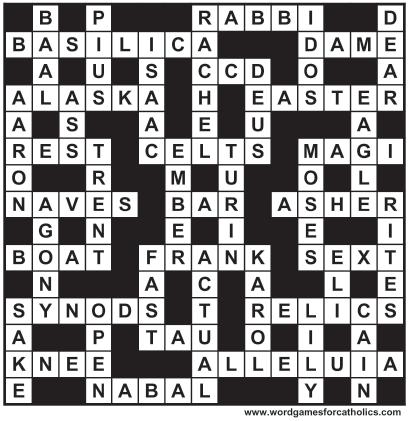

FREE Therapeutic Massage for women, Inglewood, Ph: 9473 0989.
COUNSELLING
PSYCHOLOGY and PSYCHOTHERAPY
www.peterwatt.com.au, Ph: 9203 5278.
RELIGIOUS PRODUCTS
CATHOLICS CORNER Retailer of Catholic products specialising in gifts, cards and apparel for Baptism, Communion and Confirmation. Ph: 9456 1777. Shop 12, 64-66 Bannister Road, Canning Vale. Open Mon-Sat.
OTTIMO Convenient city location for books, cds/dvds, cards, candles, statues, bibles, medals and much more. Shop 108, Trinity Arcade (Terrace level), 671 Hay Street, Perth. Ph: 9322 4520. MonFri 9am-6pm.
RICH HARVEST YOUR
CHRISTIAN SHOP Looking for Bibles, CDs, books, cards, gifts, statues, Baptism/Communion apparel, religious vestments, etc? Visit us at 39 Hulme Court (off McCoy St), Myaree, Ph: 9329 9889 (after 10.30am Mon to Sat). We are here to serve.
KINLAR VESTMENTS
Quality hand-made and decorated vestments: Albs, Stoles, Chasubles, altar linen, banners etc. 12 Favenc Way, Padbury. By appointment only. Ph: Vicki 9402 1318 or 0409 114 093.
WHITE PLASTER STATUES of Virgin Mary. 60cm tall $60 and 50cm tall $40 each. Phone Angela 9276 9317.
FURNITURE REMOVAL
ALL AREAS Mike Murphy Ph: 0416 226 434.
Glory & Praise Songs for Christian Assembly Vol 1 and Eagle’s Wings Scripture in Song Everything I Possess, about 25 of each, more if possible. Please ring 9641 1477 or email stpatsyork@westnet. com.au to arrange pickup and payment.
PRAYER TO THE VIRGIN MARY
Ps 137:1-5.7-8 Your love is eternal 1Cor 15:1-11 Grace not fruitless
Lk 5:1-11 We worked all night
8 M St Jerome Emiliani, priest (O), St Josephine Bakhita, religious (O)
Gr 1Kings 8:1-7.9-13 The Holy of Holies
Ps 131:6-10 The place of God’s rest
Mk 6:53-56 Jesus recognised
9 T Gr 1Kgs 8:22-23.27-30 God of kindness
Ps 83:3-5.10-11 The living God
Mk 7:1-13 Only lip service
10 W St Scholastica, virgin (M)
Wh 1Kgs 10:1-10 The Queen of Sheba
Ps 36:5-6.30-31.39-40 Trust the Lord
Mk 7:14-23 Don’t you understand?
11 Th Our Lady of Lourdes (O)
Wh 1Kgs 11:4-13 For David’s sake
Ps 105:3-4.35-37.40 O Lord, remember me
Mk 7:24-30 Children’ scraps
12 F
Gr 1Kgs 11:29-32;12:19 Taken ten strips
Ps 80:10-15
The Lord your God
Mk 7:31-37 ‘ Be opened’
13 S
Gr 1Kgs 12:26-32;13:33-34 Two golden calves
Ps 105:6-7.19-22 An image of metal
Seven
basket full
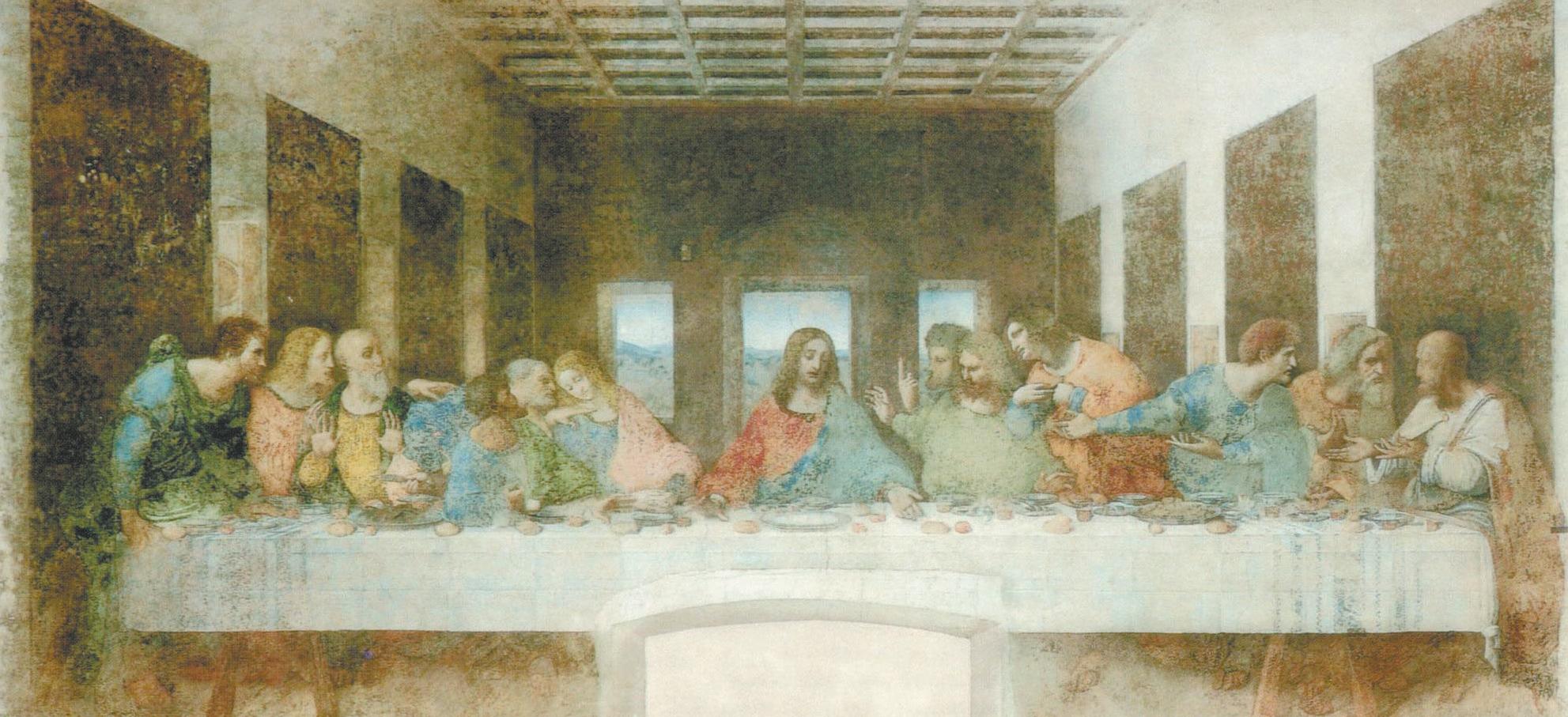
The seating plan at the Last Supper
BY MONSIGNOR C HARLES POPE Archdiocese of WashingtonMost of us who live now think of the Last Supper in terms that are familiar to us. In our imagination, Jesus and His Apostles sit around a square table on chairs. Jesus is at the centre and His Apostles arrayed around him. The famous painting of Leonardo Da Vinci (see above) is uppermost in most modern minds when thinking of the Last Supper. But the real Last Supper was different in many significant ways. Some of the following I am about to present are still a matter of debate, but other aspects are undisputed. 1 Jesus and the Apostles did not sit on chairs at a table. Rather, they reclined on the ground or on mats and pillows, leaning on their left elbow (either forward or back) and eating with their right hand. Their legs were stretched out behind them (see picture at right). This was the typical fashion for eating in the ancient world. That they reclined to eat is made plain in the Gospel of Mark: While they were reclining at the table eating, he said, “I tell you the truth, one of you will betray me – one who is eating with me.” (Mk 14:18). It also explains some things that seem strange to us moderns. First of all, why did John lean back on Jesus’ chest to ask him a question (Jn 13:25; 21:20)? This would be strange and physically awkward in a modern upright table setting. But reclining on one’s side on a mat meant you had to lean back to talk to the person next to you. There is also another strange scene where Jesus is reclin-
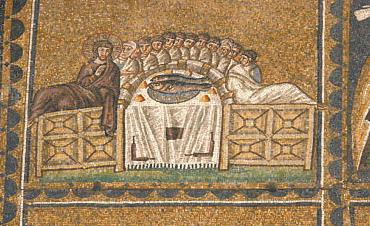
ing to eat in the home of a Pharisee and a woman begins to anoint his feet (Luke 7:38). In a modern upright table setting, this would mean she would have to be under the table. But in the ancient setting the posture was such that one’s feet were behind and thus the woman could approach Jesus from behind and begin to anoint his feet, possibly without his prior knowledge.
2 The place of honour in modern western settings at a typical long rectangular table is either at the centre or at one end. Everyone is seated upright and facing in to the centre and can generally see all the others well.
However, in the ancient meal setting the table was “U” shaped, either as a half circle or with 90 degree arms.
Instead of sitting at the centre of the table (as in DaVinci’s painting above), the host or honoured guest sat at the far left corner. Further, everyone sat on one side on the outside of the table allowing the inside of the table to open for servers. The picture above is from a very early mosaic in Ravenna, probably made well before the 5th century.
At this early time, the artist still had access to the memory of the actual practices at the time of Jesus and thus depicts the Last
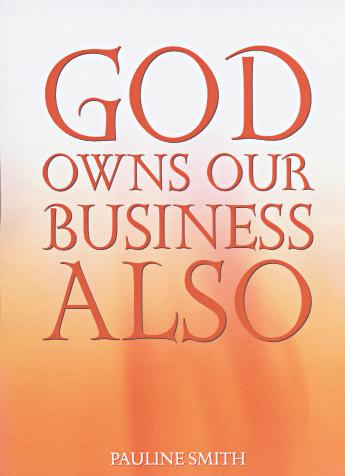

Supper as it was more likely arranged. Notice that Jesus is at the head of the left corner and his disciples are arrayed in a sloping ark behind and sloping to his left. This was the usual setting for the ancient meal and especially something as formal as a passover meal.
3 It would seem that the place of second honour was at the other end of the U shaped table on the right corner. This would help explain why Peter is not at Jesus’ immediate right or left and has to motion to John across the room to lean back and ask Jesus a question (Jn:13:24-25). Since Peter would likely have had the other place of honour it makes sense that he would be across the room and unable to ask Jesus Himself.
Thus, the whole setting of the Last Supper was rather a different setting than most modern people imagine. Leaning on elbows and eating with one hand would all be very awkward to us. But I suppose they’d think what we do is strange as well. The question of the arrangement also factors into modern discussions of liturgical orientation and Mass facing the the people versus Mass facing away from the congregation toward God. I’m sure that this will emerge in later discussions but it is clear from the Ravenna Mosaic that Mass facing east toward God and not toward the people did not offend ancient notions of the Mass as the “Lord’s Supper.”
To the ancients, formal meals featured the honoured guest at one end angled away a bit from most of the other guests.
I am sure that this final observation may generate some discussion but it is also meant to explain some of the theology and history that Pope Benedict has asked us to consider in the discussion of orientation in the Liturgy.
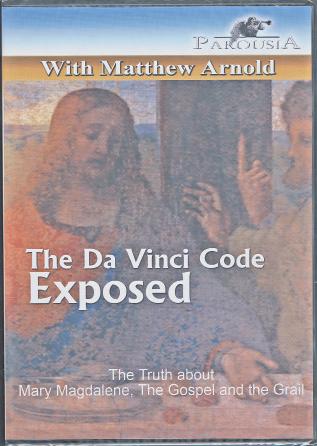

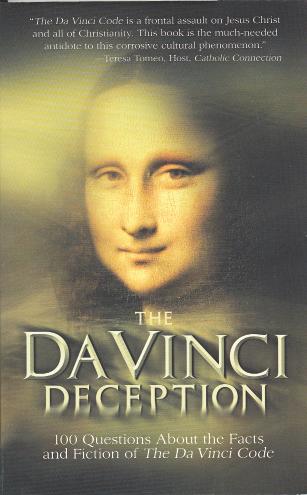

Name: